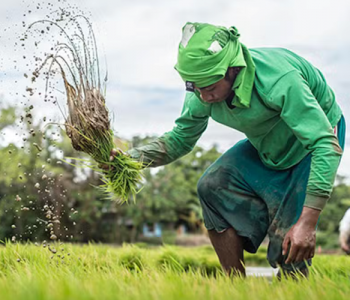 News & Events
News & Events
 News & Events
News & Events
 News & Events
News & Events
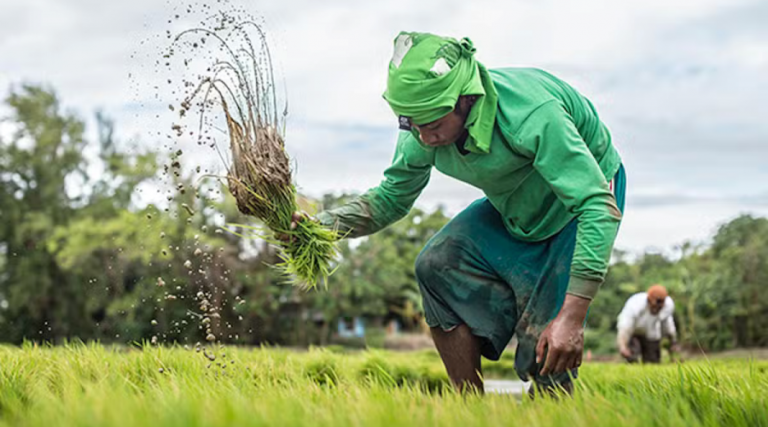
MANILA, Philippines — The Philippine Rice Research Institute (PhilRice) and the Philippine Space Agency (PhilSA) have entered into a five-year partnership to make rice farming more climate-smart.
The team-up involves operating an eddy covariance flux tower to support rice research and environmental monitoring.
“The five-year partnership includes joint research, training, and capacity-building activities to strengthen the long-term operation and use of the flux tower,” PhilRice said in a statement.
A tower was installed at PhilRice’s office in Nueva Ecija. It collates data on greenhouse gases (GHG) such as carbon dioxide and methane. It also monitors energy and water vapor exchanged between rice fields and the atmosphere.
 News & Events
News & Events
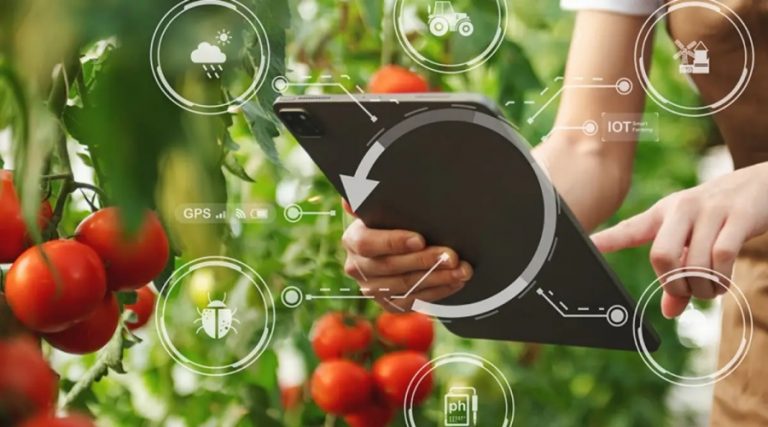
AgriDataKpi platform also aimed at increasing productivity and saving water.
AgriDataKpi is a new digital platform designed to support agricultural research, consulting, and production in analyzing key sustainability indicators for plant crops. The release of the tool marks the conclusion of the AgriDataKpi project, promoted by the innovative SME Image Line in partnership with Sysman Progetti & Servizi. The project was developed as part of the Spoke 6 cascade call from the National Agritech Center, an initiative aimed at supporting the activities of Task 6.1.2, coordinated by Professor Paola Battilani , professor of the Faculty of Agricultural, Food, and Environmental Sciences at the Università Cattolica del Sacro Cuore – Piacenza and Cremona campuses, and Professor Daniele Trinchero of the Department of Electronics and Telecommunications at the Polytechnic University of Turin.
 News & Events
News & Events
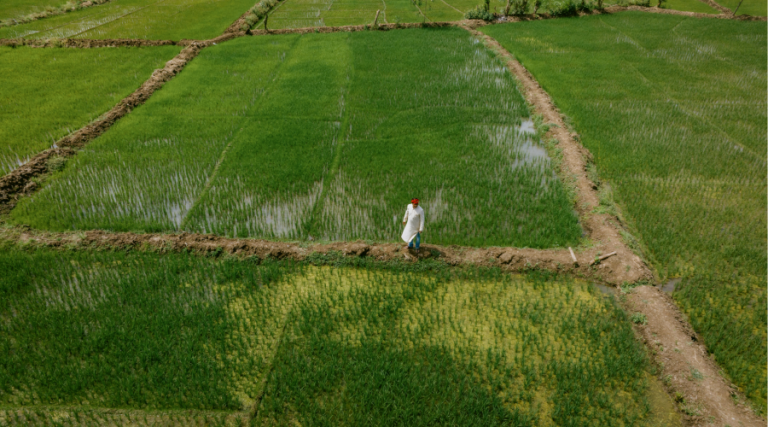
For farmers, every planting decision carries risks, and many of those risks are increasing with climate change. One of the most consequential is weather, which can damage crop yields and livelihoods. A delayed monsoon, for example, can force a rice farmer in South Asia to replant or switch crops altogether, losing both time and income.
Access to reliable, timely weather forecasts can help farmers prepare for the weeks ahead, find the best time to plant or determine how much fertilizer will be needed, resulting in better crop yields and lower costs.
Yet, in many low- and middle-income countries, accurate weather forecasts remain out of reach, limited by the high technology costs and infrastructure demands of traditional forecasting models.
A new wave of AI-powered weather forecasting models has the potential to change that.
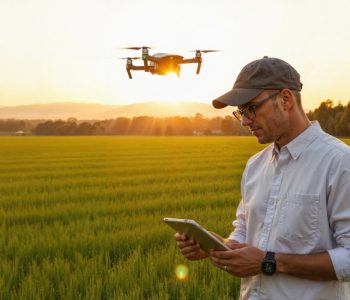 News & Events
News & Events
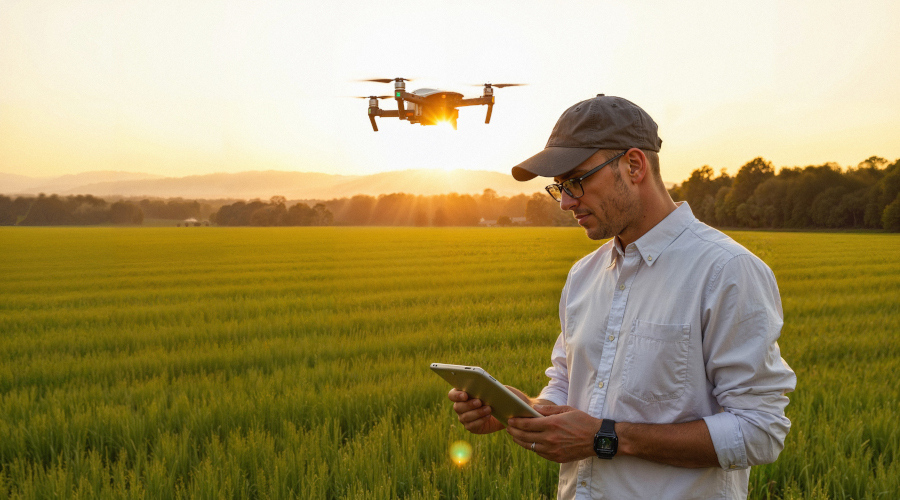
In collaboration with Cremona Campus, XFarm proposes a seminar entitled
Digital Tools and New Skills for the Future of Farming
Tuesday 27 May
from 2.30 p.m.to 4.30 p.m.
in video conference in Aula Magna Maffezzoni (room A.1.1)
Contemporary agriculture is at the heart of a deep transformation, driven by technological innovation, environmental challenges and changes in consumption patterns. Digital tools such as sensors, data platforms and predictive models are becoming increasingly central resources to support decisions and improve the management of agricultural activities.
At the same time, there is a need for new skills that can integrate agronomic, digital and management knowledges.
The seminar, aimed at students of the Master’s Degree in Agricultural Engineering, but open to all students interested in the subject, will provide an overview of the main trends and the role that education can play in preparing professionals to face the challenges of the agricultural future.
 News & Events
News & Events

Attend the Open Day and find out about the first Laurea Magistrale (equivalent to Master of Science) in Italy for those wanting to work in the agro-industrial sector: Agricultural Engineering.
The course involves a multidisciplinary approach, teaching students how to manage the many complex aspects of agricultural and agro-industrial production, and focusing on technological innovation, sustainability and food safety.
Consult the detailed programme for the Open Day, where you can also book an interview with a lecturer.
Register by 6 April.
For further details, send an email to: orientamento-cremona@polimi.it
We look forward to seeing you!
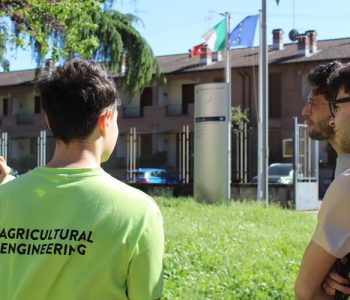 News & Events
News & Events
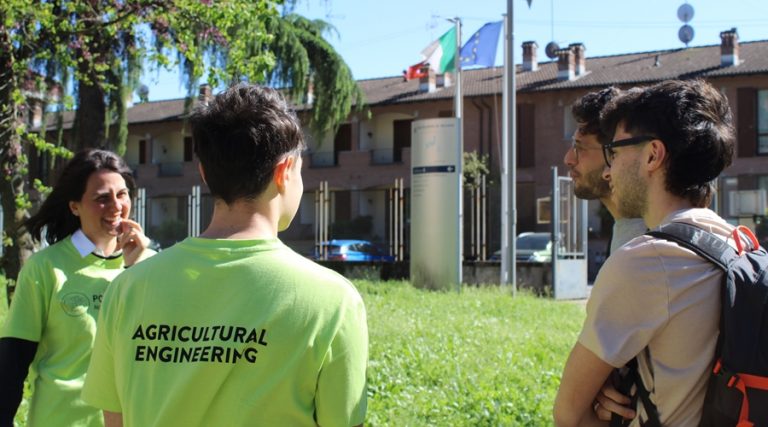
The Cremona Campus of the Politecnico di Milano is the focus of the third episodes of the new program Campus – Cremona Città Universitaria on CR1, dedicated to Cremona’s universities.
The goal of this program, hosted by Massimo Lanzini, is to showcase Cremona’s university offerings through the faces and voices of students, professors, and researchers, along with a guided tour inside the campuses, their classrooms, and laboratories.
The third episode of Campus, aired on Tuesday, February 18th, was dedicated to the Master’s Degree in Agricultural Engineering.
It can be rewatched on the Cremona1 website, episode of February 18, 2025.
Tune in every Tuesday from 8:30 PM to 9:00 PM on channel 19 of Digital Terrestrial TV.
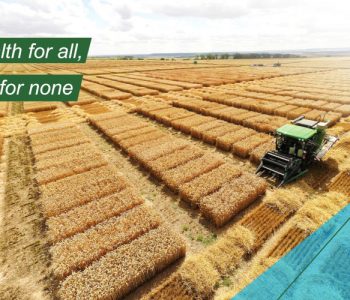 News & Events
News & Events
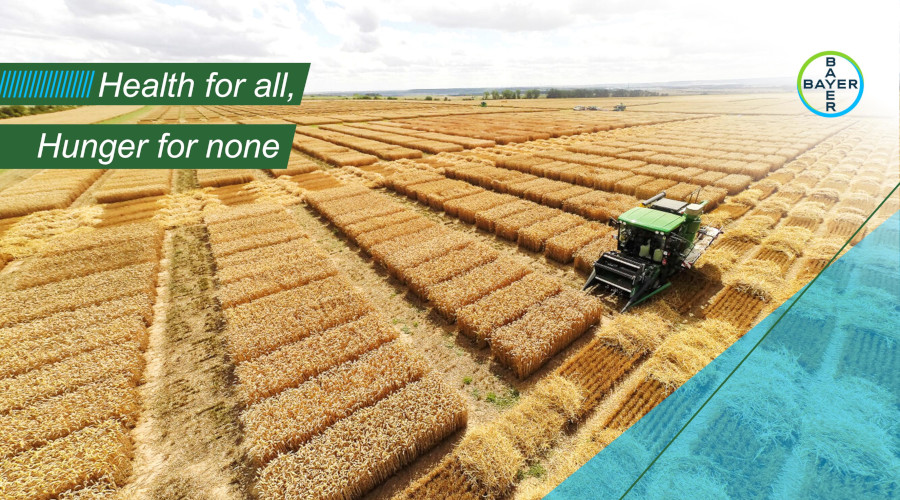
As part of the Master’s Degree in Agricultural Engineering, Bayer CropScience will be holding a seminar entitled “Innovation & Technology: the keys to a sustainable future” on Thursday 13 March at 2 p.m. in room A.2.2.
All interested students (not only those attending the Master’s Degree in Agricultural Engineering) are invited.
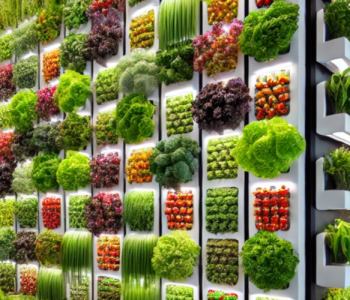 News & Events
News & Events
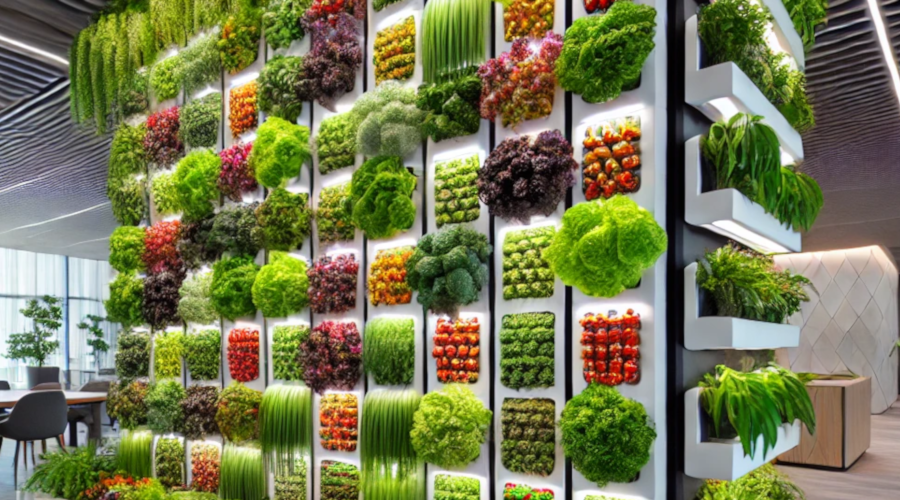
A new Passion in Action course “New synergies between man and nature for sustainability | A laboratory for the prototyping of a multi-function hydroponic system” for Agricultural Engineering students at Politecnico di Milano.
The course will take place in the first part of 2025 and it will be devoted to the collective hands-on development of a multi-purpose automated green wall to be installed in the new campus in proximity of the library.
More details will be shared during the meeting.
Don’t you know about what a Passion in Action course is? Please take a look here.
The launch meeting will be on Thursday, December 5th at 13:30 in room B2.9 in Cremona Campus and online on Prof. Andrea Turolla Webex room.
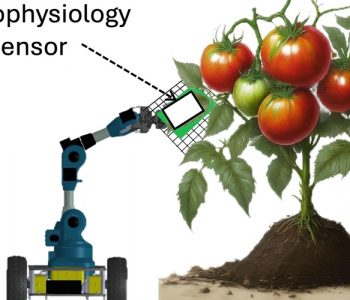 News & Events
News & Events
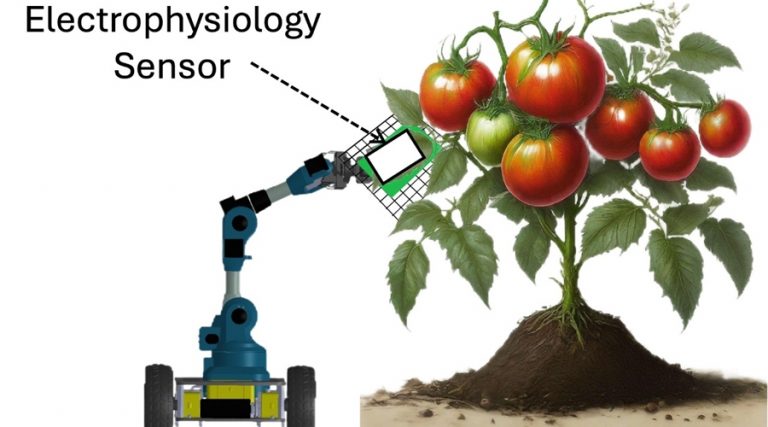
This research explores the integration of real-time plant health monitoring through non-invasive 3D-printed electrophysiological (EP) sensors and artificial intelligence (AI) to enhance smart agriculture.
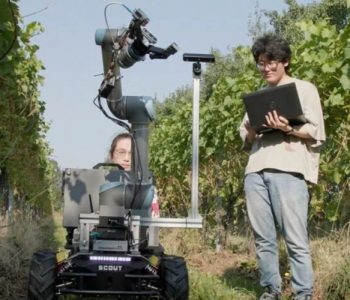 News & Events
News & Events

In a bid to revolutionise grape harvesting, Queen Mary University of London (QMUL) researchers are piloting new robotic grape pickers in collaboration with Extend Robotics and the Saffron Grange vineyard.
The project focuses on developing a robotic system equipped with advanced sensors and AI, allowing it to detect ripeness and gently pick grapes with pressure-sensitive ‘fingers’. This innovation aims to meet the high standards needed for grapes destined for fine wine, which are currently valued at approximately £5,000 ($6,480) per tonne.
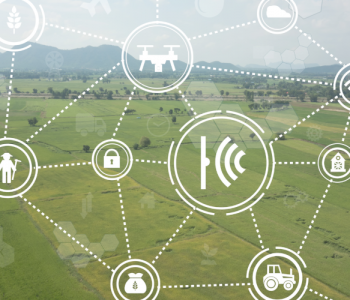 P22/23-ENG
P22/23-ENG
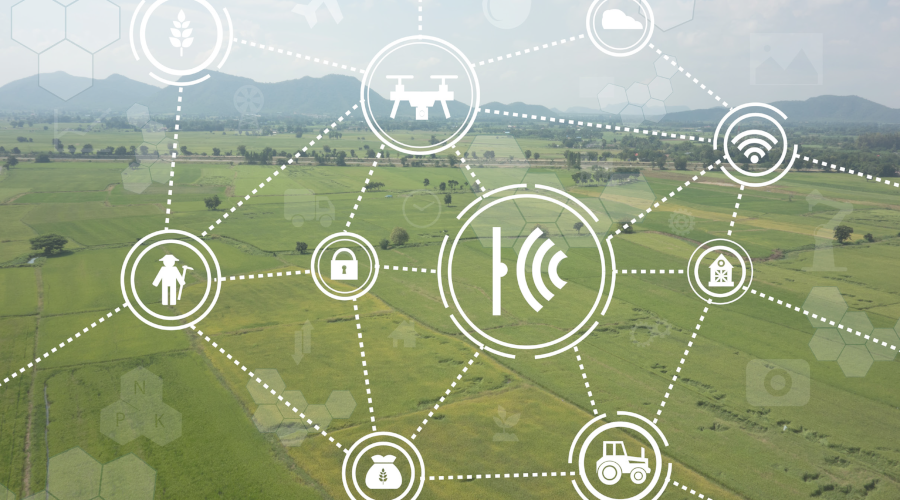
Digital innovation is confirming its important role in making the agrifood sector more sustainable, efficient and competitive; farmers are increasingly investing in and adopting digital solutions, especially involving technologies such as the internet of things and blockchain. Despite a growing interest in the applications of Artificial Intelligence in the agrifood sector, AI-enabled solutions are still not explored and explained.
This thesis aims at analyzing the benefits and costs derived from the use of Artificial Intelligence solutions applied to different agricultural practices, without overlooking their risks and resistance to adopt them.
This work is suitable for both students coming from an engineering and non-engineering background, and can be tackled both by a single student and by a group of two students.
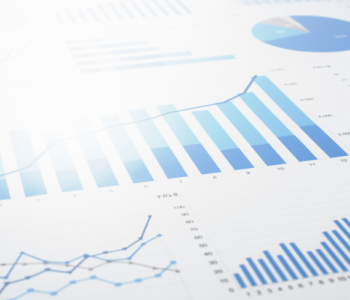 P22/23-ENG
P22/23-ENG
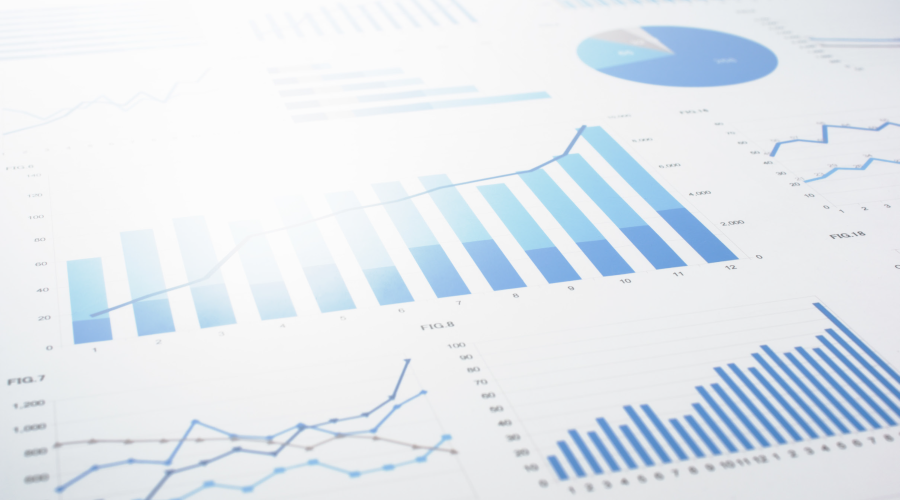
Digital Innovation in agrifood is becoming more and more relevant, since farmers increasingly adopt digital technologies and rely on them to support their business activities. Even though the exploitation of digital innovation has proven to generate benefits and to be a potential engine for businesses to improve their performance and competitive advantage, studies have found that leveraging this phenomenon has both benefits and costs for businesses.
This thesis aims at developing a framework able to understand the impacts derived from the adoption of digital innovation in agrifood, and the obstacles to effectively turn extracted data into knowledge that can support effective actions and generate real value. A particular attention will be devoted also to data monetization.
This work is suitable for both students coming from an engineering and non-engineering background, and can be tackled both by a single student and by a group of two students.
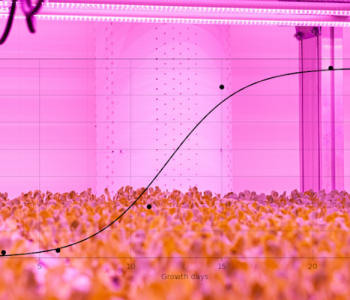 P22/23-ENG
P22/23-ENG
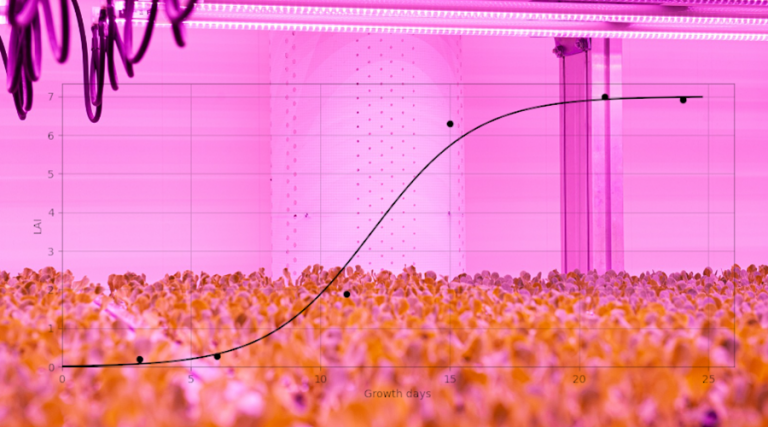
Controlled environment agriculture allows to maximize crop yields by providing plants with ideal growth conditions for 365 days a year, in a sustainable way and without the use of pesticides. The maximum exploitation of the productive potential of the plant, however, depends on the knowledge of the response of the latter to a wide spectrum of environmental stimuli, which can be acquired through a long and expensive experimental process. In this context, biophysical models of plant growth, which are based on physiological knowledge and minimize the need for calibration data, represent an opportunity to speed up the optimization process on new genotypes that are continuously introduced into the market. These mathematical models have been developed in open field conditions, or in greenhouses, and are not currently available for all species of interest in indoor farming. The aim of this thesis project is to extend the existing models to new species and/or cultivation techniques used in controlled environments. The calibration and validation of the models, possibly integrated with Machine Learning algorithms, will be carried out experimentally in a vertical farm.
 News & Events
News & Events

Il rapporto BES 2023 evidenzia come il ritardo italiano sul fronte delle competenze digitali si correli a vari fattori. Se ci focalizziamo su un settore come quello agricolo, il presupposto per la quarta rivoluzione industriale è soprattutto che gli operatori agricoli assumano una consapevolezza adeguata a governare l’utilizzo progressivo dell’innovazione tecnologica
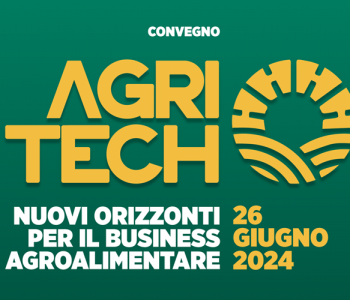 News & Events
News & Events
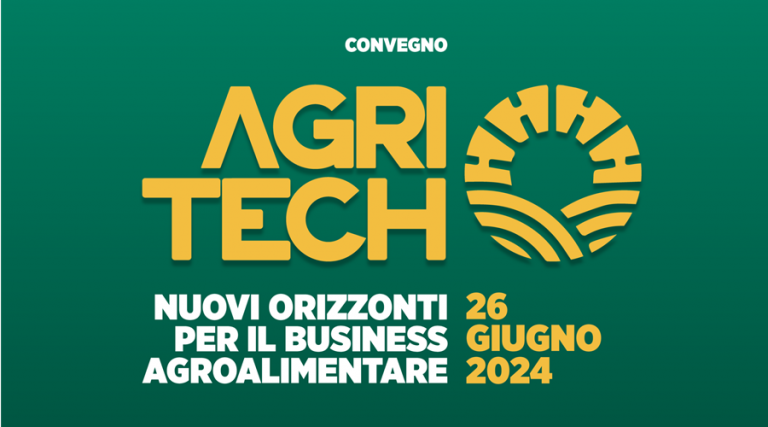
Wednesday, June 26, 2024 – 5:00 PM
CremonaFiere – Piazza Zelioli Lanzini Ennio, 1 (CR)
The conference will be an opportunity to understand how to leverage the excellence of the Cremona system in the Agritech sector to establish a new business platform capable of recognizing value to farmers and supply chain actors in eastern Lombardy. It will also be an occasion to present the “Knowledge Hub” project promoted by Cassa Padana with the support of the Politecnico di Milano and the Capirola Institute.
PROGRAM
Institutional Opening Remarks
Roberto Biloni – President of Cremona Fiere SpA
Giandomenico Auricchio – Special Commissioner of the Chamber of Commerce, Industry, Handicrafts, and Agriculture of Cremona
Romano Bettinsoli – President of Cassa Padana
Opportunities in the Agri-Food System: Between Market and Technology
Filippo Renga – Director of the Smart Agrifood Observatory, Politecnico di Milano
Giuliano Noci – Vice Rector, Politecnico di Milano
Technology Serving the Agri-Food System
Serena Ruggeri – Vice President of the Industrial Association of Cremona and Owner of MA/AG Srl
Gino Mainardi – Director of COBO Advanced Engineering
Morris Peri – Centro Lely
Paolo Mondini – G.Mondini spa
Users Discuss the Opportunities and Impacts of Technology
Rossano Remagni Buoli – Vice President of Apima Cremona
Patrizia Facchi – Owner of Società Agricola Panizza
Tiziano Fusar Poli – President of Latteria Soresina S.c.a.
A Concrete Look at the Near Future
Giuliano Noci – Vice Rector, Politecnico di Milano
Gianni Ferretti – Vice Rector, Cremona Campus, Politecnico di Milano
Erminio Trevisi – Director of the Department of Animal Sciences, Food, and Nutrition (DIANA), Università Cattolica del Sacro Cuore
Conclusions
Andrea Lusenti – General Director of Cassa Padana
Closing Networking Session with Aperitif
For further information, consult the poster or the HUB DELLA CONOSCENZA website.
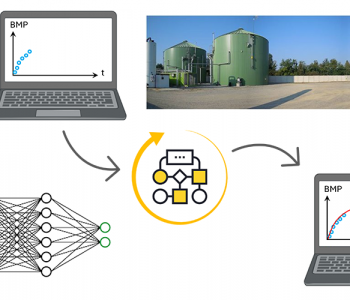 P22/23-ENG
P22/23-ENG
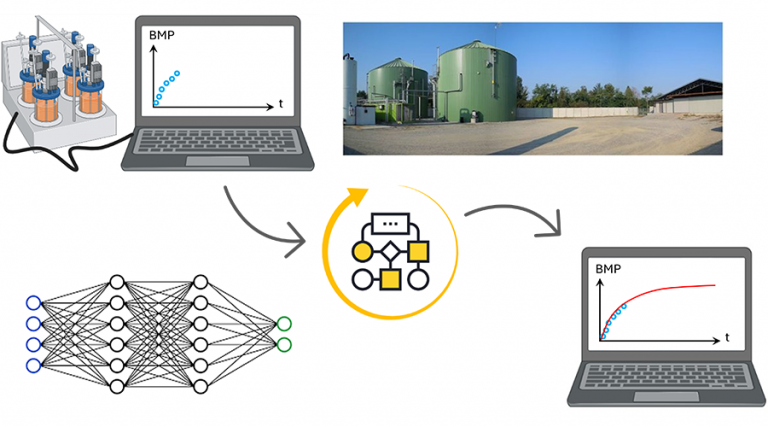
Biochemical Methane Potential (BMP) testing is an essential tool for deriving practical knowledge for optimizing and operating large-scale anaerobic digesters, monitoring, modeling and evaluating process performance, or when it is ongoing the development of a scenario analysis. While its usefulness is undoubted, the long duration of BMP testing is problematic for many of its applications, especially when timely results are required for decision making. In recent decades, numerous scientific contributions have demonstrated that a reduction in BMP test duration is possible by predicting the final gas production. The aim of this thesis work is the development of a new procedure/algorithm to obtain a preliminary estimate of the BMP experimental result using Machine Learning. The effectiveness and efficiency of the developed algorithm will be verified using experimental data from BMP tests performed on different substrates commonly fed to anaerobic digesters.
 News & Events
News & Events
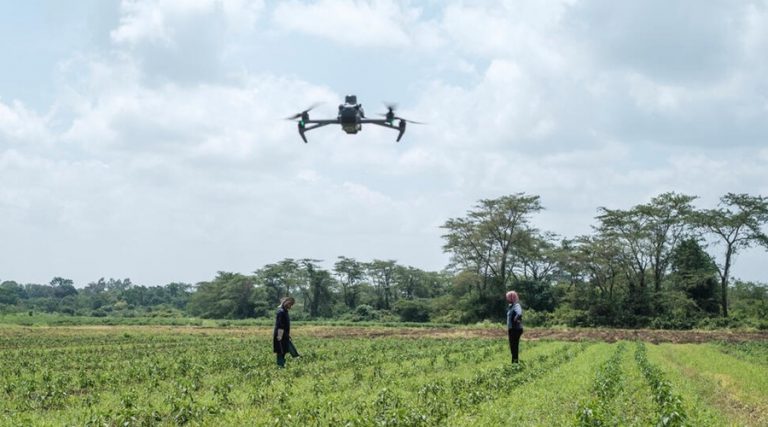
Rome – Artificial Intelligence and the ongoing digital revolution will inevitably transform the world and its agrifood systems, making it all the more urgent that the transformations they drive benefit everyone and contribute to solving global challenges, the Director-General of the Food and Agriculture Organization (FAO), QU Dongyu, said Friday at the Business Federations of the G7 (B7) meeting in Rome.
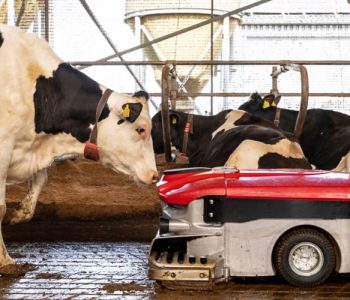 News & Events
News & Events
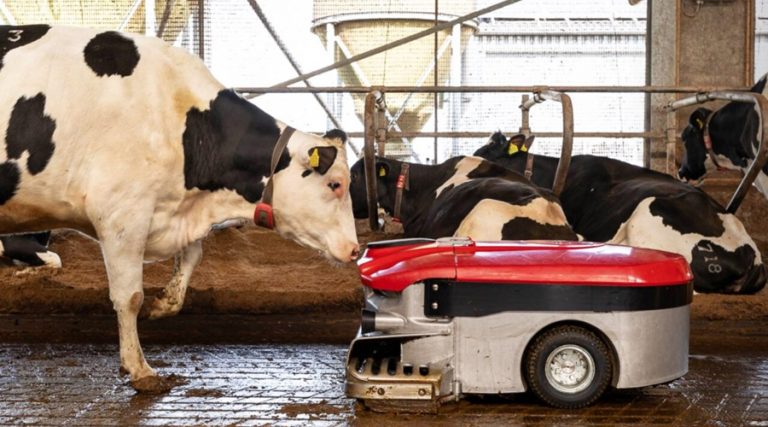
On Tuesday 28 May 2024 from 10.30, as part of the Control System Technologies for Smart Agriculture course, Lely will talk about the design, realization, development, and testing of a robot for barn automation. Lely is an international family business offering solutions for almost all activities in the dairy farm: from milking to cleaning.
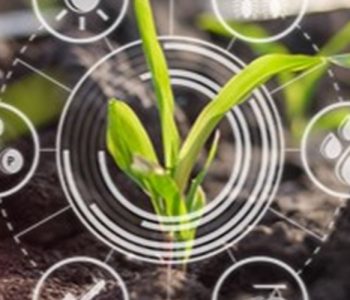 P22/23-ENG
P22/23-ENG
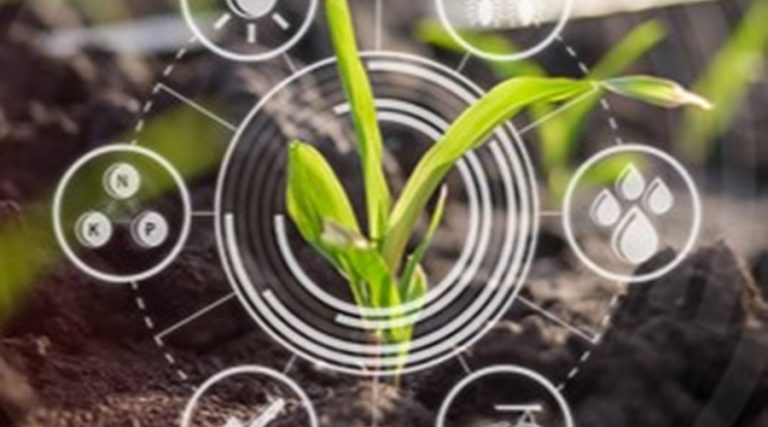
This thesis aims at performing a systematic review of the existing evidence regarding the effects of agriculture 4.0 techniques, smart-agriculture and IOT-tools applied to the agricultural sector, on relevant environmental, climatic and productivity impacts. The literature synthesis will be the basis of a scientific publication in collaboration with the Joint Research Center of the European Commission.
The work includes the screening of existing primary and secondary scientific literature, using artificial intelligence tools to automize and speed-up the screening of relevant literature records. The obtained data will constitute the basis for EU-wide modelling of the potentials of smart/precision farming to contribute to the European Union’s goals in the context of sustainable agriculture and climate action.
The students will learn about methods for knowledge synthesis, data management and scientific evidence analysis. This work is suitable for students with an engineering or non engineering background, and for a single student or for a group of two students. Backgrounds of coding skills (e.g. R, Python) are preferred.
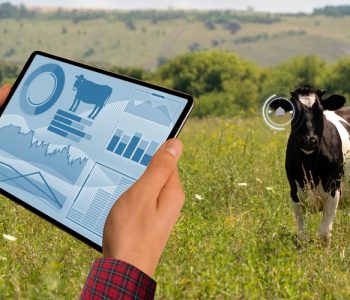 News & Events
News & Events
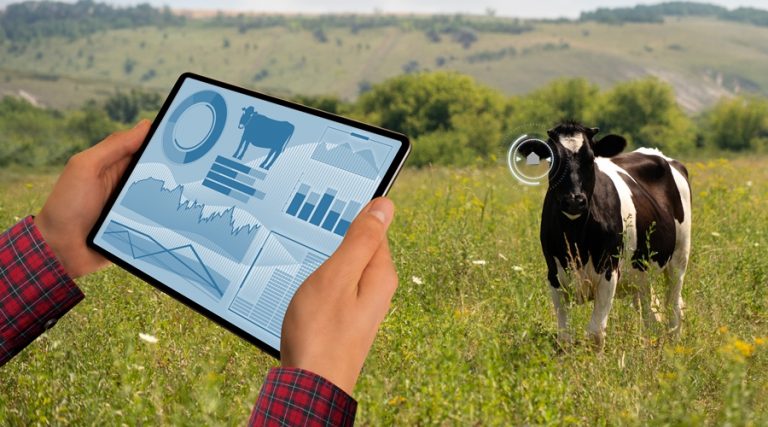
The seminar “Diffusion of Digital Innovation in Agriculture” will be held on Tuesday, May 21 at 3:30 p.m. in Room B 1.3 of the Cremona Campus of the Politecnico di Milano. The seminar will be in Italian.
The event can be attended also remotely, by connecting to the Webex room:
https://politecnicomilano.webex.com/meet/filippo.renga
The speaker of the seminar will be Prof. Filippo Maria Renga, Professor of Data Analytics For Smart Agriculture and CoFounder Digital Innovation Observatories of Politecnico di Milano.
Prof. Renga will present the main features of Agriculture 4.0, focusing on the dynamics and impacts taking place in the Italian market. He will describe the solutions and technologies that make up the offer and the state of adoption by Italian agricultural and livestock companies, and finally he will delve into the reasons for diffusion and resistance to adoption also through real cases.
The initiative may be useful to learn about one of the topics addressed in the Laurea Magistrale in Agricultural Engineering, the first course in Italy, which aims to train engineers working in the agro-industrial sector and equipped with a systems vision.
To participate, no registration for the event is necessary.
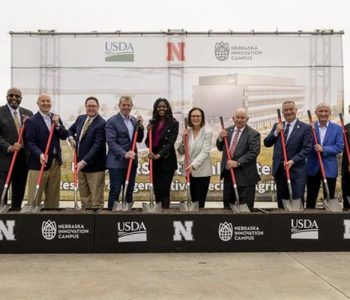 News & Events
News & Events
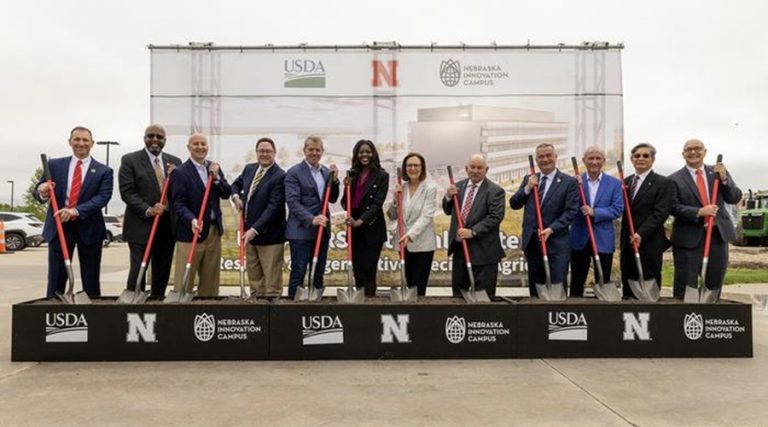
The University of Nebraska-Lincoln is joining forces with the United States Department of Agriculture (USDA) to open the Construction of the National Center for Resilient and Regenerative Precision Agriculture at Nebraska Innovation Campus.
To make the launch of the Center, a ceremonial turning of dirt took place on 6 May 2024.
The research centre is a partnership between the USDA’s Agricultural Research Service, University of Nebraska–Lincoln and Nebraska Innovation Campus and is set to focus on the challenges and opportunities in agricultural innovation for the 21st century.
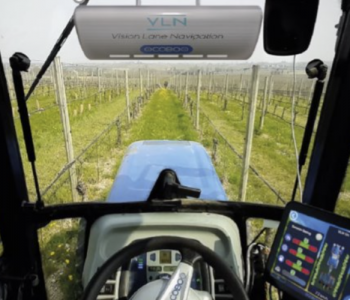 News & Events
News & Events
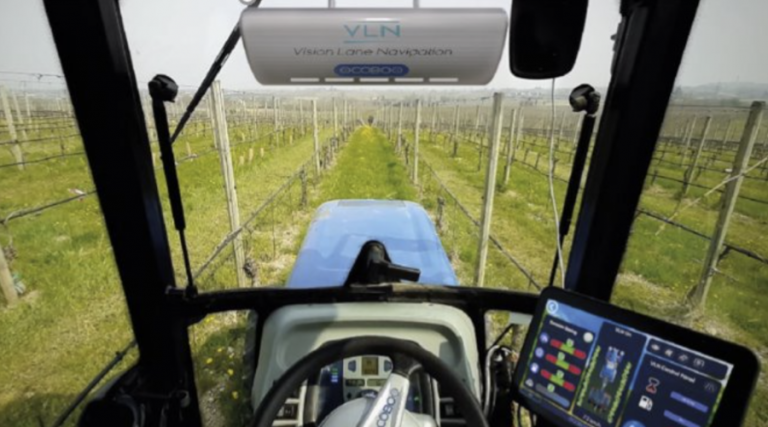
On Friday 17 May 2024 from 9.30, as part of the Industrial Technologies for Precision Agriculture course, COBO S.p.A. will talk about Digital Twins and Artificial Intelligence in design, realization, development, and testing of advanced automated systems for agriculture. COBO S.p.A. is a global leader in the design, development, and supply of global solutions and integrated systems for off-highway vehicles.
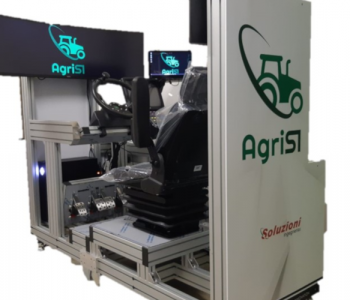 News & Events
News & Events
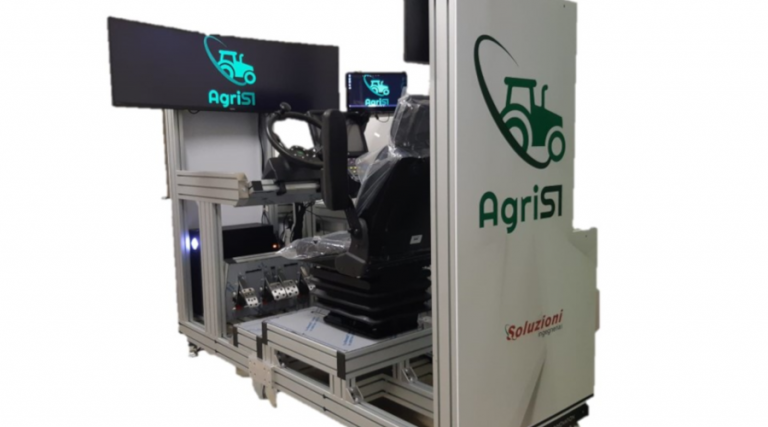
On Friday 24 May 2024 from 9.30, as part of the Industrial Technologies for Precision Agriculture course, Claudio Maroni, senior mechanical engineer, will talk about AgriSI, the agricultural vehicle dynamics and precision farming simulation platform, developed in Soluzioni Ingegneria srl. Soluzioni Ingegneria srl is an engineering company providing product and engineering services to the world’s top vehicle manufacturers and suppliers referring to simulation, testing and optimization for road, offroad, agricultural and commercial vehicles.
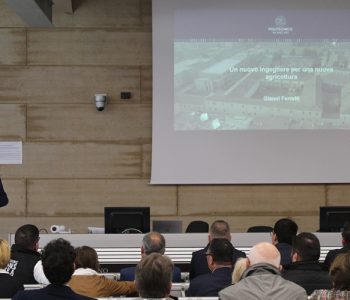 News & Events
News & Events
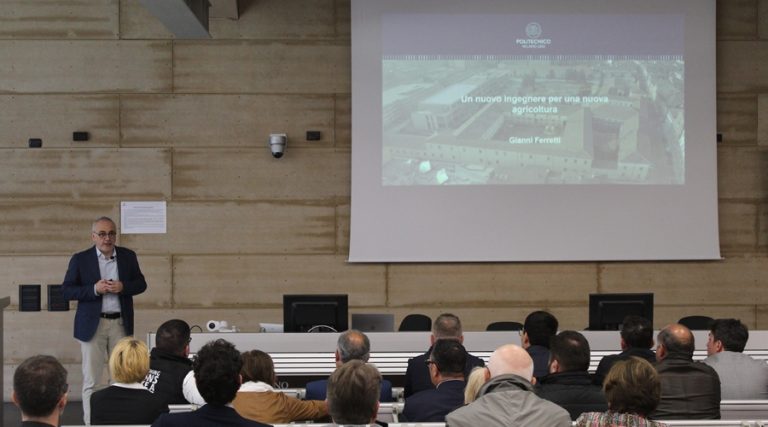
Monday May 6th 2024 at the Cremona Campus of the Politecnico di Milano, the Italian dealers of the well-known company John Deere met the teachers of the Master’s Degree Course in Agricultural Engineering to learn in detail about the teaching and research activities in the field of agriculture.
Retracing throughout history the main applications of robotics, mechanics and technology in general in agriculture, Prof. Gianni Ferretti presented the Agriculture 4.0 market, where precision agriculture and sustainable agriculture together with Artificial intelligence are key elements for developing innovation in this sector.
In fact, innovation, technology and sustainability combine perfectly in this scenario, where the Agricultural Engineer, equipped with transversal skills and a systemic vision, represents a figure highly requested by companies, capable of dealing with the complexity of the agro-industrial sector.
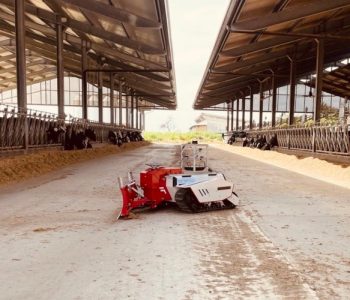 P22/23-ENG
P22/23-ENG
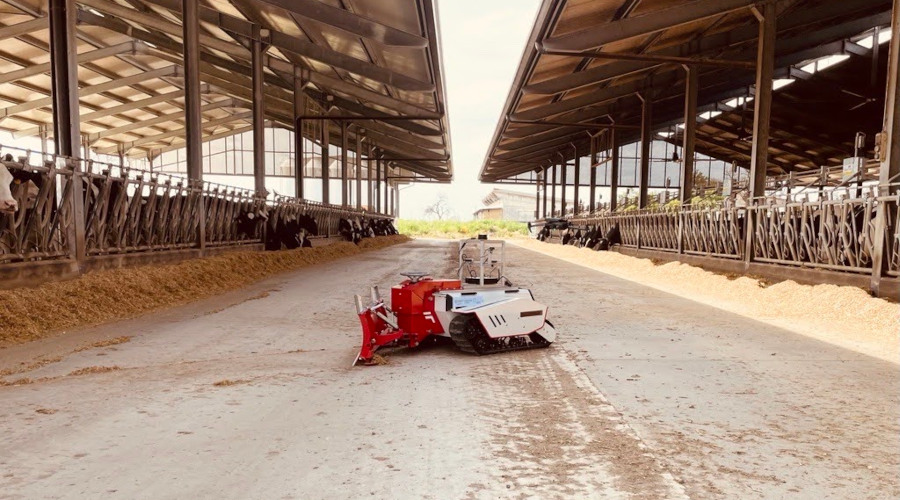
Barn automation is gradually becoming more and more widespread. Among the solutions offered by the market we find, for example, mobile robots for cleaning stables and distributing feed. However, these solutions are characterized by a low level of automation and, more generally, by extremely simple technological solutions, which make them robust but not very flexible.
This work concerns the design and implementation of an autonomous mobile robot, based on the commercial Agilex Bunker/Bunker Pro robot, for feed distribution. Compared to current commercial solutions, the robot must be able to navigate autonomously both inside and outside the stable, without requiring dedicated infrastructure (easy routes, special localization devices, etc.).
This work is suitable for both students coming from an engineering and non-engineering background, and can be tackled both by a single student and by a group of two students.
Reference teacher: Prof. Luca Bascetta – luca.bascetta@polimi.it
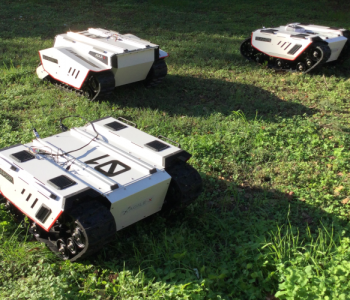 P22/23-ENG
P22/23-ENG
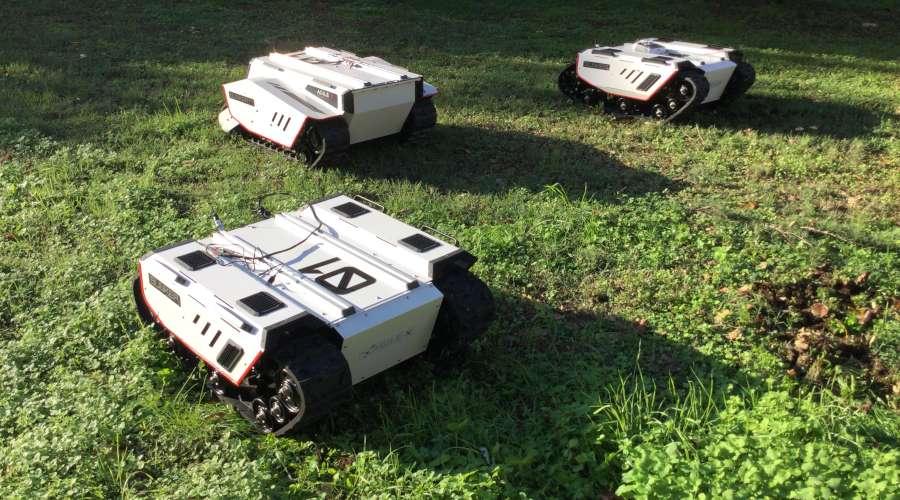
Model-based control techniques are widely used for autonomous navigation. MPC, in particular, is a flexible and powerful technique that allows considering different navigation objectives and constraints and performing trajectory tracking and obstacle avoidance at the same time. Furthermore, the MPC can be equipped with a model of the robot/vehicle that is continuously updated/adapted to changing conditions of the environment, using learning techniques, also taking into account the level of uncertainty associated with the model itself.
This thesis aims to develop an MPC controller for the autonomous navigation of a tracked robot. The controller will be based on a simple model of the vehicle/robot and on adequate algorithms to adapt it to changes in the environment. Furthermore, the controller will be aimed at autonomous navigation in agricultural environments, such as navigation in rows and open fields.
The developed controller will be validated in simulation and/or in the field using an Agilex Bunker or Bunker Pro tracked robot.
This work is suitable for both students coming from an engineering and non-engineering background, and can be tackled both by a single student and by a group of two students.
Reference teacher: Prof. Luca Bascetta – luca.bascetta@polimi.it
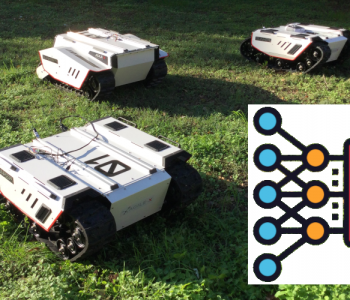 P22/23-ENG
P22/23-ENG
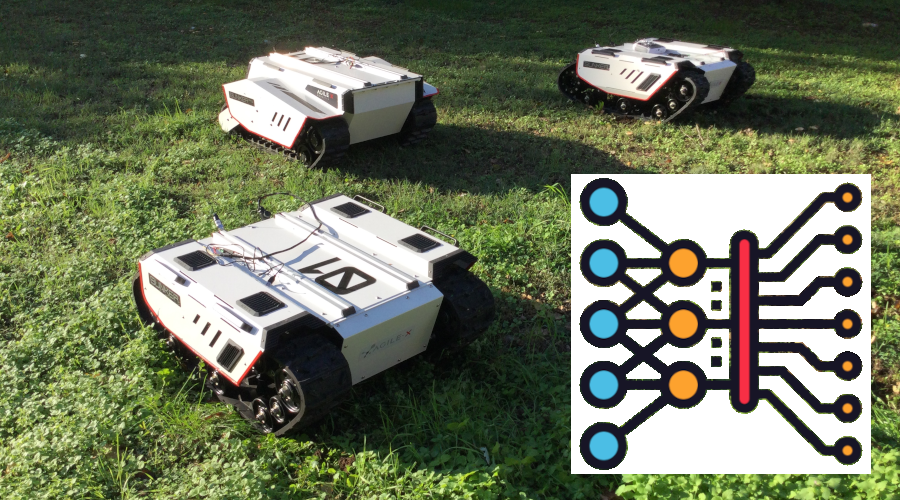
Model-based control techniques are widely used for autonomous navigation, but achieving good performance in the presence of disturbances and uncertainties requires online estimation and adaptation of the model. Agricultural applications are a typical example where the variability of the environment and the complexity of the wheel/terrain interaction model require an approach based on a simple model of the robot/vehicle, equipped with algorithms capable of continuously adapting/improving this model using all sizes available.
This thesis aims to develop classical and machine/deep learning techniques to estimate online the slip of a track, constituting the fundamental element for the creation of a controller for the autonomous navigation of a skid-steering robot for offroad/agricultural applications.
Different sensors will be taken into consideration, starting from the state of the robot and the information provided by an IMU, up to the images of the terrain generated by an RGBD camera or a lidar.
A key aspect of the thesis will be the comparison between classical and learning-based techniques, in order to discover any added value of the latter.
The developed algorithms will be validated in simulation and/or in the field using a tracked robot.
This work is suitable for both students coming from an engineering and non-engineering background, and can be tackled both by a single student and by a group of two students. Knowledge of Python is required.
Reference teacher: Prof. Luca Bascetta – luca.bascetta@polimi.it
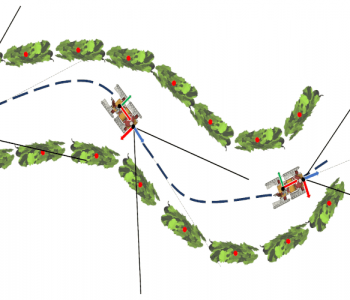 P22/23-ENG
P22/23-ENG
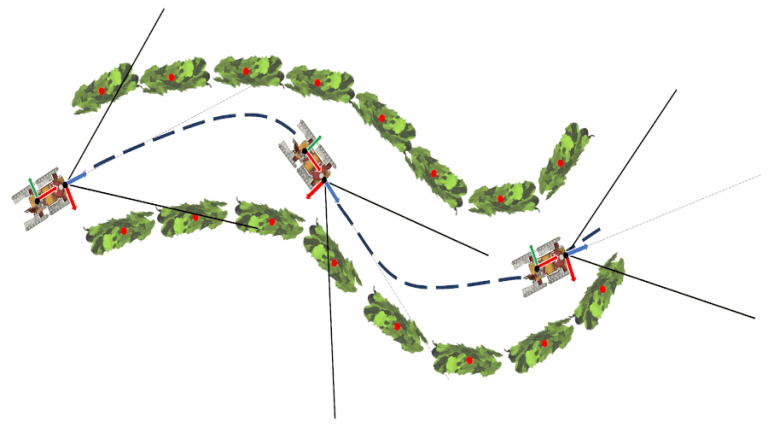
Localization and mapping are two fundamental parts of the navigation system of an autonomous robot. Mapping is the procedure that allows the robot, using the available sensors, to generate a map of the environment. Localization, on the other hand, is the procedure that allows the robot, using its sensors and a map of the environment, to determine its position and orientation with respect to a fixed reference system.
Are localization and mapping necessary to autonomously navigate a vineyard?
Do we really need to create a map of the vineyard with sensors or can we rely on the known structure of the rows?
Do we really need a complex localization algorithm or can we just rely on GPS measurements?
Are the localization and mapping approaches that are usually adopted in robotics, autonomous vehicles or in the open field suitable for the vineyard, or can we use simpler approaches that are able to exploit, as much as possible, the structure of the rows?
Does using artificial intelligence help?
This work aims to answer one or more of the previous questions to develop simple, efficient and reliable localization and mapping techniques to autonomously navigate a vineyard.
This work is suitable for students coming from an engineering background and with experience in using the C, C++ or Python language. A group made up of two students, one from an engineering background and one from a non-engineering background, represents the best solution.
Reference teacher: Prof. Luca Bascetta – luca.bascetta@polimi.it
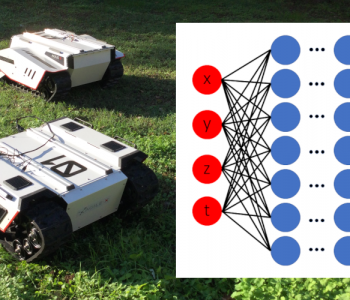 P22/23-ENG
P22/23-ENG
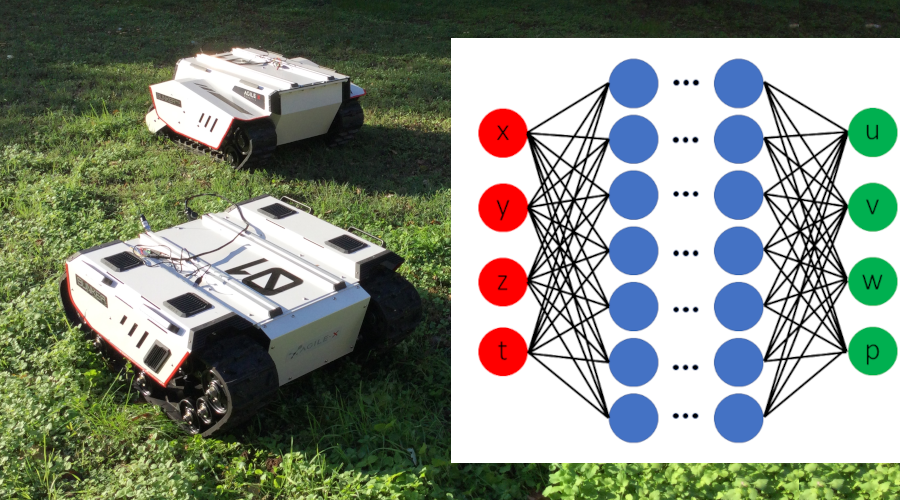
To design a control system it is necessary, first of all, to develop the model of the system to be controlled. This model is useful for studying the properties of the system, for designing the regulator, and for carrying out a preliminary validation in simulation of the control system itself.
Sometimes, however, the physical model is too complex and requires excessively long computation times. In this case, the use of neural networks allows us to obtain an equally accurate but much more efficient model.
This thesis aims to derive a model of an Agilex tracked robot using PINN neural networks (Physics-Informed Neural Networks), starting from a physical model developed in a previous thesis work and from experimental data.
The model will then be validated experimentally by comparing the behavior of the simulated robot with that of a real platform.
This work is suitable for both students coming from an engineering and non-engineering background, and can be tackled both by a single student and by a group of two students.
Reference teacher: Prof. Gianni Ferretti – gianni.ferretti@polimi.it
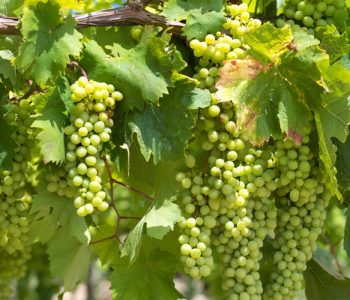 News & Eventi
News & Eventi
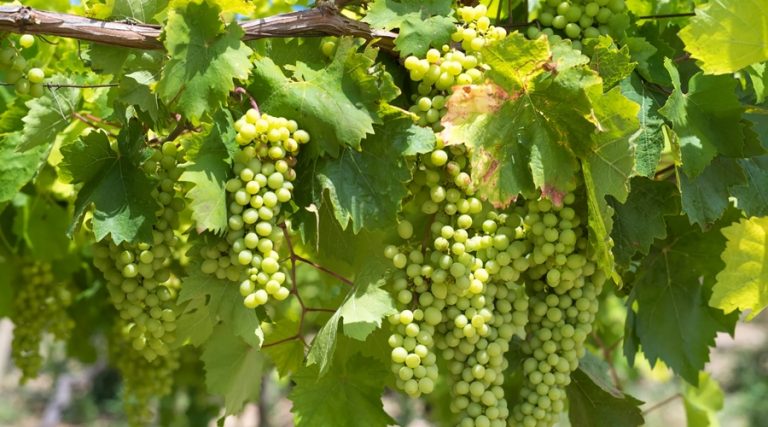
La digitalizzazione avrà un ruolo cruciale nel futuro dei vigneti e, più in generale, in quello dell’agricoltura. È questo il principale tema emerso nel corso del convegno Tecnologie digitali e sostenibilità certificata nel vigneto, organizzato da Confagricoltura lo scorso 16 aprile nello spazio del ministero dell’Agricoltura, della sovranità alimentare e delle Foreste al Vinitaly di Verona, la più importante fiera del vino in Italia.
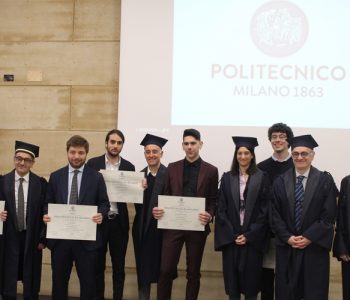 News & Events
News & Events
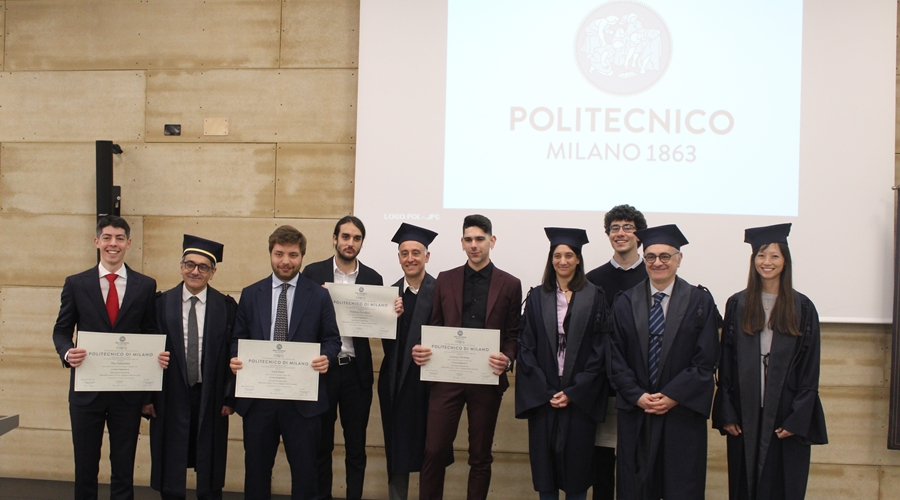
On Wednesday 10 April, the ceremony for the first five graduates in Italy in Agricultural Engineering was held at the Cremona Campus of Politecnico di Milano.
This Laurea Magistrale (equivalent to Master of Science) programme trains engineers for the agro-industrial sector with a view to the technological innovation of systems. The new graduates are Matteo Giacomo Aloisi, Lorenzo Peronaci, Federico Previderè, Alec Sebastiani and Luca Succi.
Launched in the A.Y. 2021/2022 as the first programme in Italy and one of the few in the world, it is delivered in English and responds to a growing demand for training by companies that are constantly looking for professional figures capable of managing complex aspects of agricultural and agro-industrial production; it has a strong multidisciplinary dimension that combines technological innovation in agriculture and stockfarming with a focus on sustainability and food safety.
says Luca Bascetta, programme coordinator.
The Laurea Magistrale in Agricultural Engineering, taught by 26 professors, has immediately proved attractive to both Italian students from outside the region (30%) and international students (25%). To support these students, the university offers annual merit-based scholarships, which are a valuable aid especially for students living away from home.
 News & Events
News & Events

Using IoT and AI, businesses can now achieve high food safety standards, enhance traceability, save waste, and minimise expenses and hazards at different phases of food processing and packaging.
Global Food Robotics Market Research Report 2024 begins with an overview of the Market and offers throughout development. It presents a comprehensive analysis of all the regional and major player segments that gives closer insights upon present market conditions and future market opportunities along with drivers, trending segments, consumer behaviour, pricing factors and market performance and estimation and prices as well as global predominant vendor’s information.
The forecast market information, SWOT analysis, Food Robotics Market scenario, and feasibility study are the vital aspects analysed in this report.
 News & Eventi
News & Eventi

Using IoT and AI, businesses can now achieve high food safety standards, enhance traceability, save waste, and minimise expenses and hazards at different phases of food processing and packaging.
Global Food Robotics Market Research Report 2024 begins with an overview of the Market and offers throughout development. It presents a comprehensive analysis of all the regional and major player segments that gives closer insights upon present market conditions and future market opportunities along with drivers, trending segments, consumer behaviour, pricing factors and market performance and estimation and prices as well as global predominant vendor’s information.
The forecast market information, SWOT analysis, Food Robotics Market scenario, and feasibility study are the vital aspects analysed in this report.
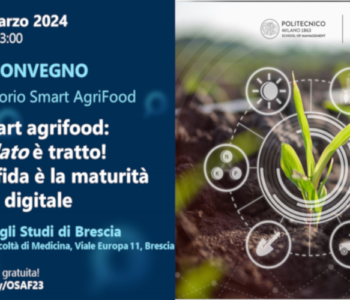 News & Eventi
News & Eventi
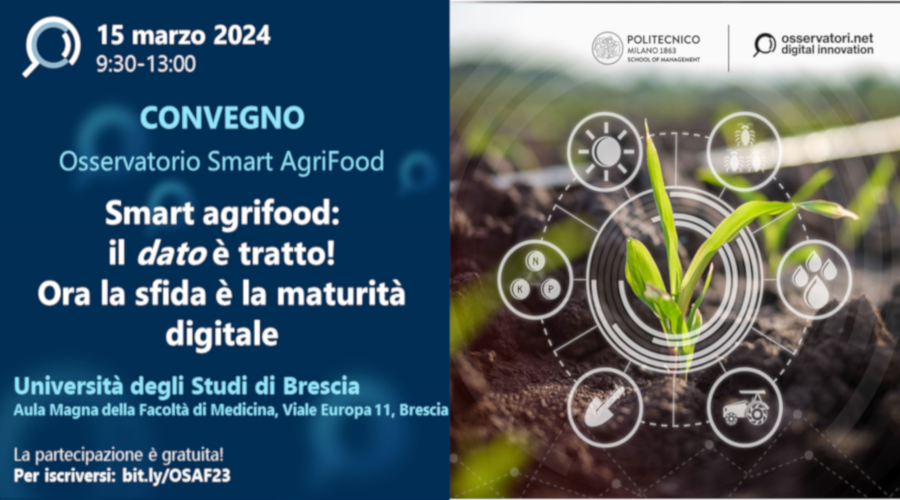
Venerdì 15 Marzo – Ore 09.30
Iscriviti al Convegno “Smart agrifood: il dato è tratto! Ora la sfida è la maturità digitale” durante il quale verranno presentati i risultati della Ricerca dell’Osservatorio Smart AgriFood. Per tutti i dettagli consulta la locandina o il sito dell’Osservatorio Smart Agri Food.
La partecipazione al Convegno è gratuita.
Per partecipare è necessario iscriversi al seguente link, selezionando la modalità scelta (in presenza o in diretta streaming).
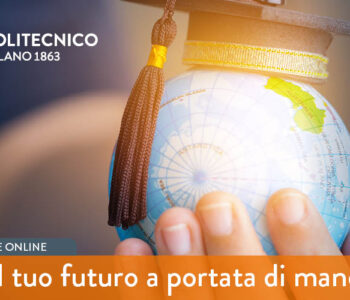 News & Events
News & Events
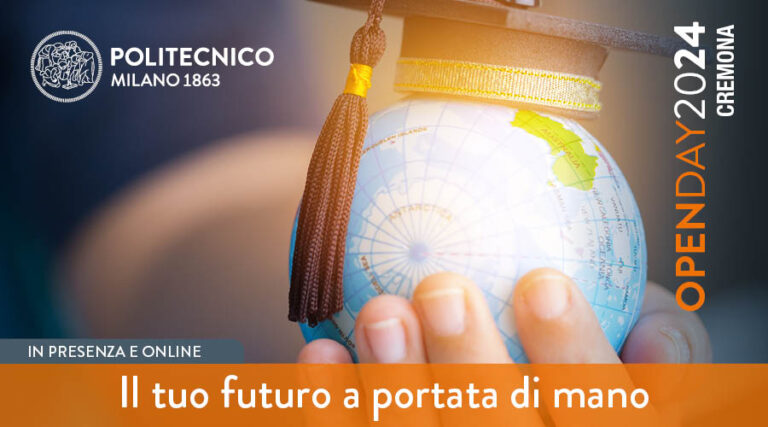
Join the Open Day so to discover the opportunities offered by the Master’s Degree Programme in Agricultural Engineering, first in Italy, and to learn more about Cremona Campus of Politecnico di Milano.
This Master’s Degree Course trains specialist engineers operating in the agro-industrial sector and who possess a systems engineering vision.
Check out the programme.
Subscribe the appointments through the form available on the Cremona Campus website https://www.polo-cremona.polimi.it/ specifying whether you will participate in presence or online.
If you participate online, the day before the initiative, you will receive by email the link so to access the event.
Registration deadline: Sunday 14th April
For any further information on the Open Day, please check the dedicated page or send us an email to orientamento-cremona@polimi.it
We are waiting for you at Cremona Campus!
 News & Eventi
News & Eventi

Partecipa all’Open Day per scoprire le opportunità offerte dalla Laurea Magistrale in Agricultural Engineering, prima in Italia, e per conoscere meglio il Campus cremonese del Politecnico.
Questo Corso si propone di formare ingegneri operanti nel settore agro-industriale e dotati di una visione sistemistica.
Consulta il programma.
Iscriviti agli appuntamenti attraverso il form disponibile sul sito del Polo di Cremona https://www.polo-cremona.polimi.it/ specificando se parteciperai in presenza o online.
Se parteciperai online riceverai per email, il giorno prima dell’iniziativa, il link per accedere all’evento.
Termine iscrizioni: domenica 14 aprile.
Per ulteriori informazioni sull’Open Day consulta la pagina dedicata o invia una mail a orientamento-cremona@polimi.it
Ti aspettiamo!
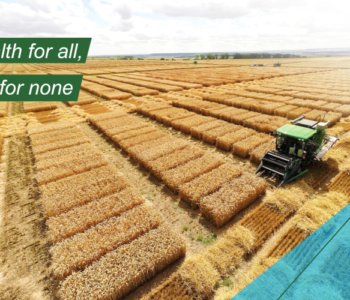 News & Events
News & Events
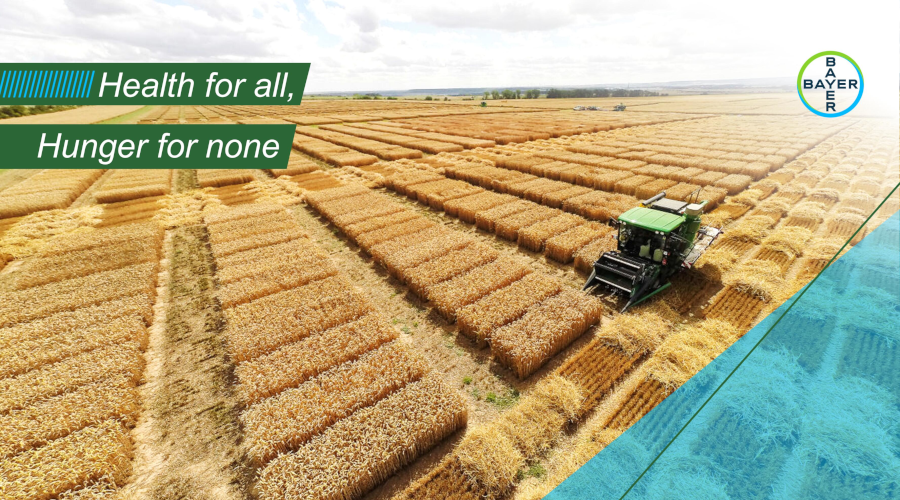
The cycle of 3 meetings organised by Bayer Crop Science for Agricultural Engineering students and titled “Introduction to Breeding” starts on February 23, 2024.
The first meeting will be held at the Cremona Campus on February 23, 2024 at 2 p.m., and will be aimed at introducing the company, its Market Development Strategy, and the Growing Early Talent Program.
The second meeting, in early March, will be at Bayer’s Olmeneta site. You will learn more about this meeting in a future message.
 News & Eventi
News & Eventi

The cycle of 3 meetings organised by Bayer Crop Science for Agricultural Engineering students and titled “Introduction to Breeding” starts on February 23, 2024.
The first meeting will be held at the Cremona Campus on February 23, 2024 at 2 p.m., and will be aimed at introducing the company, its Market Development Strategy, and the Growing Early Talent Program.
The second meeting, in early March, will be at Bayer’s Olmeneta site. You will learn more about this meeting in a future message.
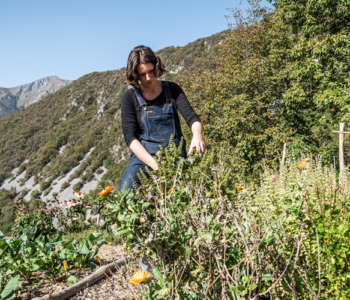 News & Events
News & Events
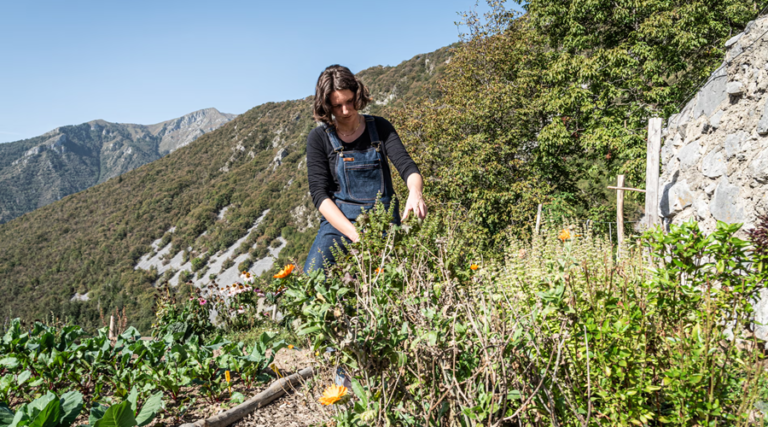
A new generation is redefining what it means to be a farmer, abandoning well-paid jobs in the cities to tend their plots with passion
 News & Eventi
News & Eventi

A new generation is redefining what it means to be a farmer, abandoning well-paid jobs in the cities to tend their plots with passion
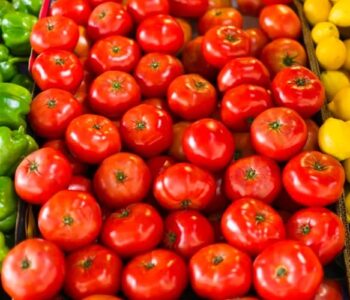 News & Events
News & Events
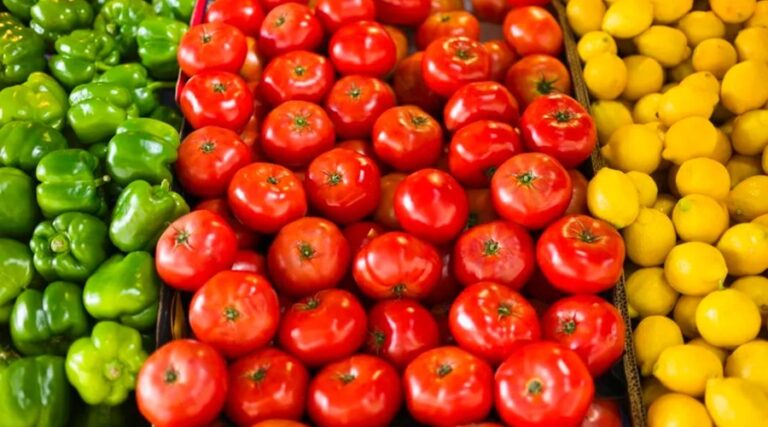
How do you measure the environmental impact of a product? Is it simply how long it exists before it decomposes or how much energy it takes to produce it? Who is responsible for that impact: the one who made it or the one who sold it?
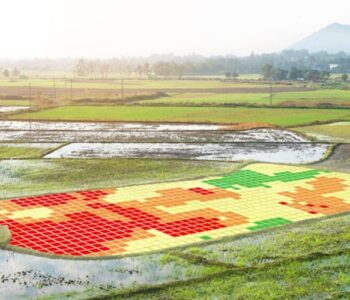 News & Events
News & Events
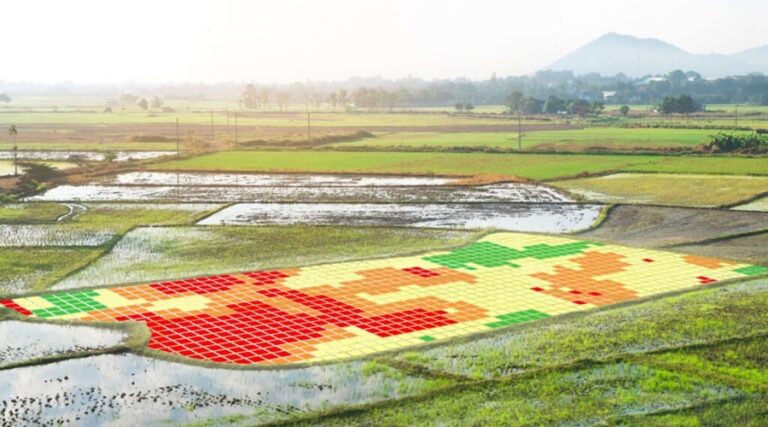
Filippo Renga and Matteo Matteucci have been collaborating for several years in the study of digital technologies used in agriculture. They hold the Data Analytics for Smart Agriculture course of the PoliMI Ambassador in Green Technologies programme, which deals with the application of Artificial Intelligence techniques to data analysis in the agronomic field and aims at exploiting the world of data also from an economic and strategic point of view.
 News & Eventi
News & Eventi

Filippo Renga e Matteo Matteucci collaborano da alcuni anni nello studio delle tecnologie digitali impiegate nell’agricoltura. Tengono insieme il corso di Data Analytics for Smart Agriculture del programma PoliMI Ambassador in Green Technologies, che si occupa di applicare le tecniche di intelligenza artificiale all’analisi dei dati in ambito agronomico e di valorizzare il mondo dei dati anche dal punto di vista economico e strategico.
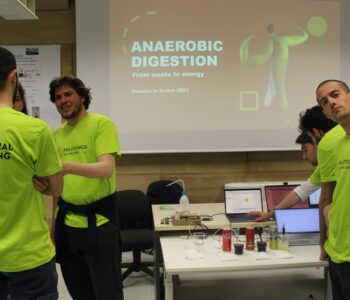 News & Eventi
News & Eventi
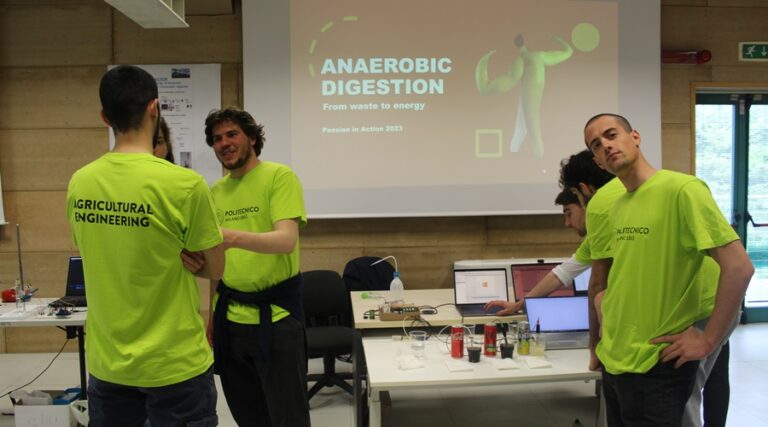
Benvenuto alle matricole della Laurea Magistrale in Agricultural Engineering
Mercoledì 13 settembre 2023, dalle ore 10:00 nell’Aula B.1.3, si svolgerà un momento dedicato alle matricole della Laurea Magistrale in Agricultural Engineering del Campus di Cremona.
L’obiettivo è dare il benvenuto a tutti i nuovi studenti e fornire un primo aiuto per orientarsi al Politecnico.
Nel corso dell’incontro verranno presentati i servizi della sede.
Inoltre, per gli studenti provenienti da un corso di Laurea in Scienze Agrarie, durante l’incontro, verranno illustrate alcune iniziative di sostegno disponibili per il recupero di eventuali lacune nelle matematiche, nell’informatica e nella meccanica.
Alle ore 11.15 per gli studenti con piano degli studi AGA – Agricultural Engineering – A inizieranno regolarmente le lezioni, mentre le lezioni per gli studenti con piano degli studi AGI – Agricultural Engineering – I inizieranno giovedì 14 settembre.
L’orario completo delle lezioni ed eventuali variazioni sono consultabili sulla bacheca studenti on line disponibile al seguente link
https://bacheca.cremona.polimi.it/
Ti comunichiamo, inoltre, che dal 13 al 30 settembre 2023 dalle ore 9:00 alle ore 19:00 potrai ritirare presso la portineria del nostro Campus la tua copia gratuita della guida “The Polimi Guide” pensata per offrirti itinerari, informazioni, indirizzi utili, mappe oltre che suggerimenti, curiosità e aneddoti per valorizzare al meglio il tuo percorso qui al Politecnico.
Buon inizio!
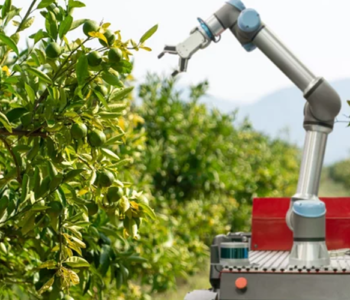 News & Events
News & Events
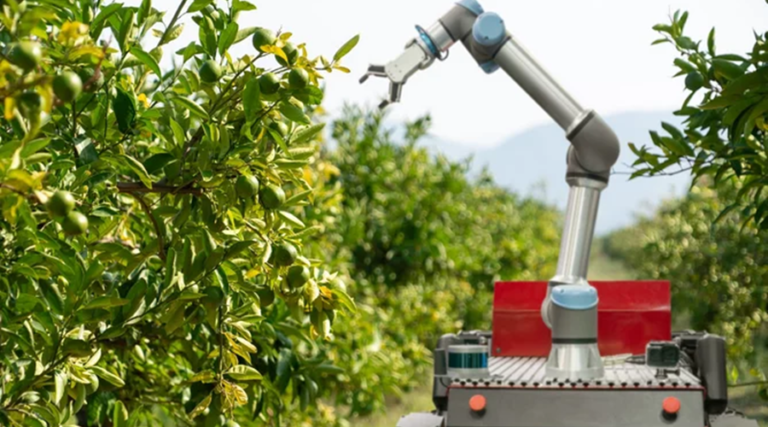
 News & Eventi
News & Eventi

Israeli start-up, Tevel, is just one example of a company that has designed robots to partake in fruit picking. Its flying autonomous robots act like drones and, powered by AI and computer algorithms, can pick fruit and aim to optimise the harvesting process.
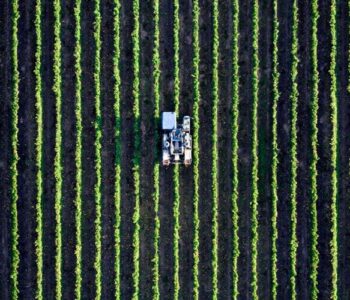 News & Events
News & Events
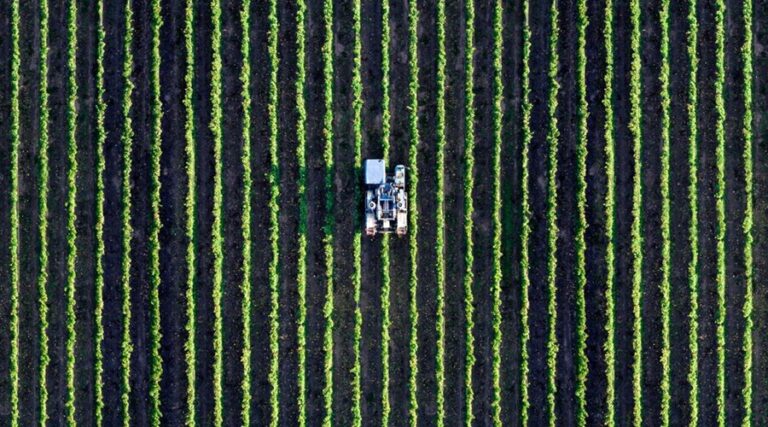
The agriculture industry is under pressure. Dramatic cost increases for inputs and labor are putting farmers’ profitability at risk. Globally, farmers report that prices for inputs such as fertilizer and crop protection chemicals have risen by 80 to 250 percent over the past few years.1 Climate change is also squeezing profits. A warmer climate is resulting in increased weather variability, more frequent acute weather events, longer droughts, and new invasive crops and pests, all of which reduce yields. In the American Southwest, for example, an ongoing megadrought is so severe that the past two decades have been the region’s driest in at least 1,200 years.
 News & Eventi
News & Eventi

The agriculture industry is under pressure. Dramatic cost increases for inputs and labor are putting farmers’ profitability at risk. Globally, farmers report that prices for inputs such as fertilizer and crop protection chemicals have risen by 80 to 250 percent over the past few years.1 Climate change is also squeezing profits. A warmer climate is resulting in increased weather variability, more frequent acute weather events, longer droughts, and new invasive crops and pests, all of which reduce yields. In the American Southwest, for example, an ongoing megadrought is so severe that the past two decades have been the region’s driest in at least 1,200 years.
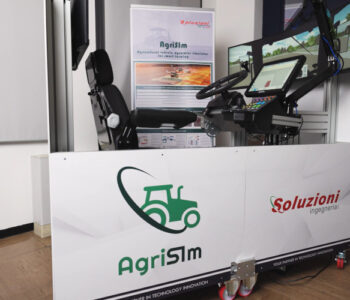 News & Eventi
News & Eventi
On Friday 19 May 2023 from 9.30, as part of the Industrial Technologies for Precision Agriculture course, Claudio Maroni, senior mechanical engineer, will talk about AgriSIm, the agricultural vehicle dynamics and precision farming simulation platform, developed in Soluzioni Ingegneria srl. Soluzioni Ingegneria srl is an engineering company providing product and engineering services to the world’s top vehicle manufacturers and suppliers referring to simulation, testing and optimization for road, offroad, agricultural and commercial vehicles.
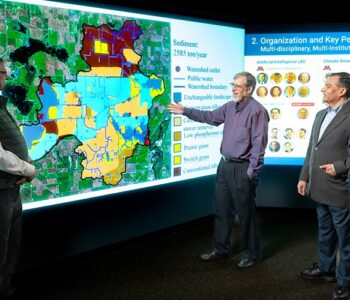 News & Events
News & Events
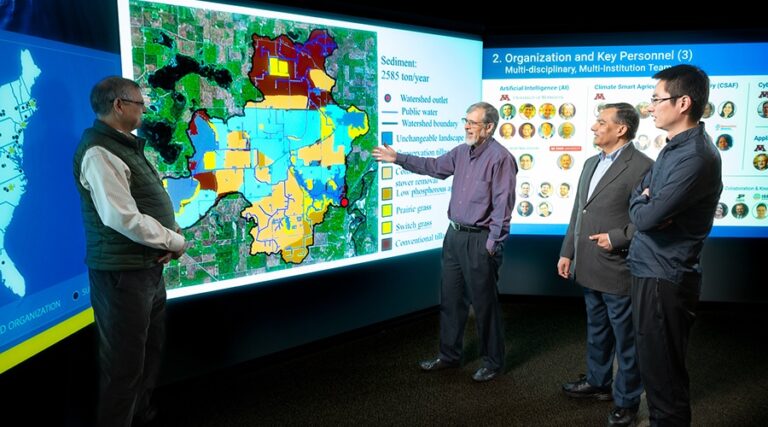
The University of Minnesota announced that it will receive a $20 million grant over five years from the National Science Foundation (NSF) and the U.S. Department of Agriculture’s (USDA) National Institute of Food and Agriculture (NIFA) to lead a new National Artificial Intelligence Research Institute.
 News & Eventi
News & Eventi

The University of Minnesota announced that it will receive a $20 million grant over five years from the National Science Foundation (NSF) and the U.S. Department of Agriculture’s (USDA) National Institute of Food and Agriculture (NIFA) to lead a new National Artificial Intelligence Research Institute.
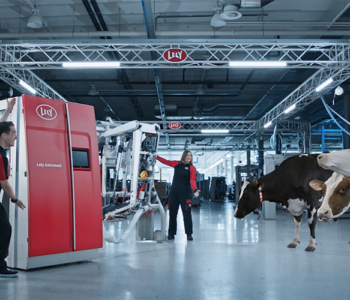 News & Events
News & Events
Lely is an international family business in the agricultural sector, offering solutions for almost all activities in the dairy farm: from milking to cleaning.
On Tuesday May 16, from 12.15 to 13.15, as part of the course Control Systems for Smart Agriculture, Mauro Brenna, senior software engineer, will talk about his professional experience in Lely as software developer for robotics solutions in the farm.
The seminar will be available for streaming on my Webex personal webpage politecnicomilano.webex.com/meet/luca.bascetta
 News & Eventi
News & Eventi
Lely è un’azienda internazionale nel settore agricolo, che offre soluzioni per quasi tutte le attività del caseificio: dalla mungitura alla pulizia.
Martedì 16 maggio, dalle 12.15 alle 13.15, nell’ambito del corso Control Systems for Smart Agriculture, Mauro Brenna, senior software engineer, parlerà della sua esperienza professionale in Lely come sviluppatore software per soluzioni di robotica in allevamento.
Il seminario sarà disponibile in streaming sulla mia pagina web personale politecnicomilano.webex.com/meet/luca.bascetta
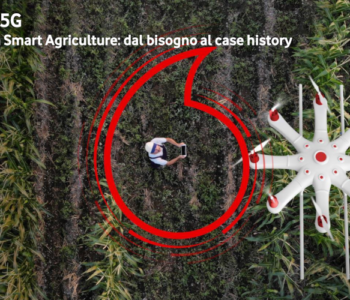 News & Eventi
News & Eventi
In questo seminario saranno affrontati i temi principali della Smart Agriculture. I partecipanti saranno fatti viaggiare tra i bisogni, la situazione di mercato, e le soluzioni basate su Internet of Things (IoT) che possono rendere la Smart Agriculture una realtà. Una serie di casi di studi applicativi terminerà la presentazione.
Davide Magni, Portfolio Owner in Vodafone Business Italia, dove è responsabile della gestione e strategia di prodotti/soluzioni complesse del mercato Manifatturiero, Logistico, Smart Agricolture e Droni. Dopo la laurea in Ingegneria Informatica al Politecnico di Milano, dal 1999 lavoro nel settore IT dove ha potuto lavorare in diversi settore: Home Banking, Healthcare e Pubblica Amministrazione, con società di consulenza e di prodotto. Dal fine 2019 con il ruolo di responsabile di BU ha iniziato a lavorare in progetti IoT, Cloud creando un prodotto di IIoT per il monitoraggio delle attività produttive su un plant, seguendo le “regole” Industria 4.0.
Silvio Spagnuolo, Product Manager in Vodafone Business Italia, dove e’ responsabile della creazione e gestione di prodotti/soluzioni complesse del mercato Logistico , Droni e Smart Agricolture.
Ingegnere delle Telecomunicazioni , ha maturato oltre 15anni esperienza nel settore dei servizi alle aziende , proponendo soluzioni tecnologiche innovative mirata all’efficientamento e digitalizzazione dei processi aziendali in ambito digital, cloud e IoT. Con un background fortemente tecnico, possiede diverse certificazioni tecnologiche (cisco CCNP, AWS sales represntative, Polycom Video Soutions Architect alcune delle principali ) ed e’ un AFOL (adult Fun of Lego ) certificato
Giovanna Roversi, Head of Sales Private Sector di Abaco Group, player di riferimento europeo nello lo sviluppo di soluzioni software per l’agricoltura di precisione.
Per 8 anni – fino al 2021 – ha ricoperto ruoli di Marketing, Sales e Consulenza in Microsoft, dove si è occupata di portare e guidare l’innovazione all’interno sia di grossi gruppi aziendali italiani sia lavorando con startup innovative. Laureata in International Management presso la Bocconi di Milano e la Fudan University (Cina), ha poi conseguito un MBA presso il Politecnico di Milano nel 2022.
Roberto Orsi, Head of Agro-Industry Solutions di Abaco Group, player di riferimento europeo nello lo sviluppo di soluzioni software per il comparto agricolo con soluzioni specifiche per lo smart farming e l’agricoltura di precisone. Roberto ha una vasta esperienza nel settore IT ed in particolare nella produzione di sistemi informativi territoriali e soluzioni dedicate al comparto agricolo pubblico e privato. Con trent’anni di esperienza, in Abaco, ha ricoperto diversi ruoli contribuendo alla crescita dei settori aziendali, ideando soluzioni e strategie dedicate al comparto agricolo e sviluppando importanti progetti in Italia ed all’estero.
 News & Eventi
News & Eventi
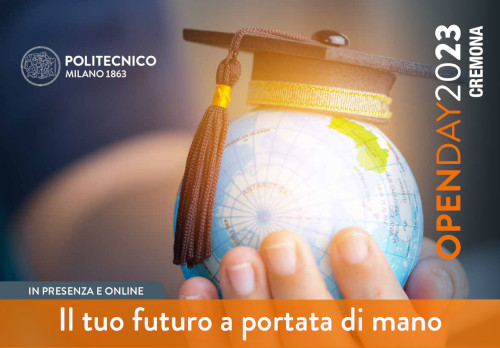
Partecipa all’Open
Day per scoprire le opportunità offerte dalla Laurea Magistrale in Agricultural
Engineering, unica in Italia, e per
conoscere meglio il Campus cremonese del Politecnico.
Questo Corso si propone di formare ingegneri operanti nel settore
agro-industriale e dotati di una visione sistemistica.
Consulta il programma.
Iscriviti agli appuntamenti attraverso il form specificando se
parteciperai in presenza o online.
Se parteciperai online riceverai per
email, il giorno prima dell’iniziativa, il link
per accedere all’evento.
Termine iscrizioni: martedì 18 aprile.
Per ulteriori
informazioni sull’Open Day consulta la pagina dedicata o invia una mail a orientamento-cremona@polimi.it
Ti
aspettiamo!
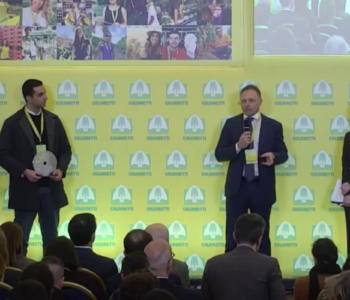 News & Events
News & Events
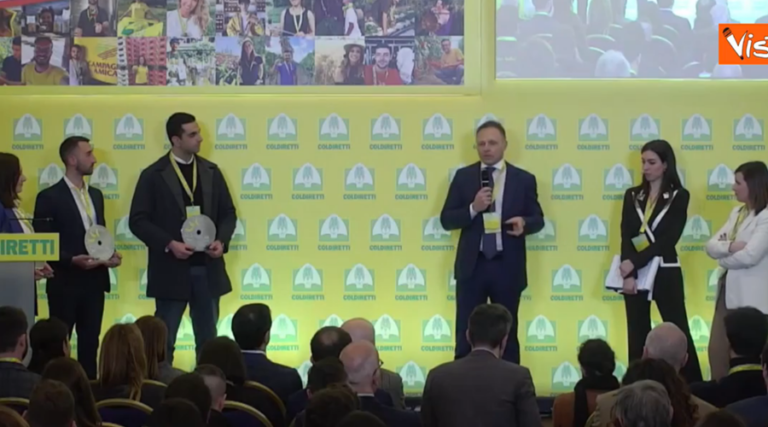
Secondo l’Osservatorio Smart Agrifood del Politecnico di Milano la superficie agricola coltivata con strumenti digitali è arrivata all’8% del totale
 News & Eventi
News & Eventi

Secondo l’Osservatorio Smart Agrifood del Politecnico di Milano la superficie agricola coltivata con strumenti digitali è arrivata all’8% del totale
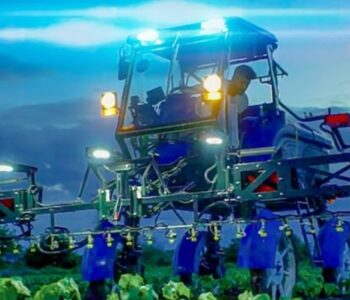 News & Events
News & Events
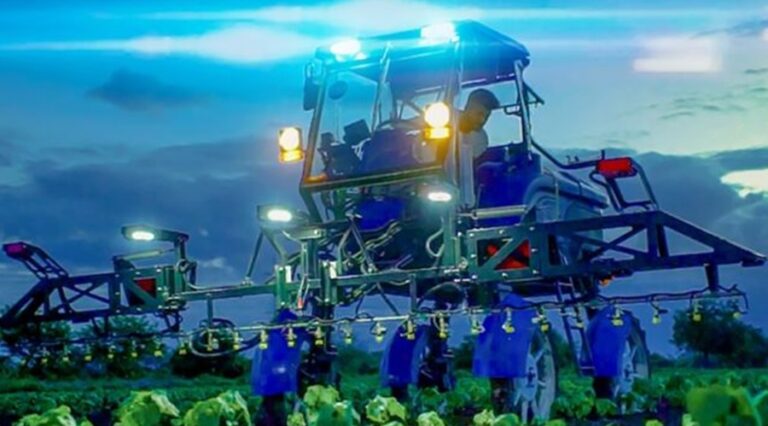
Niqo Robotics aims to disrupt traditional farming methods by pioneering an AI-powered robotics revolution in agriculture. Niqo intends to accomplish this by scientifically applying AI-powered robotics to all major farming activities such as sowing, spraying, and harvesting
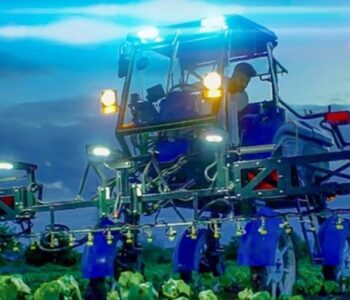 News & Eventi
News & Eventi

Niqo Robotics aims to disrupt traditional farming methods by pioneering an AI-powered robotics revolution in agriculture. Niqo intends to accomplish this by scientifically applying AI-powered robotics to all major farming activities such as sowing, spraying, and harvesting
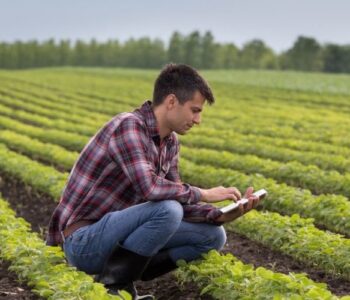 News & Events
News & Events
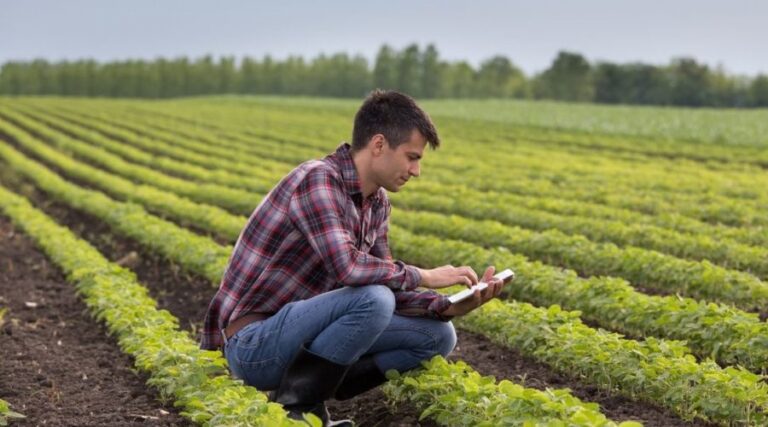
Bayer and Microsoft have formalized the partnership they announced just over a year ago to create a cloud-based set of data tools and data science solutions for the food and agriculture industry.
The announcement comes in the same week that cloud competitor AWS launched a partnership with data infrastructure startup Leaf.
 News & Eventi
News & Eventi

Bayer and Microsoft have formalized the partnership they announced just over a year ago to create a cloud-based set of data tools and data science solutions for the food and agriculture industry.
The announcement comes in the same week that cloud competitor AWS launched a partnership with data infrastructure startup Leaf.
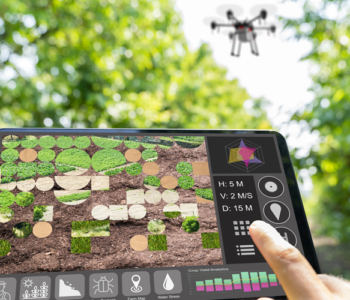 News & Events
News & Events
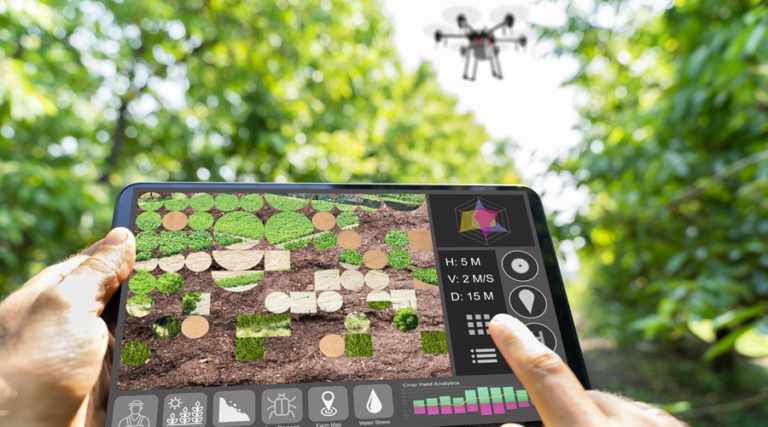
Agritech Academy: parte la prima edizione del percorso di alta formazione promosso dall’Università degli Studi di Napoli Federico II in collaborazione con le Imprese e i Centri di Ricerca del Centro Nazionale per le Tecnologie dell’Agricoltura (Agritech).
Agritech Academy è destinata a formare elevate professionalità per l’attuazione del potenziale rivoluzionario connesso alla trasformazione tecnologica e digitale del settore primario agricolo, in una ottica di sostenibilità ambientale, offrendo alle aziende competenze tecniche, gestionali e di consulenza.
È on line il bando per partecipare alle selezioni. Sono 40 i posti disponibili riservati a laureati triennali e magistrali in vari ambiti disciplinari. È possibile presentare le candidature fino al 13 marzo 2023. Il corso, in lingua italiana, avrà una durata di 7 mesi, l’impegno previsto è di 360 ore di cui 240 ore di lezioni frontali e 120 ore presso aziende coinvolte nell’Agritech Academy.
 News & Eventi
News & Eventi

Agritech Academy: parte la prima edizione del percorso di alta formazione promosso dall’Università degli Studi di Napoli Federico II in collaborazione con le Imprese e i Centri di Ricerca del Centro Nazionale per le Tecnologie dell’Agricoltura (Agritech).
Agritech Academy è destinata a formare elevate professionalità per l’attuazione del potenziale rivoluzionario connesso alla trasformazione tecnologica e digitale del settore primario agricolo, in una ottica di sostenibilità ambientale, offrendo alle aziende competenze tecniche, gestionali e di consulenza.
È on line il bando per partecipare alle selezioni. Sono 40 i posti disponibili riservati a laureati triennali e magistrali in vari ambiti disciplinari. È possibile presentare le candidature fino al 13 marzo 2023. Il corso, in lingua italiana, avrà una durata di 7 mesi, l’impegno previsto è di 360 ore di cui 240 ore di lezioni frontali e 120 ore presso aziende coinvolte nell’Agritech Academy.
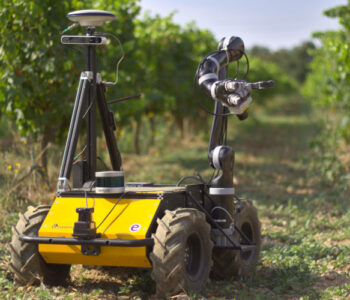 News & Events
News & Events
Dear Student,
on Tuesday, February 21st from 10:15am, in the first part of the lesson of the course “CONTROL SYSTEMS FOR SMART AGRICULTURE”, Prof. Luca Bascetta will present the Master’s Degree in Agricultural Engineering, giving useful information in particular for students enrolled in the 2nd semester.
The welcome meeting can be attended in presence in Cremona Campus, in the room where prof. Bascetta will hold the lesson or, exceptionally, via Webex in the virtual room of Prof. Bascetta, which can be accessed via the following link: https://politecnicomilano.webex.com/meet/luca.bascetta
The meeting will also be recorded and a few days after the lesson, the link to see the recording will be available together with the slides projected during the presentation, on the Master’s Degree website in the News & Events section at the following link https://www.ccsage.polimi.it/?lang=en
On the same day those students who participate in presence, will be able to freely collect “The Polimi Guide” conceived to offer itineraries, information, useful addresses, maps as well as suggestions, curiosities and anecdotes to make the most of the path here at Politecnico.
Those who are unable to participate in person can collect the guide from the following day at the Reception/Portineria (Building A) of Cremona Campus.
 News & Eventi
News & Eventi
Caro studente,
martedì 21 febbraio dalle ore 10:15, il Prof. Luca Bascetta, nella prima parte della sua lezione di CONTROL SYSTEMS FOR SMART AGRICUTURE, farà una presentazione del programma del Corso di Laurea Magistrale in Agricultural Engineering dedicata soprattutto agli studenti che si immatricolano in questo secondo semestre.
L’obiettivo è dare il benvenuto a tutti i nuovi studenti e fornire un primo aiuto per orientarsi al Politecnico.
Sarà possibile seguire l’incontro di accoglienza in presenza presso il Campus del Polo di Cremona nell’aula dove il Prof. Bascetta svolgerà la sua lezione o, eccezionalmente, tramite Webex nella sala virtuale del Prof. Bascetta, a cui si accede tramite il seguente link: https://politecnicomilano.webex.com/meet/luca.bascetta
L’incontro sarà, inoltre, registrato e il link per rivederlo sarà disponibile qualche giorno dopo la lezione, insieme alle slide proiettate durante la presentazione, sul sito del Corso di Laurea sotto la sezione News & Eventi al link: https://www.ccsage.polimi.it/
Lo stesso giorno chi parteciperà in presenza potrà ritirare la guida gratuita “The Polimi Guide” pensata per offrire itinerari, informazioni, indirizzi utili, mappe oltre che suggerimenti, curiosità e aneddoti per valorizzare al meglio il percorso qui al Politecnico.
Chi non riuscirà a partecipare in presenza potrà ritirare la guida dal giorno successivo presso la Portineria (palazzina A) del Campus di Cremona.
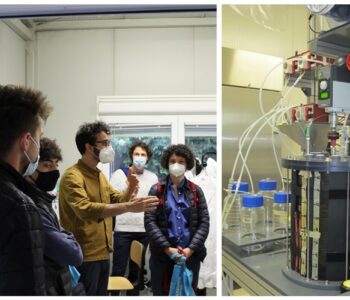 Innovative Didactics
Innovative Didactics
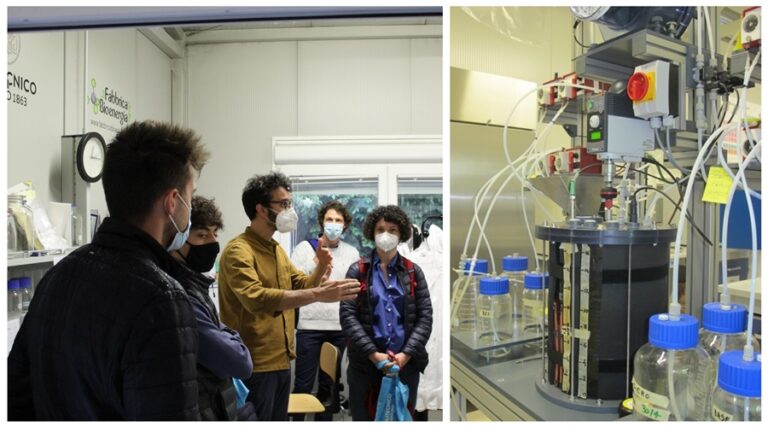
TITLE: Disclosing the hidden energy of biowaste – A laboratory for prototyping an anaerobic digester
DESCRIPTION: The initiative proposes a laboratory project work aimed at developing a small pilot for the production of biogas from biowastes, including the assembling a prototype equipped with all the relevant components as well as its operation, monitoring and control.
The aim of the initiative is to stimulate the collaborative work of the participants so that the various skills in Environmental Engineering, Process Engineering, Control Engineering and Information Technology involved in energy recovery technology are applied and integrated.
The teaching methodology is hinged on problem-based learning, having the prototyping as main operational tool. A multidisciplinary group of teachers guides the participants in the design and construction of:
The initiative is structured over a period of three months (from March to May 2023), alternating phases of work with all the participants and phases of group work. In the latter case, each working group is in charge of a specific task (designing, building and testing one of the components of the prototype).
Two feedback and sharing moments between the groups of students are planned to verify the meeting of the activity goals, as well as to allow the sharing of the progresses among participants.
The entire initiative takes place at the Cremona Campus in the “Alberto Rozzi” Laboratory.
TO WHOM IT IS ADDRESSED: To all students owning basic knowledge and applicative skills on the involved disciplines (Environmental Engineering, Process Engineering, Control Engineering and information technology)
WHEN IT IS SCHEDULED: second semester
ENROLLMENT PERIOD: 21/12/2022 – 20/2/2023 (h 12:00)
For further details and enrollment see the course syllabus.
 Didattica Innovativa
Didattica Innovativa

TITOLO: Estrarre l’energia nascosta dei rifiuti organici – Un laboratorio per la prototipazione di un digestore anaerobico
DESCRIZIONE: L’iniziativa propone un’attività progettuale di laboratorio finalizzata allo sviluppo di un piccolo pilota per la produzione di biogas a partire da rifiuti organici, comprensivo di tutte le componenti necessarie al processo nonché al suo monitoraggio e controllo.
Obiettivo dell’iniziativa è stimolare il lavoro collaborativo dei partecipanti affinché siano applicate e messe a sistema le diverse competenze proprie della Biochimica, dell’Ingegneria Ambientale, dell’Ingegneria di Processo, dell’Ingegneria dell’Informazione e dell’Ingegneria dell’Automazione coinvolte nella tecnologia di recupero di energia.
La metodologia didattica è incardinata sull’apprendimento basato sulla risoluzione di un problema, avente la prototipazione di una soluzione quale principale strumento operativo. Un gruppo multidisciplinare di docenti guida i partecipanti nella progettazione e nella realizzazione di:
L’iniziativa si articola su un periodo di tre mesi (da marzo a maggio 2023), alternando fasi di lavoro con tutti i partecipanti a fasi di lavoro di gruppo.
Nella fattispecie, a ciascun gruppo di lavoro è affidato il compito di progettare, costruire e testare una delle componenti del prototipo.
Sono previsti due momenti di restituzione tra i gruppi di studenti quali criteri di superamento dell’attività, oltre a costituire strumenti di condivisione reciproca tra i partecipanti degli avanzamenti compiuti nel corso dell’attività.
L’intera iniziativa ha luogo presso il Polo Territoriale di Cremona e il sistema è realizzato nel Laboratorio “Alberto Rozzi”.
A CHI SI RIVOLGE: A tutti gli studenti che hanno conoscenza di base e competenze applicative per le discipline coinvolte (Ingegneria Ambientale, Ingegneria di Processo, Ingegneria dell’Informazione, Ingegneria dell’Automazione)
PERIODO DI SVOLGIMENTO: secondo semestre
PERIODO DI ISCRIZIONE: 21/12/2022 – 20/02/2023 (ore 12:00)
Per ulteriori informazioni e per iscriversi consultare la scheda del corso.
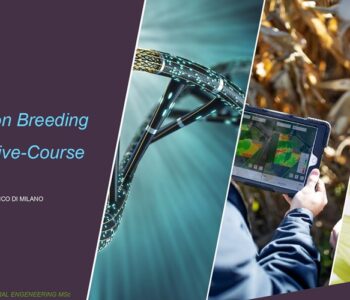 News & Events
News & Events
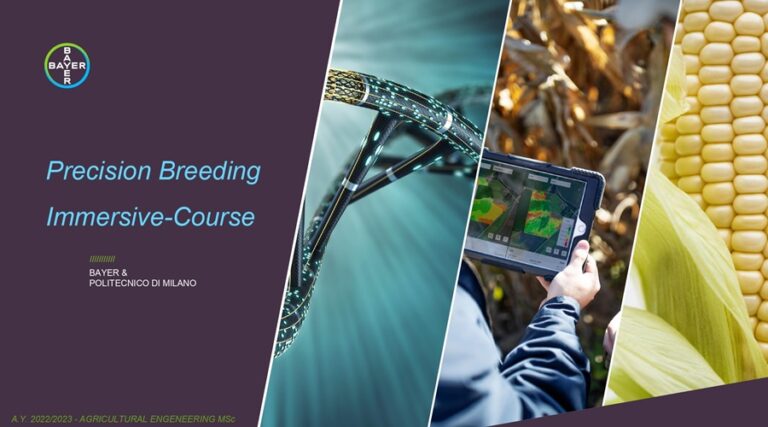
The Bayer Research Center in Olmeneta has organized a
Precision Breeding Immersive Course
Here you can find more details.
Participation in the course is strongly recommended.
With best regards
 News & Eventi
News & Eventi

Il Bayer Research Center di Olmeneta ha organizzato un
Precision Breeding Immersive Course
Qui è possible trovare maggiori dettagli.
La partecipazione al corso è fortemente raccomandata.
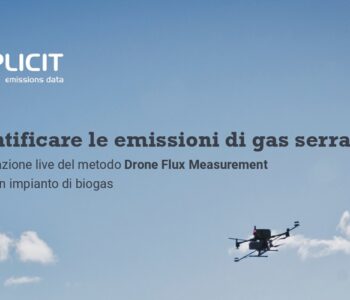 News & Events
News & Events
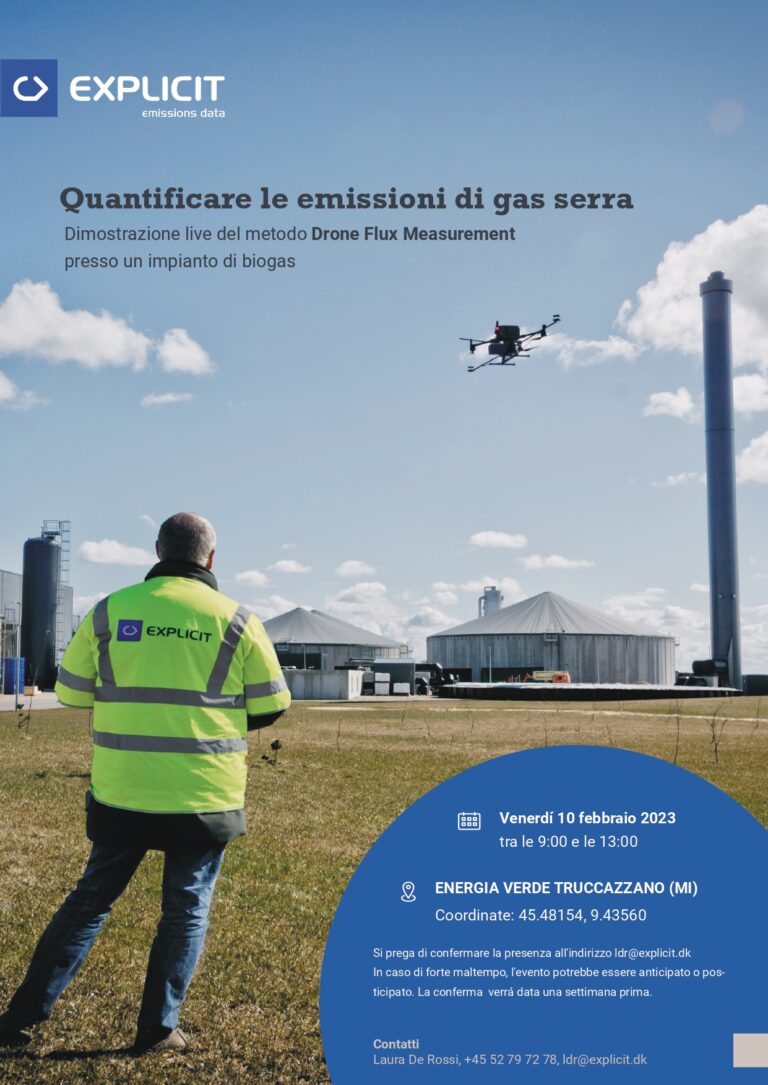
Consapevoli dell’importanza di monitorare le emissioni di gas serra, Explicit ha sviluppato un metodo basato sull’utilizzo di droni per misurare le perdite di GHGs da diversi fonti. Denominato come metodo Drone Flux Measurement (DFM), esso consente di quantificare le singole perdite di gas da impianti di produzione di biogas, di trattamento delle acque reflue, piattaforme petrolifere offshore e fonti simili.
 News & Eventi
News & Eventi

Consapevoli dell’importanza di monitorare le emissioni di gas serra, Explicit ha sviluppato un metodo basato sull’utilizzo di droni per misurare le perdite di GHGs da diversi fonti. Denominato come metodo Drone Flux Measurement (DFM), esso consente di quantificare le singole perdite di gas da impianti di produzione di biogas, di trattamento delle acque reflue, piattaforme petrolifere offshore e fonti simili.
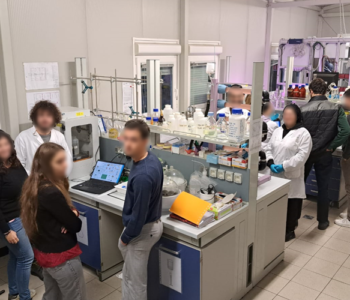 News & Events
News & Events
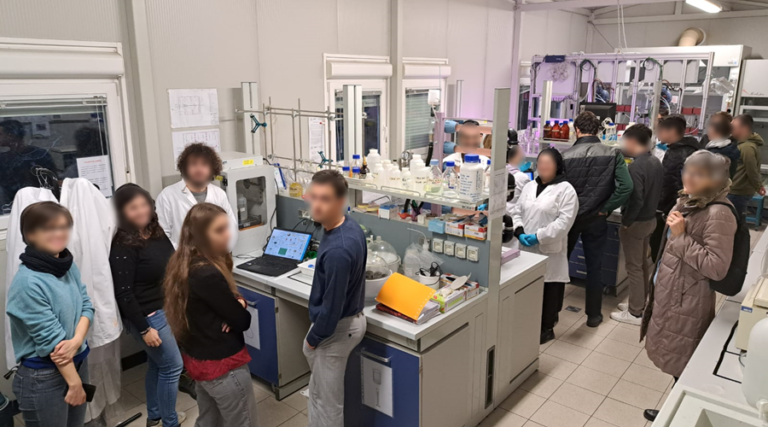
On Monday, December 19th 2022, the students of ‘Environmental engineering: methods, solutions and technologies for sustainable agriculture’ course visited the ‘Rozzi’ laboratory, where the researchers of Fabbrica della Bioenergia showed them the ongoing research activities. The visit was organized as a route, named ‘THE CIRCULAR FARM‘, in which different options for treating waste in the view of recovering resources and generating a circular structure within the farm were shown. With the aim of highlighting the great opportunities deriving from the sector waste, both more consolidated solutions, such as the recovery of energy or biomethane via anaerobic digestion, and emerging solutions, such as for example the recovery of bioplastics or biostimulants from phototrophic biomass, were presented. The interactive activities were managed by the young researchers of the group and took place in a sequence of five thematic stages, each dedicated to a resource recovery solution: (1) anaerobic co-digestion and biogas upgrade, (2) fermentation acidogenic for the production of volatile fatty acids, (3) nutrient recovery, (4) resource recovery with microalgae, (5) resource recovery with purple phototrophic bacteria.
 News & Eventi
News & Eventi

Lunedì 19 dicembre 2022 gli studenti dell’insegnamento ‘Environmental engineering: methods, solutions and technologies for sustainable agriculture’ hanno visitato il laboratorio ‘Rozzi’, dove i ricercatori di Fabbrica della Bioenergia hanno mostrato loro le attività in corso. Nella fattispecie, la visita è stata organizzata come un percorso, denominato ‘THE CIRCULAR FARM’, in cui sono state mostrate diverse opzioni per il trattamento degli scarti nell’ottica del recupero di risorse e della generazione di una struttura circolare all’interno dell’azienda agricola. Con la finalità di evidenziare le grandi opportunità derivanti dagli scarti del comparto, sono state presentate sia soluzioni più consolidate, come il recupero di energia o biometano attraverso la digestione anaerobica, che soluzioni emergenti, quali ad esempio il recupero di bioplastiche o biostimolanti da biomasse fototrofe. Le attività interattive sono state gestite dai giovani ricercatori del gruppo e si sono svolte in una sequenza di cinque stazioni tematiche, ciascuna dedicata a una soluzione per il recupero di risorse: (1) co-digestione anaerobica e upgrade del biogas, (2) fermentazione acidogenica per la produzione di acidi grassi volatili, (3) recupero di nutrienti, (4) recupero di risorse con microalghe, (5) recupero di risorse con batteri purpurei fototrofi.
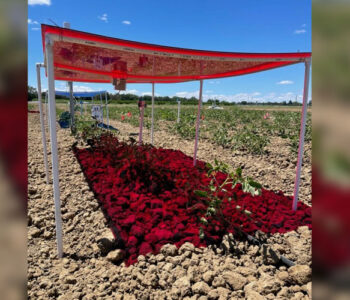 News & Events
News & Events
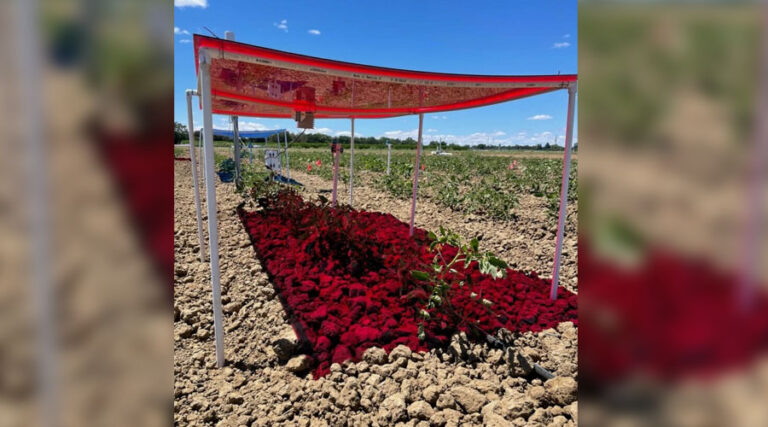
Researchers harness sunlight to harvest energy and food together, utilizing the full spectrum of light to improve outputs.
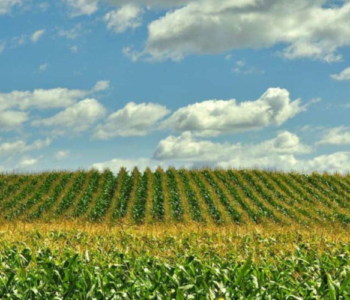 P22/23-ENG
P22/23-ENG
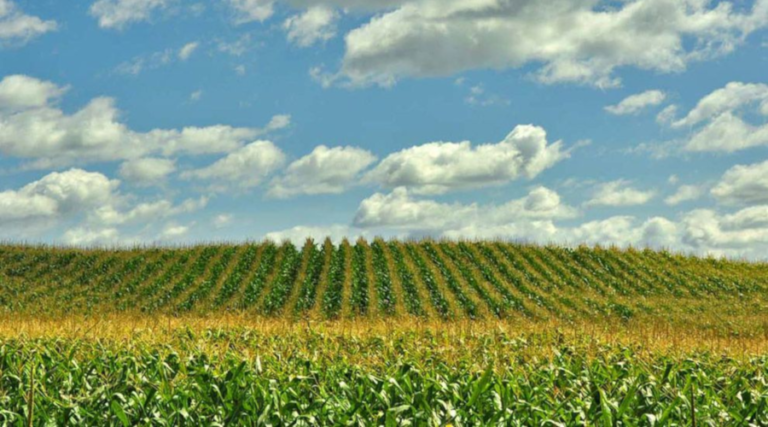
The renewable energy potential in the agricultural sector, at farm-level, is not yet fully exploited and opportunities are foreseen to develop interesting solutions in this area.
The thesis will analyze the feasibility of developing renewable energy technologies in the context of farms. Best practices and the most advanced renewable-based farm configurations will be reviewed at the EU level. Different case studies (in terms of farm scale, type and location) will be investigated at the Italian level (possibility to collaborate with a real farm to be verified). Energy storage solutions for reducing the effect of non-dispatchability of renewable sources, while increasing the self-use of electricity and heat at the farm scale, will be considered. Moreover, the efficient use of energy resources and the application of new energy technologies and digital tools will be studied.
Reference teacher: Prof. Manuele Gatti – manuele.gatti@polimi.it
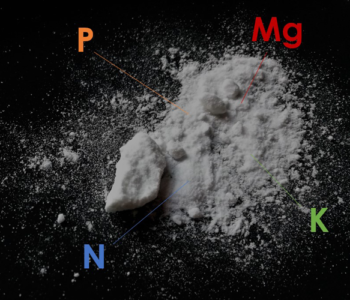 P22/23
P22/23
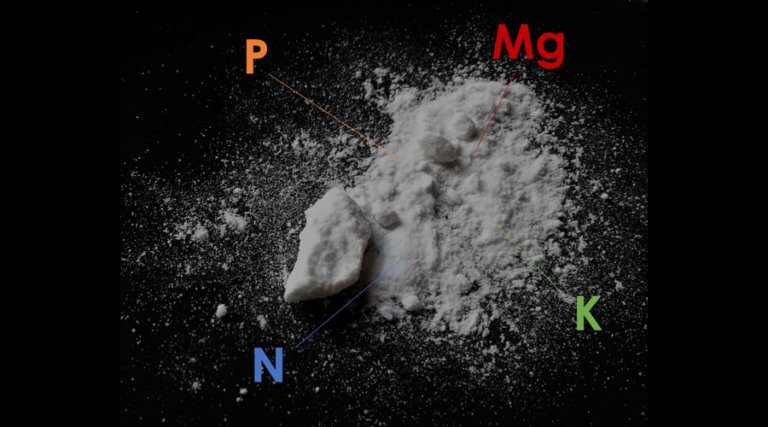
La crescita della popolazione, il cambiamento dell’alimentazione e dello stile di vita, l’agricoltura moderna e l’allevamento intensivo di bestiame sono i principali fattori responsabili dell’aumento della produzione alimentare osservato negli ultimi 50 anni, che ha raggiunto circa 24 milioni di tonnellate di cibo al giorno in tutto il mondo. L’uso eccessivo associato di fertilizzanti chimici nel settore agricolo provoca elevati impatti ambientali, come l’eutrofizzazione e le emissioni di gas serra, insieme allo sfruttamento del suolo, dell’acqua e delle risorse naturali. Inoltre, come risultato delle attività agricole, viene generata un’enorme quantità di rifiuti, con letame di bestiame come contributo principale.
Pertanto, sono necessarie soluzioni sostenibili innovative per ridurre la pressione sulle risorse limitate, per diminuire la quantità di input chimici in agricoltura e per promuovere una gestione più responsabile dei rifiuti. Nell’ottica dell’economia circolare, il riutilizzo e la valorizzazione dei rifiuti agricoli sono di fondamentale importanza per favorire la produzione di fertilizzanti a base biologica. Inoltre, le tecnologie di trattamento dei rifiuti, come la digestione anaerobica e la carbonizzazione idrotermale, rappresentano una soluzione per stimolare il recupero di materia ed energia.
I nutrienti, come fosforo, azoto e potassio, possono essere recuperati dal letame per produrre ingredienti fertilizzanti di alta qualità, come struvite e K-struvite. Lo scopo della tesi è quello di studiare diverse strategie per il recupero dei nutrienti da tale fonte secondaria. Le attività sperimentali saranno svolte su scala di laboratorio, al fine di sviluppare tecnologie innovative da scalare nell’ambiente pertinente, in collaborazione con le parti interessate industriali. Una possibile via di recupero riguarderà il recupero di azoto e fosforo dalla frazione liquida del digestato mediante precipitazione selettiva, scambio ionico o altre tecniche di separazione/purificazione. Il recupero sarà ottimizzato per massimizzare l’efficienza di recupero dei nutrienti e le caratteristiche dei prodotti recuperati, riducendo al minimo l’aggiunta di prodotti chimici e l’uso di energia, per garantire la fattibilità tecnico-economica della soluzione e la sostenibilità ambientale.
Docente di riferimento: Dott. Andrea Turolla – andrea.turolla@polimi.it
 P22/23-ENG
P22/23-ENG

Population growth, changing in diet and lifestyle, modern agriculture and intensive livestock farming are the main drivers responsible for the increase in food production observed in the last 50 years, which reached approximately 24 million tons of food per day worldwide. The associated excessive use of chemical fertilizers in the agricultural sector causes high environmental impacts, such as eutrophication and greenhouse gas emissions, along with the exploitation of soil, water and natural resources. Furthermore, as a results of the agricultural activities, huge amount of waste is generated, with livestock manure as main contributor.
Thus, innovative sustainable solutions are required to reduce the pressure on finite resources, to decrease the amount of chemical input in agriculture, and to promote a more responsible management of waste. In the view of circular economy, re-use and valorisation of agricultural waste are of paramount importance to foster the production of bio-based fertilisers. In addition, waste treatment technologies, such as anaerobic digestion and hydrothermal carbonization, represent a solution to stimulate material and energy recovery.
Nutrients, such as phosphorus, nitrogen and potassium, can be recovered from livestock manure to produce high-quality fertilizer ingredients, as struvite and K-struvite. The purpose of the M.Sc. thesis is to investigate different strategies for nutrient recovery from such secondary source. Experimental activities will be performed at the lab-scale in the view of developing innovative technologies to scale-up in relevant environment in cooperation with industrial stakeholders. A possible recovery route will concern the recovery of nitrogen and phosphorus from the liquid fraction of digestate via selective precipitation, ion exchange or other separation/purification techniques. The recovery will be optimized to maximize the nutrients recovery efficiency and recovered products characteristics, while minimizing the addition of chemicals and the use of energy, to guarantee solution techno-economic feasibility and environmental sustainability.
Reference teacher: Dr. Andrea Turolla – andrea.turolla@polimi.it
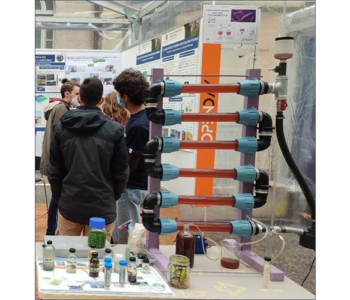 P22/23-ENG
P22/23-ENG
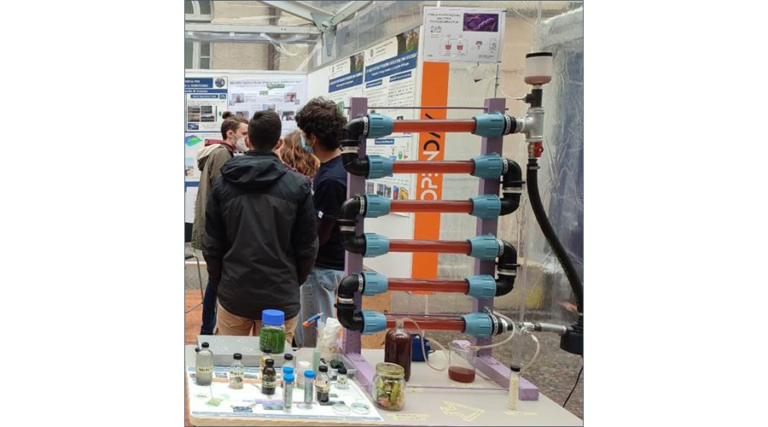
Among different waste streams, agri-food biowaste has become increasingly more relevant due to the significant environmental consequences resulting from improper treatment and disposal. Resource recovery from such biowaste streams, turning waste into valuable resources (such as bioplastics, biofuels, single cell proteins and biostimulants), can represent a promising solution to reduce environmental impacts related to waste disposal and natural resource consumption.
The innovative application of purple phototrophic bacteria (PPB) for resource recovery from various biowaste streams, particularly as microbial mixed culture grown via photoheterotrophic metabolism, is drawing considerable attention. In fact, by using solar light as energy source, PPB can simultaneously assimilate carbon and nutrients at high efficiencies, while maximizing the recovery of resources.
As the use of PPB for high-rate biowaste stream treatment and resource recovery is still in its early stages, the primary goals of this project are (i) to improve the understanding of mechanisms of PPB growth on agri-food biowaste through a combined experimental and modelling approach, and (ii) to investigate the integration of resource recovery by PPB in existing plant layouts, in the view of enhancing process performance and promoting sustainable scale-up. To this end, lab-scale reactors for PPB cultivation will be designed and operated to identify the optimal operating conditions. Moreover, resource recovery will be evaluated, possibly looking at biopolymer accumulation in biomass and protein production. Finally, based on the experimental and modelling results, a pilot-scale optimized photobioreactor will be designed and developed.
Reference teacher: Dr. Andrea Turolla – andrea.turolla@polimi.it
 P22/23
P22/23

Tra i diversi flussi di rifiuti, i rifiuti organici agroalimentari sono diventati sempre più rilevanti a causa delle significative conseguenze ambientali derivanti da un trattamento e uno smaltimento impropri. Il recupero delle risorse da tali flussi di rifiuti organici, trasformando i rifiuti in risorse preziose (come bioplastiche, biocarburanti, proteine unicellulari e biostimolanti), può rappresentare una soluzione promettente per ridurre gli impatti ambientali legati allo smaltimento dei rifiuti e al consumo di risorse naturali.
L’applicazione innovativa dei batteri fototrofici viola (PPB) per il recupero delle risorse da vari flussi di rifiuti organici, in particolare come coltura mista microbica cresciuta attraverso il metabolismo fotoeterotrofico, sta attirando una notevole attenzione. Infatti, utilizzando la luce solare come fonte di energia, il PPB è in grado di assimilare contemporaneamente carbonio e nutrienti ad alta efficienza, massimizzando al contempo il recupero delle risorse.
Poiché l’uso del PPB per il trattamento dei flussi di rifiuti organici ad alto tasso e il recupero delle risorse è ancora nelle sue fasi iniziali, gli obiettivi primari di questo progetto sono (i) migliorare la comprensione dei meccanismi di crescita del PPB sui rifiuti organici agroalimentari attraverso una sperimentazione combinata e approccio di modellazione, e (ii) studiare l’integrazione del recupero delle risorse da parte del PPB nei layout degli impianti esistenti, al fine di migliorare le prestazioni del processo e promuovere uno scale-up sostenibile. A tal fine, saranno progettati e gestiti reattori su scala di laboratorio per la coltivazione di PPB per identificare le condizioni operative ottimali. Inoltre, verrà valutato il recupero delle risorse, possibilmente guardando all’accumulo di biopolimeri nella biomassa e nella produzione di proteine. Infine, sulla base dei risultati sperimentali e modellistici, sarà progettato e sviluppato un fotobioreattore ottimizzato su scala pilota.
Docente di riferimento: Dott. Andrea Turolla – andrea.turolla@polimi.it
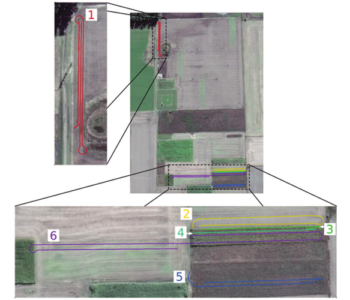 P22/23
P22/23
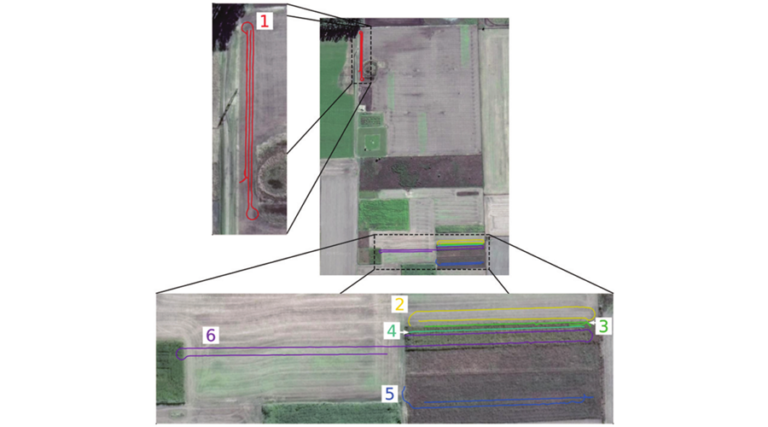
Localizzazione e mapping sono due parti fondamentali del sistema di navigazione di un robot autonomo. Il mapping è la procedura che permette al robot di costruire una mappa dell’ambiente, utilizzando tutti i sensori disponibili. La localizzazione, invece, è la procedura che permette ad un robot di determinare la propria posizione ed il proprio orientamento rispetto ad un sistema di riferimento fisso, utilizzando i sensori disponibili e la mappa dell’ambiente.
Queste due procedure, che in generale non sono semplici da eseguire, sono particolarmente complesse nel caso di navigazione in ambiente agricolo, poichè esso è caratterizzato da condizioni di luminosità difficili variabilità stagionale, e, in generale, dalla complessità che caratterizza l’ambiente naturale.
Questa tesi si propone di implementare e confrontare le prestazioni di differenti algorithmi di localizzazione e mapping, o di algoritmi che permettono di eseguire simultaneamente localizzazione e mapping, utilizzando alcuni dataset specifici per robotica agricola.
Questo lavoro è adatto per studenti provenienti da un percorso ingegneristico e con esperienza nell’utilizzo del linguaggio C, C++ o Python. Un gruppo formato da due studenti, uno proveniente da un percorso ingegneristico e uno da un percorso non ingegneristico, rappresenta la miglior soluzione.
Docente di riferimento: Prof. Luca Bascetta – luca.bascetta@polimi.it
 P22/23-ENG
P22/23-ENG

Localization and mapping are two fundamental parts of the navigation system of an autonomous robot. Mapping is the procedure that allows the robot, using the available sensors, to generate a map of the environment. Localization, instead, is the procedure that allows the robot, using its sensors and a map of the environment, to determine its position and orientation with respect to a fixed reference frame.
These two tasks, that are always not easy, are particularly complex when an outdoor agricultural scenario is considered, due to the light conditions, the seasonal variability, and the overall complexity of the natural environment.
This thesis aims at setting up and comparing the performance of different localization and mapping algorithms, or of simultaneous localization and mapping algorithms on some realistic agricultural datasets.
This work is more suitable for students with an engineering background and with a previous experience in coding using C, C++ or Python. A group of two students, one with an engineering background and one with a non engineering background would be the best choice.
Reference teacher: Prof. Luca Bascetta – luca.bascetta@polimi.it
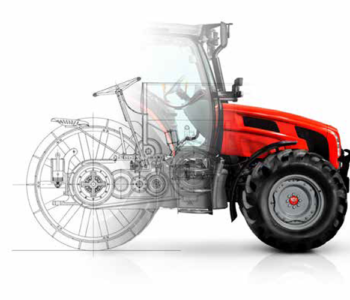 News & Eventi
News & Eventi
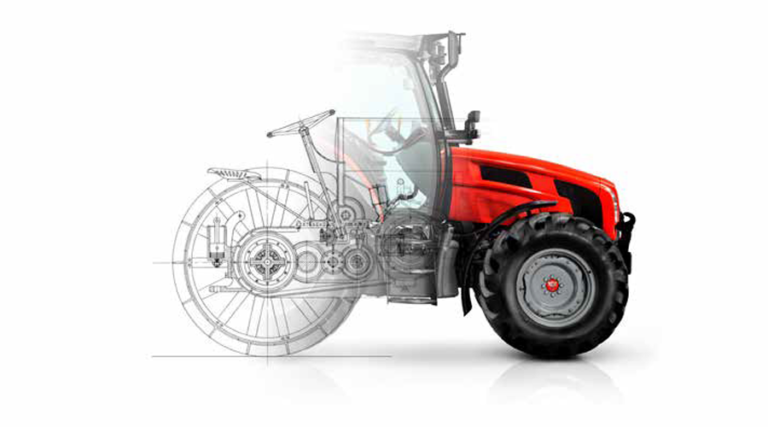
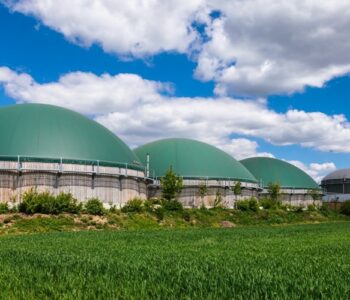 P22/23-ENG
P22/23-ENG
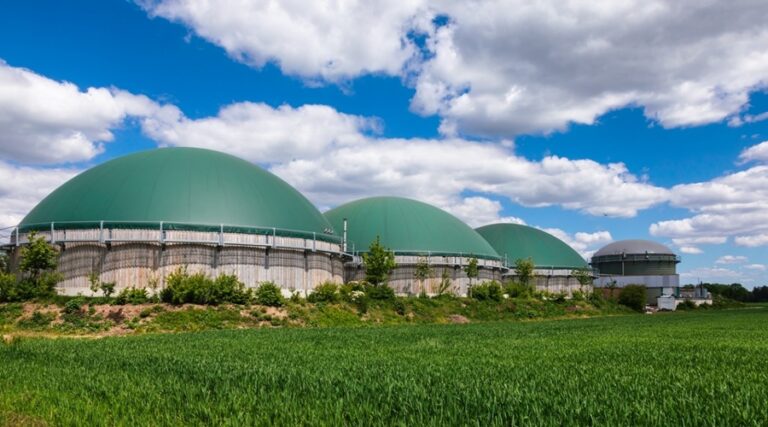
The Biochemical Methane Potential (BMP) test is an essential tool to derive practical knowledge for optimizing and operating full-scale anaerobic digesters, monitoring, modelling, and evaluating process performances, or when a scenario analysis is being developed. Despite its usefulness is undoubted, long duration of BMP tests is problematic for many of its applications, especially when prompt results to take decisions are required. Over the last decades, several scientific contributions demonstrated that a reduction of BMP test duration is possible by predicting the final gas production. The purpose of this thesis work is the development of a new procedure/algorithm to obtain a preliminary estimation of the experimental BMP result by using a linear fractional transformation (LFT) formulation of the original nonlinear model for the identification of its parameters. The efficacy and the efficiency of the algorithm developed will be verified using experimental data of BMP tests performed on different substrates commonly fed to anaerobic digesters.
Reference teachers: Prof. Gianni Ferretti and Arianna Catenacci – gianni.ferretti@polimi.it – arianna.catenacci@polimi.it
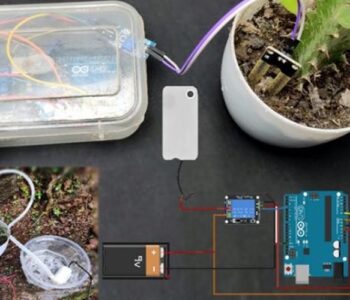 P22/23-ENG
P22/23-ENG
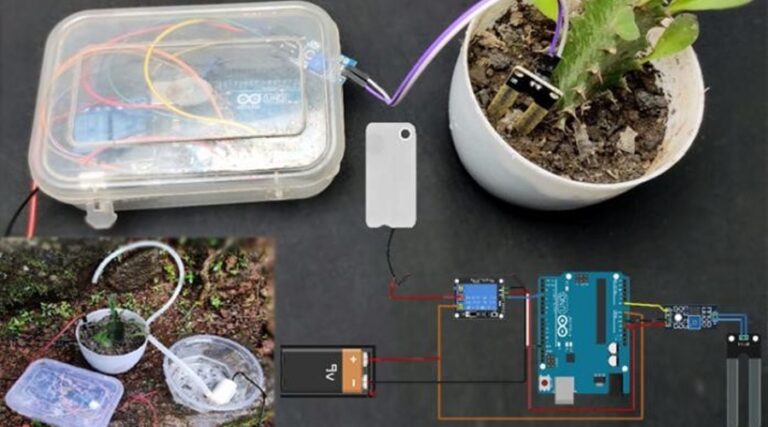
This thesis aims at setting up simple experimental devices and experimental activities on logic and modulated control applied to agricultural automation, to support the labs of the course Control Systems for Smart Agriculture.
An example can be a simple automatic irrigation system, including one or more tanks with level control, one or more pumps with flow control, a moisture sensor, etc.
The work includes the set up of the experimental device and of an experimentally validated simulator, the design of the control system, its implementation on an Arduino board, and its validation in simulation and with suitable experiments.
This work is suitable for students with an engineering or non engineering background, and for a single student or for a group of two students.
Reference teacher: Prof. Luca Bascetta – luca.bascetta@polimi.it
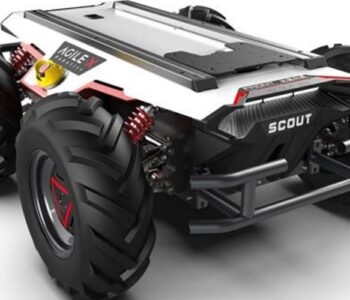 P22/23-ENG
P22/23-ENG
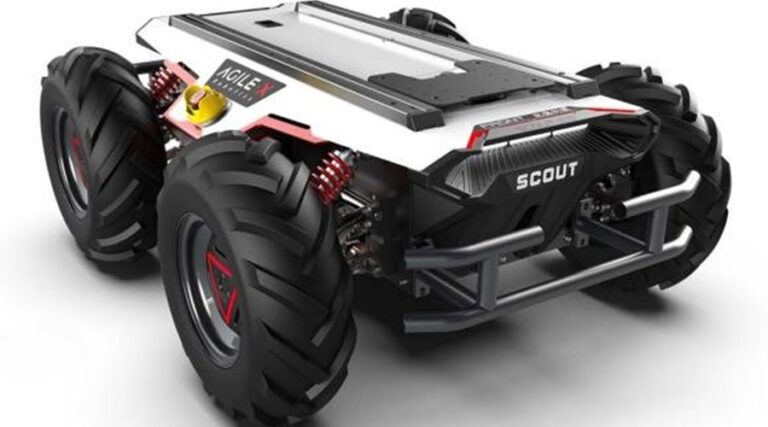
Every time you have to design a control system, you have to first set up a model of the plant, that allows to study its properties, design the controller, and perform a preliminary validation, in simulation, of the control system.
In the case of agricultural robots/machines, the model can be used to test different mechanical designs, as well.
This thesis aims at developing the model of an Agilex robot, suitable for off-road tasks, including the models of terrains with different mechanical characteristics, using Modelica language.
The simulator is then validated comparing the behaviour of the simulated robot with the behaviour of a real platform.
This work is suitable for students with an engineering or non engineering background, and for a single student or for a group of two students.
Reference teacher: Prof. Luca Bascetta – luca.bascetta@polimi.it
 P22/23
P22/23

Questa tesi si propone di realizzare semplici dispositivi sperimentali ed attività sperimentali da effettuare con tali dispositivi, relativi all’applicazione di tecniche di controllo logico e modulante applicate a sistemi di automazione in agricoltura, per supportare i laboratori del corso Control Systems for Smart Agriculture.
Un esempio di questi dispositivi è rappresentato da un sistema di irrigazione automatica, composto da uno o più serbatoi con controllo di livello, una o più pompe con controllo di portata, un sensore di umidità, etc.
Il lavoro comprende la realizzazione del dispositivo sperimentale e di un modello validato sperimentalmente, il progetto del sistema di controllo, la sua implementazione su Arduino, e la sua validazione in simulazione e sperimentale.
Questo lavoro è adatto sia per studenti provenienti da un percorso ingegneristico che non ingegneristico, e può essere affrontato sia da un singolo studente che da un gruppo di due studenti.
Docente di riferimento: Prof. Luca Bascetta – luca.bascetta@polimi.it
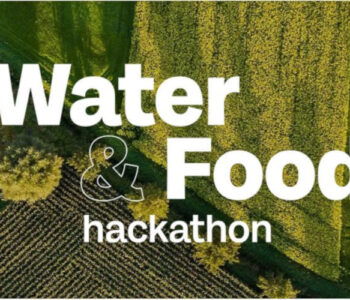 News & Events
News & Events
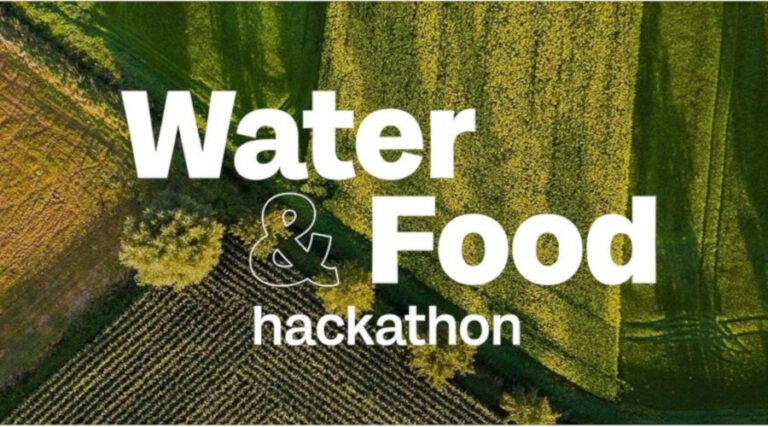
L’associazione no-profit DiverCity, con la partecipazione del Consorzio di Bonifica di Piacenza, organizza un evento di due giorni all’insegna della sensibilizzazione e dell’attivismo nell’ambito della valorizzazione del ciclo dell’acqua, della sua trasformazione e della riduzione degli sprechi di cibo in contesto agricolo. La proposta nasce nel contesto del Bando Sfide Ambientali, promosso dalla Fondazione ACRA e dalla Regione Emilia-Romagna.
Il 17-18 settembre, presso il polo di innovazione e creatività Urban Hub di Piacenza, Via Giulio Alberoni n.2, interverranno relatori del mondo accademico, startup e aziende che si dedicano con le proprie attività alla riduzione degli sprechi alimentari e all’ottimizzazione delle risorse idriche.
Urban Hub Piacenza ospita nei suoi spazi il “Water and Food” Hackathon nel ruolo di incubatore di startup innovative del territorio di Piacenza, supportando l’evento dalla fase di definizione dei temi di discussione, al coinvolgimento di relatori e della community di startup del territorio, alla selezione e votazione delle idee più innovative in quanto membro della giuria, e infine offrendo in premio un percorso di incubazione di 3 mesi per la validazione dell’idea (attraverso il PoC Proof of Concept) e il supporto alla costituzione della Startup per un valore di € 2.000.
Ecco in dettaglio i protagonisti del ciclo di conferenze:
Tra le aziende e le associazioni che interverranno invece: Recup, Hexagro, Prime Foglioline, Birrificio Otus, i-Pergola, NDG Group, Enismaro, Small Giants, Windcity.
I suddetti interventi permetteranno di approfondire le tematiche dell’hackathon e forniranno le conoscenze necessarie ai partecipanti, cinquanta studenti universitari, per la call for ideas che si terrà per tutta la domenica.
Durante questa fase, i partecipanti lavoreranno in gruppi, allo scopo di ideare e sviluppare un progetto inerente agli argomenti trattati nelle conferenze. Quest’attività in squadre ha un risvolto prettamente pratico e annovera tra i suoi obiettivi:
Il tutto si concluderà con una restituzione pubblica dei progetti al cospetto della giuria di relatori. DiverCity renderà disponibili online sul sito www.divercityeu.com i risultati del lavoro in gruppo, affinché possano essere consultati liberamente.
La partecipazione all’iniziativa è gratuita.
ISCRIZIONE: https://www.divercityeu.com/waterfoodhackathon
Nota: è possibile iscriversi singolarmente oppure già come gruppo costituito compilando un form per ciascun partecipante del gruppo. Qualora venga effettuata un’iscrizione singola il team di organizzatori smisterà i partecipanti in gruppi per la seconda giornata.
 News & Events
News & Events

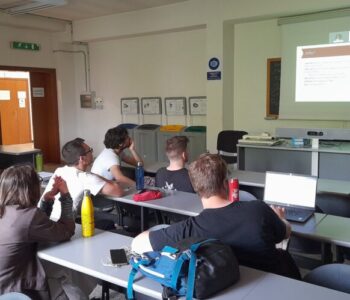 News & Events
News & Events
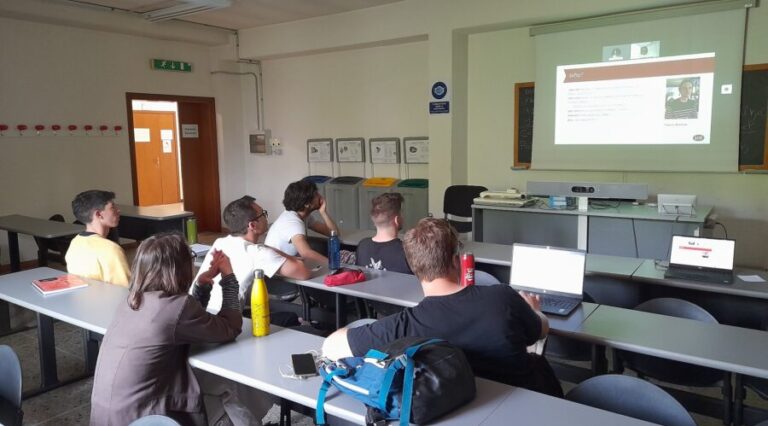
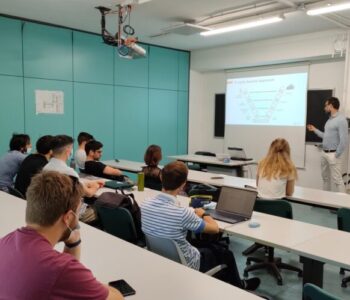 News & Events
News & Events
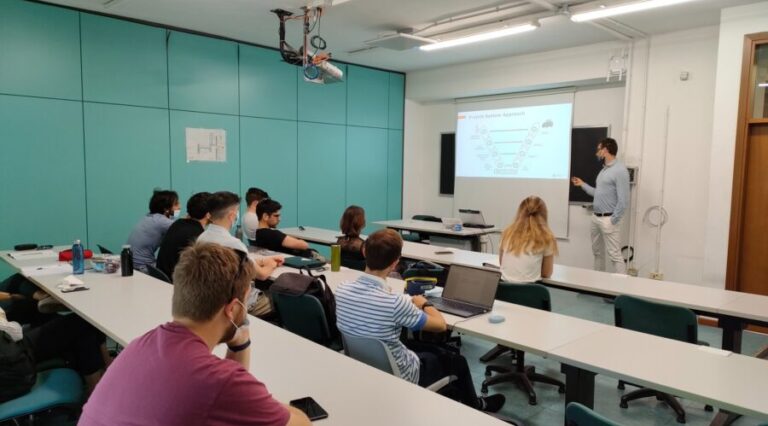
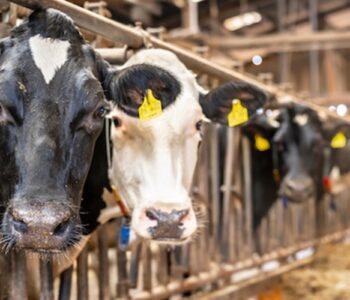 Ricerca
Ricerca
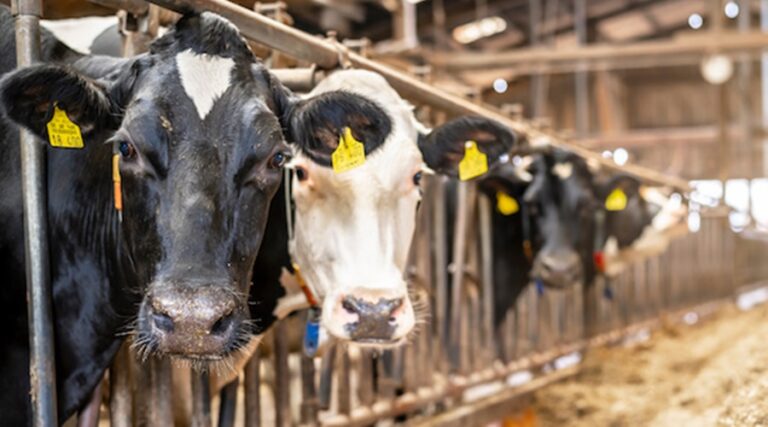
Al via il progetto di FrieslandCampina, Rabobank e Lely finalizzato all’installazione nelle stalle olandesi di Lely Spheres, una macchina in grado di ridurre le emissioni di azoto fino al 70% nella stalla di un’azienda di bovine da latte.
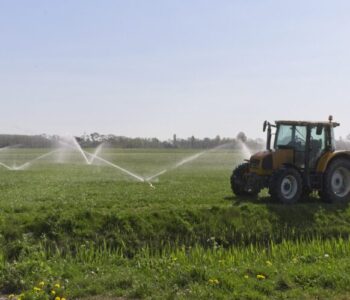 Ricerca
Ricerca
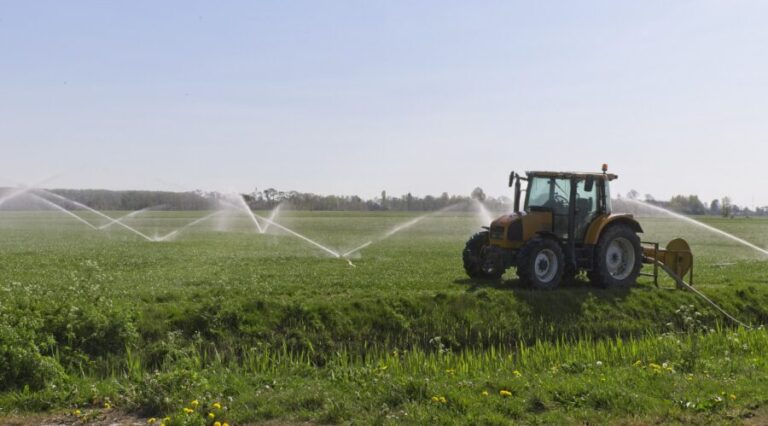
La Regione Basilicata ha finanziato con 260 mila euro TRAS.IRRI.MA, il progetto condotto da Asso Fruit Italia in collaborazione con 11 partner, tra cui ENEA, con l’obiettivo di implementare pratiche di irrigazione sostenibile nelle PMI attraverso il digitale. Il focus è sui sistemi smart di irrigazione come i sensori hi-tech per il controllo da remoto dell’umidità del terreno, capaci di dialogare con l’agricoltore attraverso un’app che elabora i dati in tempo reale. Le aziende agricole coinvolte dichiarano di aver ridotto i consumi di acqua del 23%.
 P22/23-ENG
P22/23-ENG

To design a control system, it is first necessary to develop the model of the system to be controlled. This model is useful for studying the system’s properties, designing the controller, and performing a preliminary validation of the control system through simulation.
In the case of robots and agricultural machines, the model can also be used to verify the results of different approaches to the mechanical design of the system. To achieve this and validate the control system in a realistic context, an accurate soil model is also required.
This thesis aims to extend the model of an Agilex tracked robot, developed in a previous thesis, by including an accurate soil model. The model will then be experimentally validated by comparing the behavior of the simulated robot with that of a real platform.
This work is suitable for students from both engineering and non-engineering backgrounds and can be undertaken by either a single student or a group of two students.
Faculty advisor: Prof. Gianni Ferretti – gianni.ferretti@polimi.it
 News & Events
News & Events
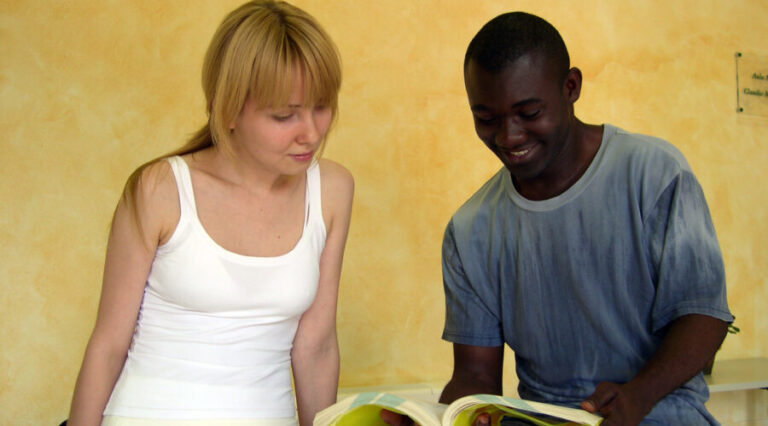
Are you planning your academic future and would like to hear first hand experiences?
Politecnico di Milano now offers the opportunity to #ASKASTUDENT all your questions.
We have a team of students ambassadors who are ready to talk to you in live one-to-one meetings. They will share with you their thoughts about the postgraduate programme they are attending, their student’s experience, life on campus, the city where they study and more.
How it works:
• Select the study area of your interest
• Choose the programme(s) you would like to know more about or the person you would like to talk to
• Book your slot and save the date!
For more information visit the ASKASTUDENT page (https://www.polimi.it/en/international-prospective-students/askastudent/)
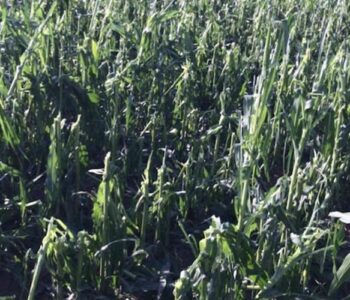 Ricerca
Ricerca
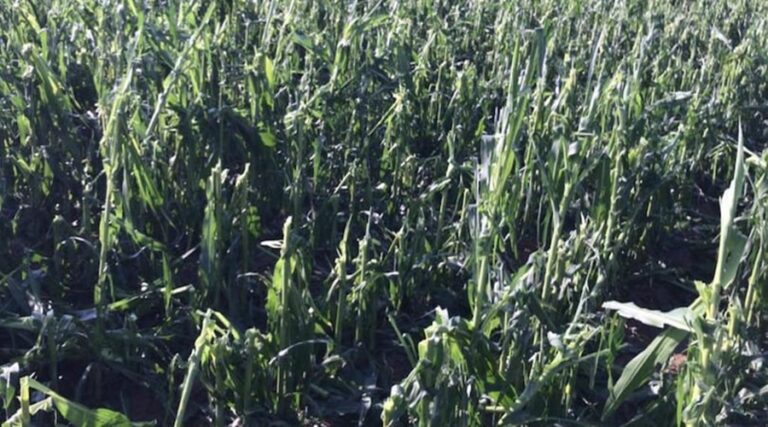
Cai-Consorzi Agrari d’Italia ha realizzato un report in collaborazione con Ibf Servizi, in cui vengono esplorate le differenze tra i campi irrigati con metodo tradizionale e quelli che già utilizzano soluzioni di Agricoltura 4.0: dai dati emerge che grazie al digitale è possibile un risparmio idrico fino al 20%. Oltre al beneficio ambientale, questo risparmio comporta anche una riduzione dei costi per le aziende agricole tra acqua risparmiata e quantità ridotte di gasolio utilizzato per il pompaggio.
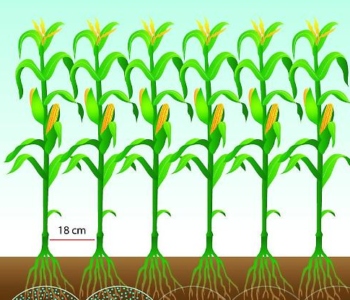 Ricerca
Ricerca
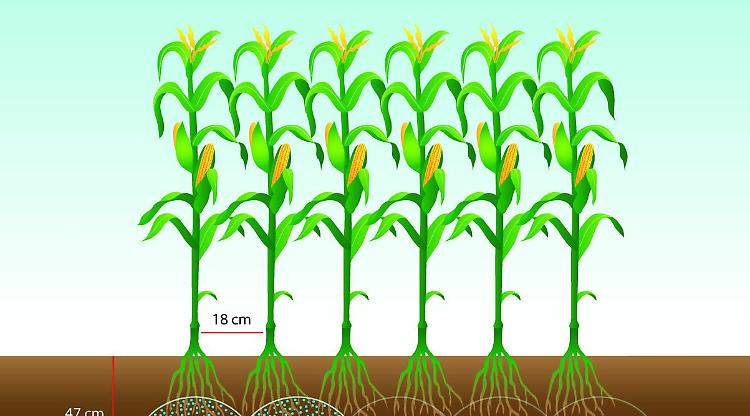
Il Politecnico di Milano e l’Università Cattolica (sedi di Cremona e Piacenza), insieme all’azienda della trasformazione Martino Rossi, hanno sviluppato un sistema di sub-irrigazione di precisione in grado di ridurre siano al 60% i consumi idrici e del 25% quelli di fertilizzati. Underdrip, questo il nome del progetto, sfrutta la microporosità del suolo e prevede l’interramento delle manichette su file parallele a una profondità tra i 35 e i 50 cm, con memorizzazione Gps della posizione dell’impianto.
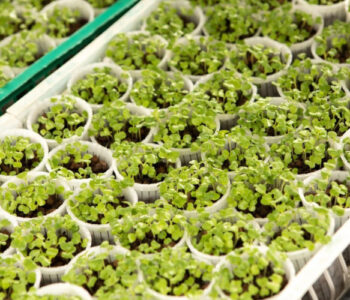 Ricerca
Ricerca
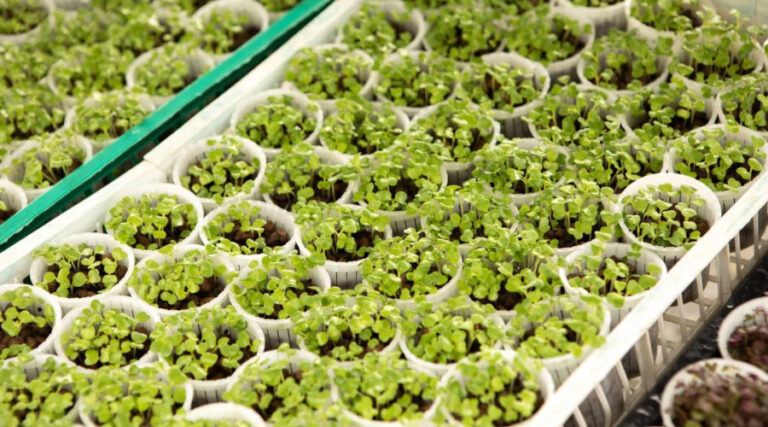
Secondo l’Ufficio Studi, statistica e programmazione della Camera di Commercio di Milano, Monza, Brianza e Lodi, nel 2021 sono state quasi 1.500 le imprese del settore agroalimentare guidate da giovani (dato in crescita rispetto agli scorsi anni). L’articolo riporta una selezione di alcune startup innovative del settore.
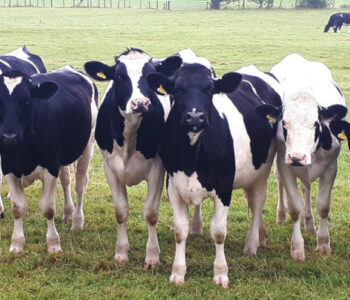 Ricerca
Ricerca
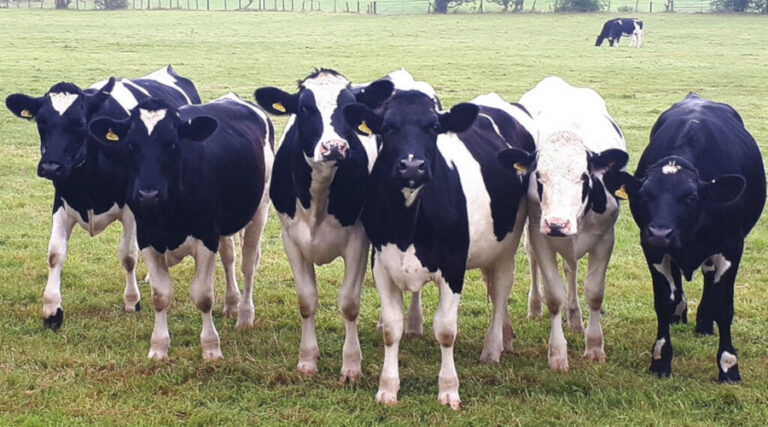
At COP26 this month, 105 countries including the US, Canada and Brazil promised to reduce their methane gas emissions by at least 30% within eight years. Methane traps eighty-four times more heat than carbon dioxide. The IPCC says that whilst being a short lived gas (12 years) and existing in small atmospheric quantities of only 2 parts per million, a cut in methane emissions has the greatest potential to slow climate warming over the next two decades. Agriculture contributes to 40-45% of these global methane emissions, largely arising from cattle and dairy farming.
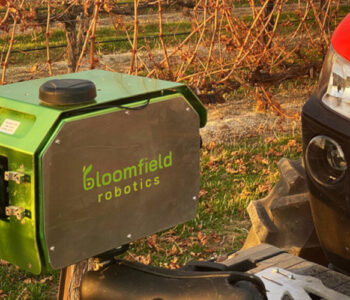 Ricerca
Ricerca
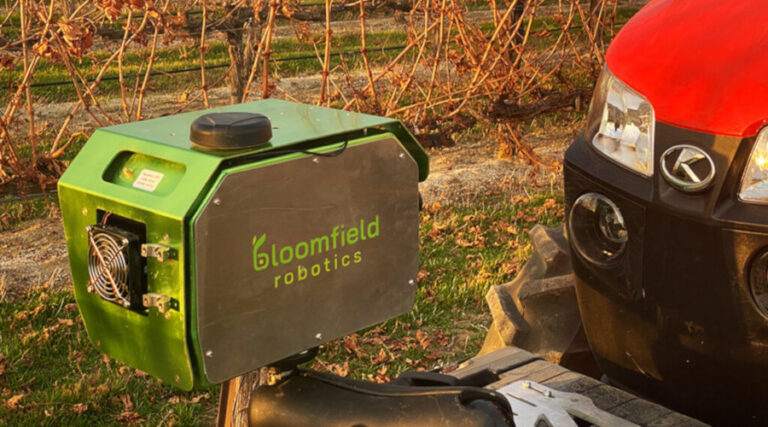
Japanese technology firm Kubota has invested in US start-up Bloomfield Robotics, Inc. a company that uses image analysis technology and artificial intelligence (AI) to assess plant growth and detect pests on grape vines, blueberries, and other orchard crops. Bloomfield’s cameras are mounted on farm vehicles to rapidly collect high-res images of individual plants as they are passed. Images are assessed for key crop growth indicators such as the colour, maturity, size of fruits (yield) and leaves.
 Ricerca
Ricerca
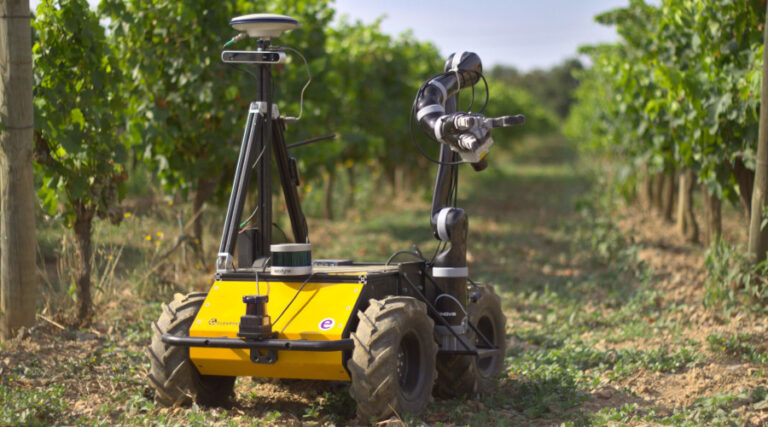
GRAPE project (Ground Robot for vineyArd monitoring and ProtEction) aims at creating the enabling technologies to allow agricultural service companies and equipment providers to develop vineyard robots that can increase the cost effectiveness of their products with respect to traditional practices. In particular, the project addresses the market of instruments for biological control by developing the tools required to execute (semi) autonomous vineyard monitoring and farming tasks with Unmanned Ground Vehicles (UGVs) and, therefore, reducing the environmental impact with respect to traditional chemical control.
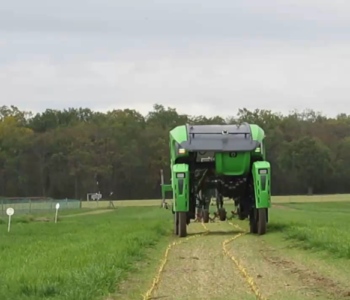 Ricerca
Ricerca
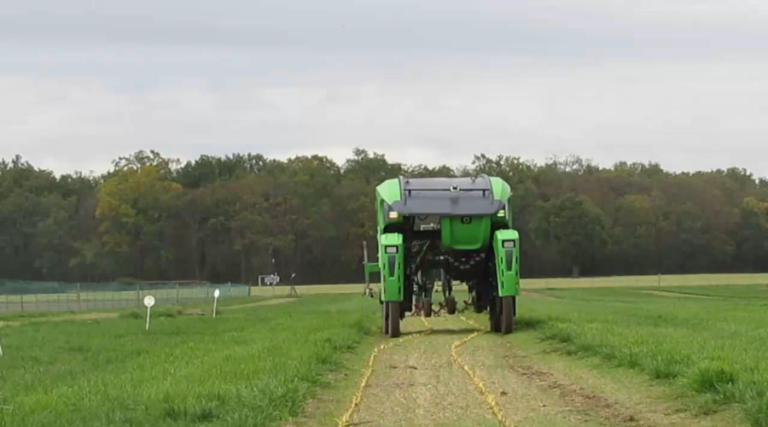
In ACRE (Agri-food Competition for Robot Evaluation), autonomous robots compete to demonstrate their ability to perform agricultural tasks (such as removing weeds or surveying crops down to individual-plant resolution) requiring autonomous capabilities (such as discriminating crops from weeds or moving through crops without damaging the plants). These abilities are crucial for the transition of Europe to Agriculture 4.0, where precision agriculture is supported by Artificial Intelligence and Robotics.
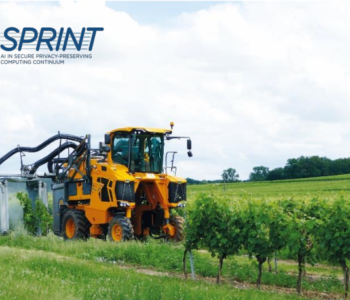 Ricerca
Ricerca
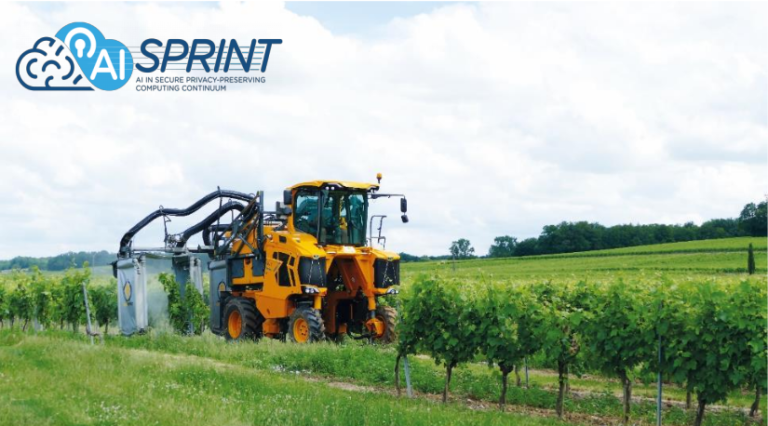
AI-SPRINT “Artificial intelligence in Secure Privacy-preserving computing continuum” is poised to develop a novel framework for developing and operating AI applications, together with their data, exploiting computing continuum environments. Key outputs include novel tools for AI applications development, secure execution, easy deployment, as well as runtime management and optimisation, which will help to overcome current technological challenges in exploiting resources in the edge-to-cloud continuum in terms of flexibility, scalability of analytics, interoperability, energy efficiency, security and privacy.
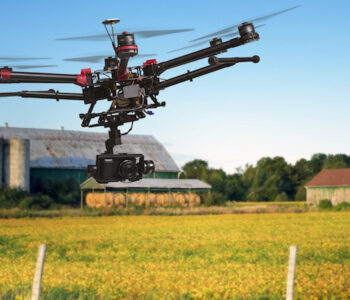 Ricerca
Ricerca
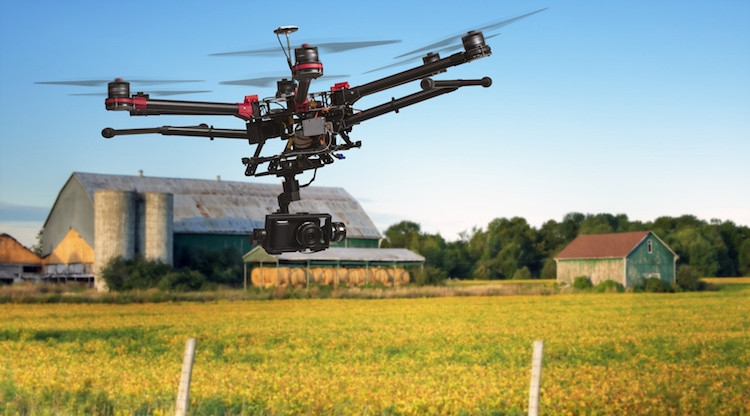
La Direttrice dell’Osservatorio Smart Agrifood, Chiara Corbo, ha svolto un intervento nel corso della manifestazione Dronitaly, tenutasi lo scorso 6 ottobre a Bologna, fiera nazionale dedicata ai velivoli senza pilota. In Italia è possibile utilizzare i droni per disperdere insetti o feromoni e per mappare i terreni e le colture, mentre non è possibile utilizzarli per applicare i fertilizzanti e agrofarmaci o per seminare. Secondo le stime dell’Osservatorio, circa il 3% delle aziende agricole utilizza i droni per la lotta biologica o per effettuare la mappatura dei terreni, ma sono positive le intenzioni future di investimento.
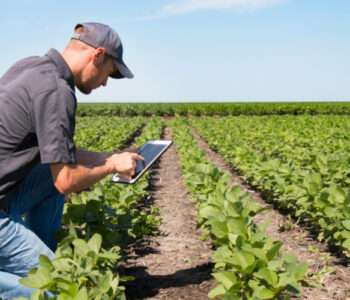 Ricerca
Ricerca
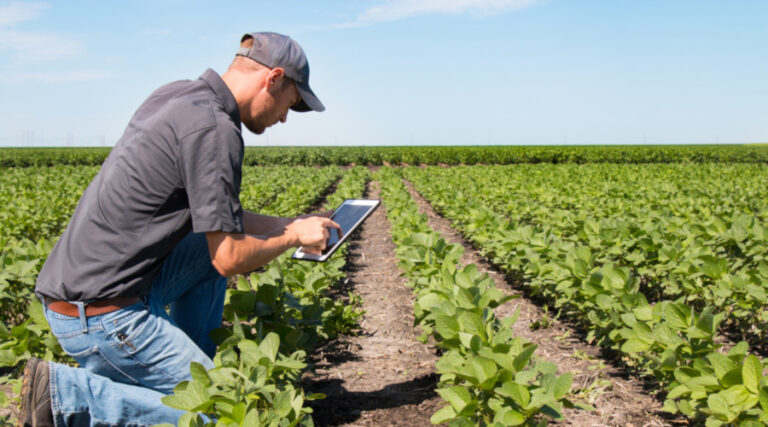
Il progetto Europeo Horizon2020 Ploutos prevede l’avvio di undici progetti pilota attivi su diversi comparti in diverse nazioni europee al fine di sviluppare un modello di innovazione sostenibile che possa contribuire a ribilanciare le relazioni all’interno delle filiere, rendendole più sostenibili lungo le tre direttrici sociale, ambientale ed economica. Il Politecnico è impegnato su diversi fronti: dallo sviluppo del modello, alla definizione di uno strumento di valutazione dei benefici della condivisione dei dati fino alla divulgazione attraverso la Ploutos Innovation Academy
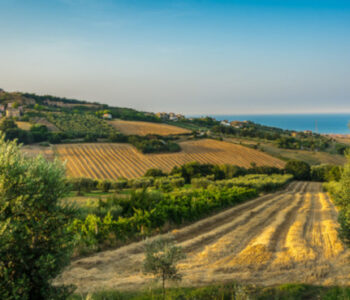 Ricerca
Ricerca
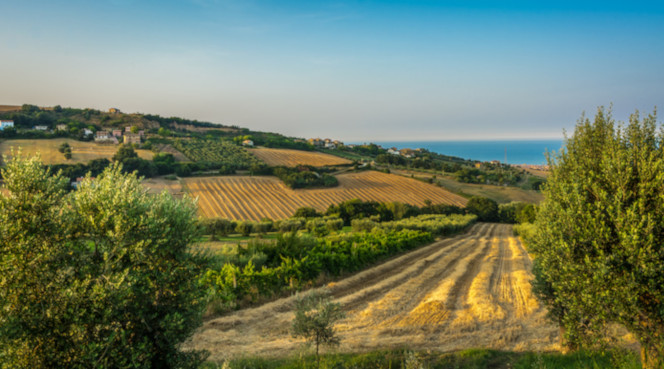
Il G20 Agricoltura, conclusosi a Firenze il 18 settembre, ha delineato tre grandi obiettivi: fame zero, trasferimento tecnologico e transizione ecologica. A tal proposito CIA ha sottolineato l’esigenza di fornire tecnologie innovative per gli agricoltori, al fine di favorire un approccio lavorativo più agibile e sostenibile. Se da un lato, secondo le stime di CIA, il 50% delle aziende non abbia ancora familiarità con le nuove tecnologie, dall’altra l’Osservatorio Smart Agrifood ha stimato il valore dell’agricoltura digitale a 540 milioni di euro, mostrando come la digitalizzazione si stia facendo strada.
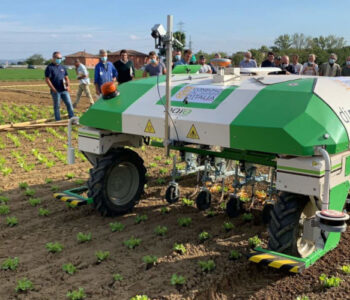 Ricerca
Ricerca
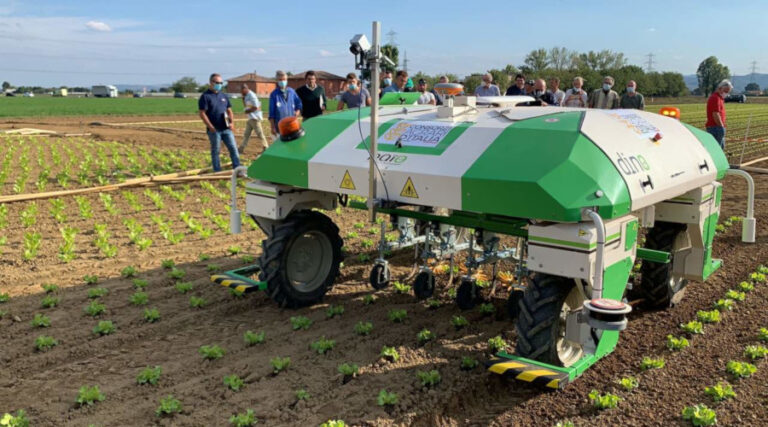
Consorzi Agrari d’Italia (CAI), in collaborazione con il produttore di fertilizzanti Agrico ha presentato un robot autonomo per diserbare meccanicamente le orticole ideato dalla startup francese Naio Technologies. Il robot “Dino” è stato progettato per le colture in pieno campo, ha fino ad 8 ore di autonomia, è in grado di lavorare fino a 5 ettari al giorno e, grazie ad una videocamera, può riconoscere il tipo di coltura e azionare di conseguenza diversi elementi sarchianti. Il robot rappresenta un valido strumento per ottimizzare gli input agricoli e per rafforzare la sostenibilità delle colture.
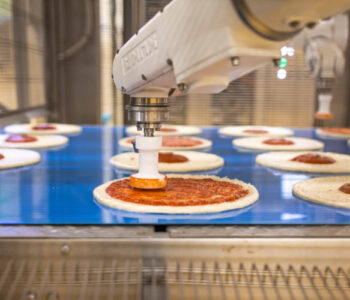 Ricerca
Ricerca
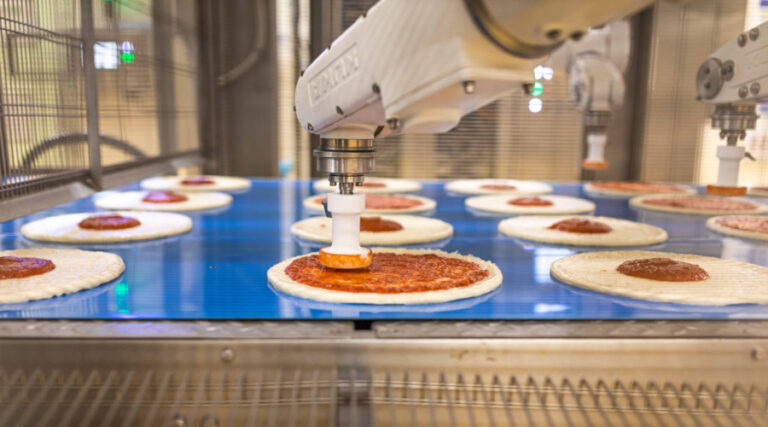
Nestlé ha avviato un progetto di collaborazione per l’irrigazione intelligente nelle colture di pomodori da cui si ottiene la polpa per la pizza Buitoni (marchio Nestlé). Le 4 sonde installate nel terreno misurano la quantità di acqua a diverse profondità e inviano i dati ad una centralina che li carica in cloud. In questo modo l’irrigazione viene attivata solo quando necessario, risparmiando il 40% dell’acqua utilizzata. Il monitoraggio costante consente inoltre di migliorare la salute delle piante e la qualità dei pomodori.
 Ricerca
Ricerca

Il Politecnico di Milano, e con esso l’Osservatorio Smart AgriFood, è coinvolto nel progetto europeo H2020 Ploutos, che ha come obiettivo il contribuire a ribilanciare la filiera agroalimentare, ponendo al centro l’agricoltore, e di renderla più sostenibile definendo un Modello di innovazione sostenibile che fa leva su un’innovativa combinazione di mutamento nelle attitudini, innovazione dei modelli business in chiave collaborativa e utilizzo di tecnologie innovative basate sui dati. Il modello di innovazione sostenibile e il metodo di quantificazione del valore generato dai dati sviluppati dal Politecnico saranno applicati a 11 progetti pilota per dimostrare i vantaggi pratici dell’interoperabilità, delle tecnologie data driven e dei modelli di business collaborativi.
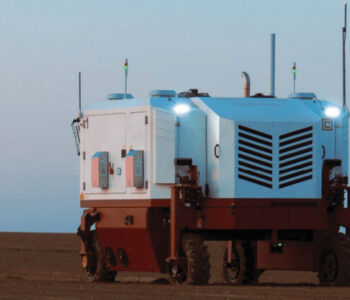 Ricerca
Ricerca
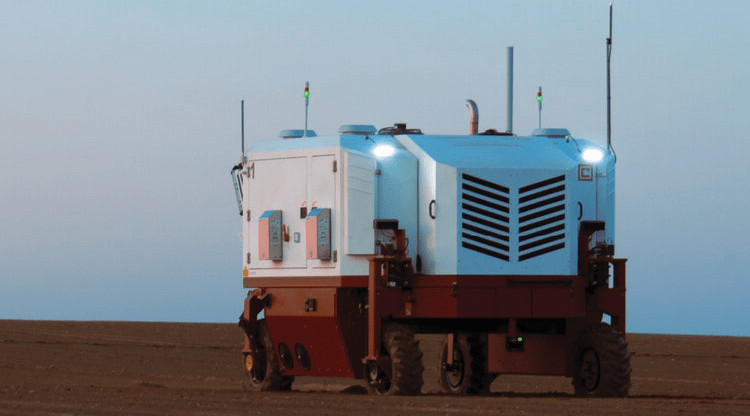
Negli Stati Uniti l’azienda Carbon Robotics ha sviluppato un metodo per l’eliminazione delle malerbe senza l’impiego di erbicidi grazie ad un laser ad alta potenza e dodici telecamere ad alta risoluzione. Allo stesso modo, nel Regno Unito, la Small Robot Company ha sviluppato un robot che utilizza l’elettricità per eliminare individualmente le erbacce. Le due startup hanno raccolto finanziamenti complessivi rispettivamente di $27 milioni e £11 milioni, facendosi strada come alternative valide e sostenibili all’uso di erbicidi.
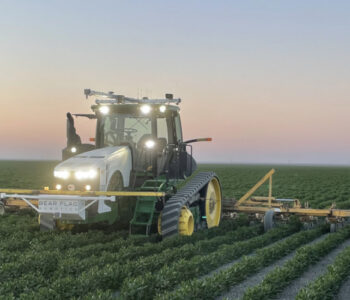 Ricerca
Ricerca
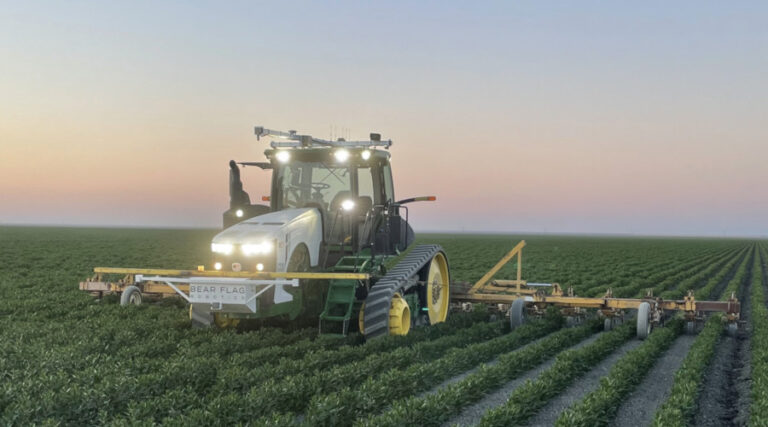
John Deere ha acquisito Bear Flag Robotics, una startup specializzata nell’ideazione e produzione di autonomous driving technology da applicare e attuare su trattori o sistemi di produzione agricola esistenti. L’operazione del valore di 250 milioni di dollari permette di accelerare la creazione e il rilascio di sistemi di automazione per le imprese agricole e aumenta la presenza del digitale, sia in termini di utilizzo di dati al servizio della produzione (applicazione dei principi del precision farming anche con mezzi a guida autonoma) sia la raccolta di dati da mettere al servizio delle successive fasi di gestione dei prodotti, ad esempio per l’industria di trasformazione e per la tracciabilità dei prodotti.
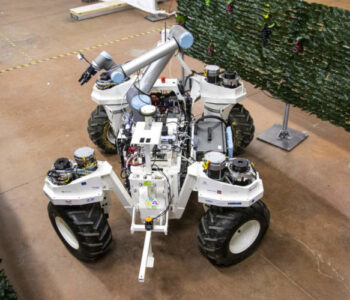 Ricerca
Ricerca
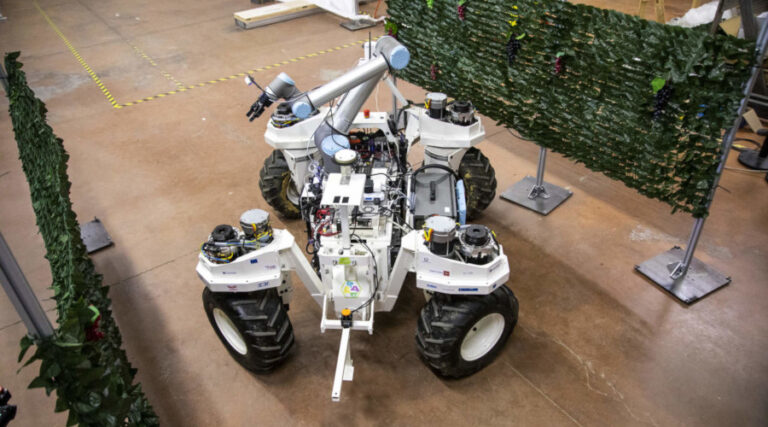
La robotica può apportare dei benefici sgravando l’onere del lavoro manuale da attività ripetitive, faticose o pericolose, tuttavia la diffusione in agricoltura è ancora piuttosto limitata a causa della maggiore variabilità delle condizioni produttive rispetto alla fabbrica e dei costi. Una migliore consapevolezza sui costi e uno sviluppo di formule di credito o di utilizzo alternative possono agevolarne al diffusione.
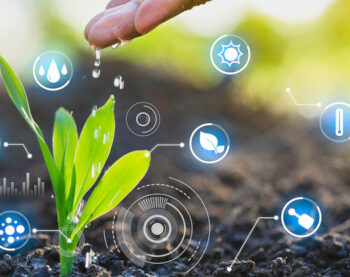 Ricerca
Ricerca
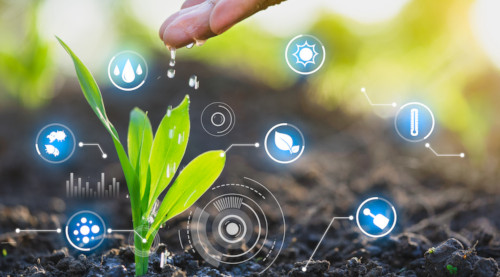
La raccolta e l’analisi dei dati in agricoltura, e nelle altre fasi della filiera agroalimentare, può generare benefici economici, sociali e ambientali; al contempo rischia di esacerbare ancor più il divario fra gli attori più forti e quelli più deboli all’interno della filiera. Per scongiurare questo scenario occorre porre in evidenza i benefici di una gestione collaborativa del dato, come nel progetto europeo Ploutos in cui l’Osservatorio è coinvolto, e definire chiari diritti di proprietà.
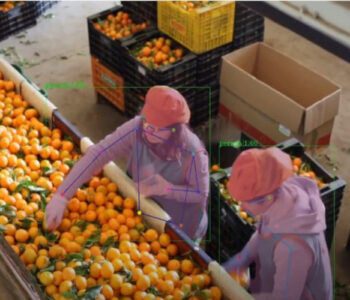 Ricerca
Ricerca
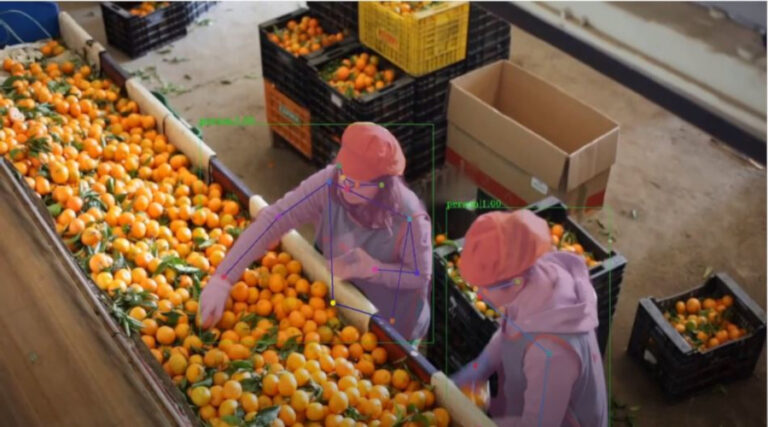
From assessing and sorting fresh fruit to assembling vegetable packages. The intelligent robots from Wageningen AgroFood Robotics learn – from people – to perform multiple tasks. According to Wageningen University & Research this makes the processing of fruit and vegetables even more (cost) efficient and increases the added value of fresh produce. The first demo application will be ready in the summer of 2021.
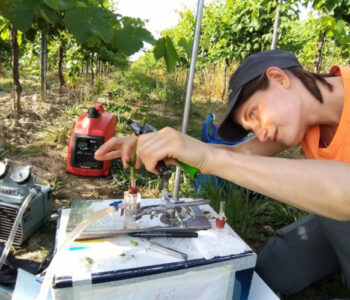 Ricerca
Ricerca
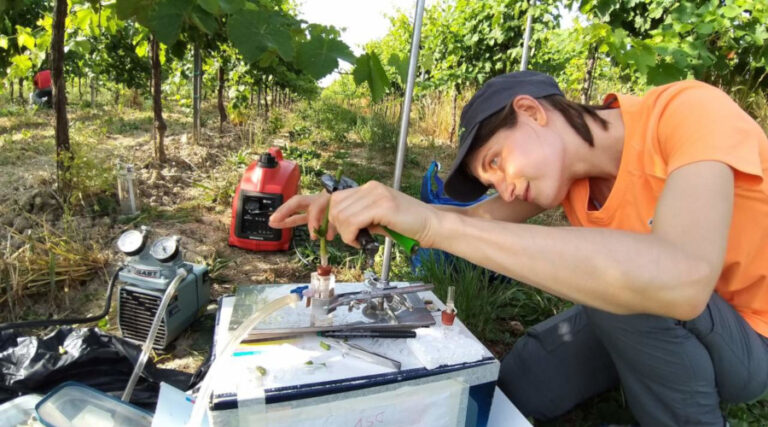
Sono stati presentati i primi risultati di Acquavitis, progetto co-finanziato dal Fondo europeo di sviluppo regionale e che coinvolge soggetti italiani e sloveni, che mira a sviluppare e sperimentare tecnologie e soluzioni innovative, che mira a sviluppare e sperimentare tecnologie e soluzioni innovative per la corretta gestione delle risorse idriche nei vigneti, fra cui un sistema di supporto alle decisioni che, sulla base di diverse caratteristiche climatiche, pedologiche e varietali, suggerisce il livello ottimale di acqua per ottenere precisi parametri di qualità.
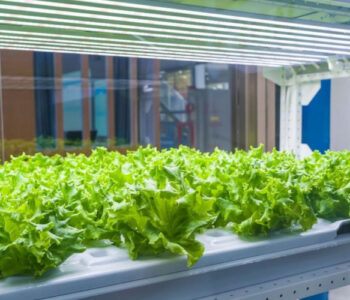 Ricerca
Ricerca
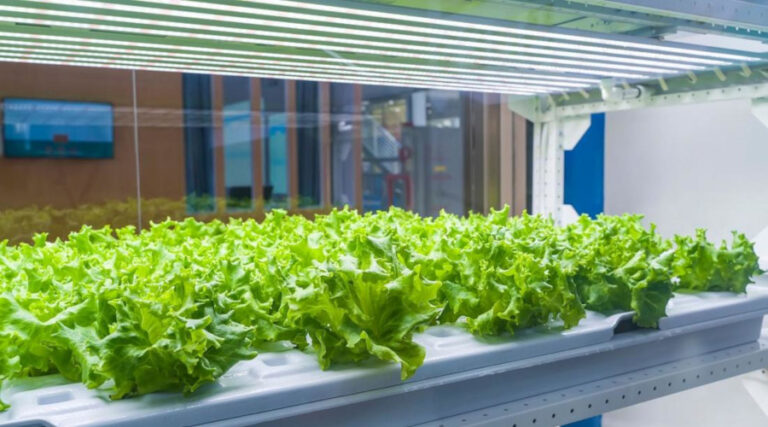
Un recente studio dell’Università di Birmingham pubblicato su Nature evidenzia come tramite l’applicazione di nanotecnologie e Intelligenza Artificiale gli agricoltori possano rispondere in modo rapido ed efficace ai problemi legati alla variabilità del terreno, riducendo gli sprechi e ottimizzando l’uso di fertilizzanti e nutrienti, contribuendo a sostenere l’obiettivo di zero emissioni di gas serra entro il 2050.
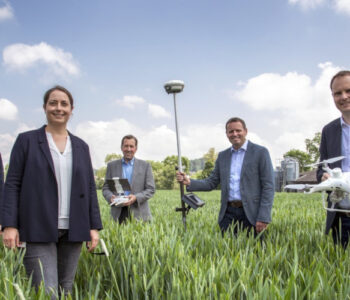 Ricerca
Ricerca
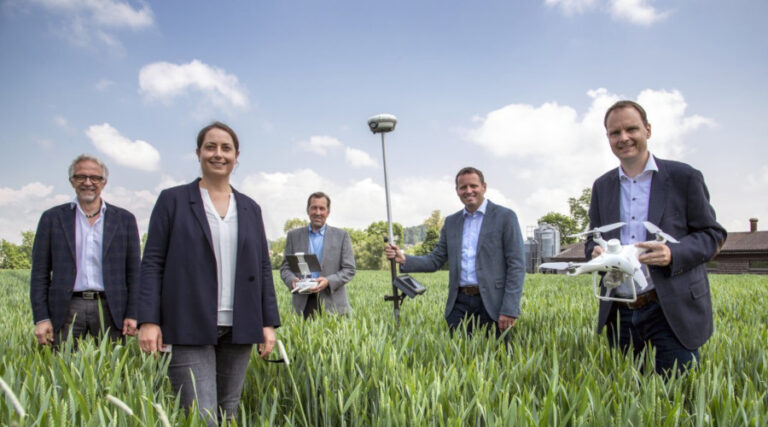
In Svizzera, Agroscope – centro di competenza della Confederazione per la ricerca agronomica – ha lanciato la stazione sperimentale “Tecnologie intelligenti”, per la sperimentazione di soluzioni digitali per l’agricoltura.
Tra i vari progetti, la stazione sta avviando un progetto per calibrare la concimazione delle piante e garantirne una crescita ottimale.
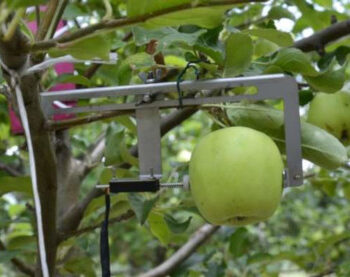 Ricerca
Ricerca
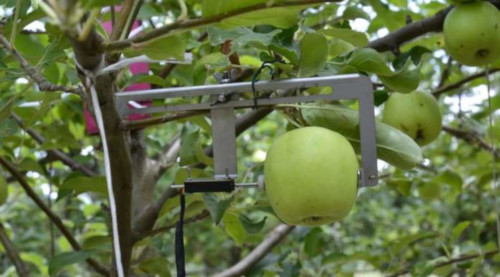
Sono molte le variabili che possono essere prese in considerazione per valutare il fabbisogno irriguo delle piante da frutto e molti gli strumenti per registrare dati rilevanti, come sensori per l’umidità del suolo e delle foglie e utensili per misurare l’accrescimento degli alberi e dei frutti. Quel che manca è una piena integrazione di questi dati e strumenti per alimentare Sistemi di Supporto alle Decisioni al fine di restituire suggerimenti quanto più efficaci e affidabili possibile.
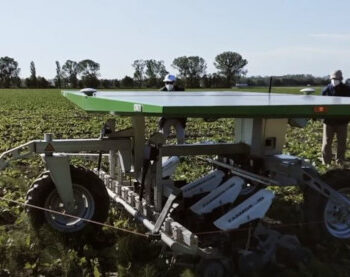 Ricerca
Ricerca
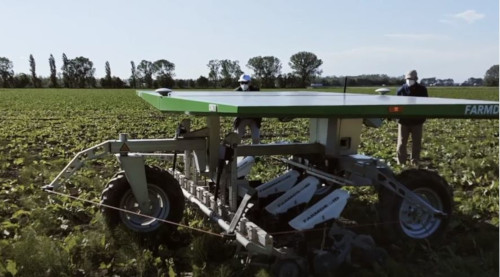
La cooperativa di produttori di barbabietole COPROB ha sperimentato nei propri campi il robot danese Farmdroid alimentato da un pannello solare e in grado di svolgere azioni di semina e sarchiatura. L’obiettivo è ottimizzare i costi liberando risorse che possano essere impiegate in altre mansioni e migliorare la competitività della produzione biologica.
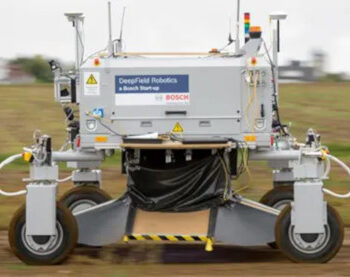 Ricerca
Ricerca
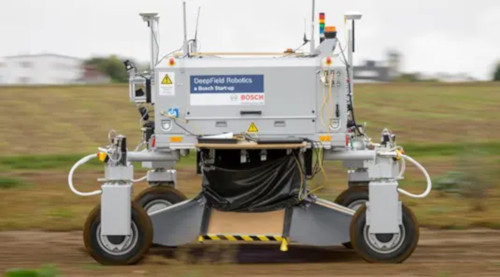
La combinazione della parola agricoltura con un suffisso indicativo di alta tecnologia quale il 4.0, può sembrare a prima lettura un vero e proprio ossimoro, ma solo se si ha una visione parziale ancorata ad un mondo agricolo tradizionale.
L’intelligenza artificiale in agricoltura, chiamata anche “Agriculture Intelligence”, sta progressivamente emergendo come parte della rivoluzione tecnologica del settore ed è un tema d riconosciuto come strategico a livello mondiale.
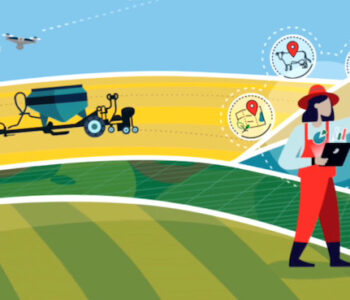 Ricerca
Ricerca
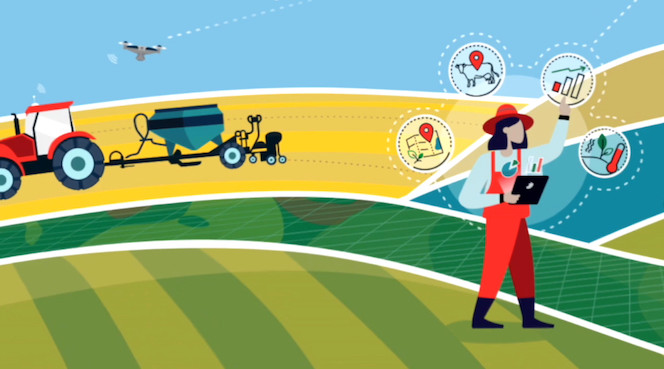
Sono diverse le opportunità legate all’impiego dell’Agricoltura 4.0 attraverso l’utilizzo di macchine agricole, fra cui una maggiore sostenibilità delle attività.
Rimangono alcuni fronti aperti, come i costi e la necessità di creare un mercato unico europeo dei dati per valorizzare questa risorsa e rendere protagonisti gli agricoltori.
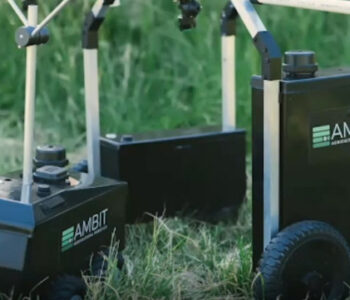 Ricerca
Ricerca
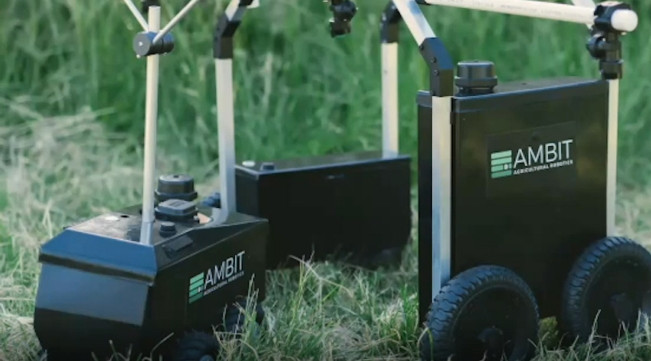
In questo articolo sono riportati alcuni dei robot presentati nel corso dell’open day 2021 di FIRA, una delle principali fiere di robotica in agricoltura al mondo.
 Ricerca
Ricerca

La startup Carbon Robotics ha sviluppato un robot che sfrutta l’intelligenza artificiale per identificare le malerbe e un laser per eliminarle. Questa soluzione si pone l’obiettivo di ridurre il costo del lavoro per effettuare queste attività evitando il ricorso agli agrofarmaci. Rimangono delle criticità sui costi e sull’illuminazione necessaria per il corretto funzionamento della macchina.
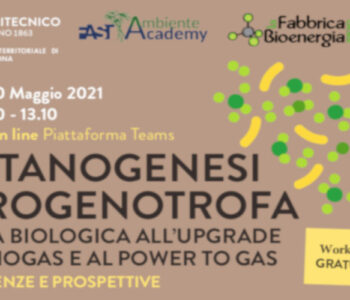 Ricerca
Ricerca
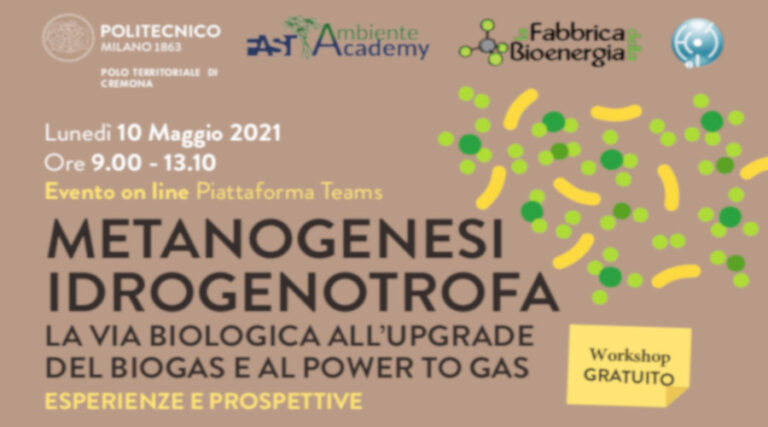
Il workshop si pone l’obiettivo di fare un primo punto sul processo biologico di metanogenesi idrogenotrofica, in un momento di grande e generale attenzione ed interesse per l’idrogeno verde…
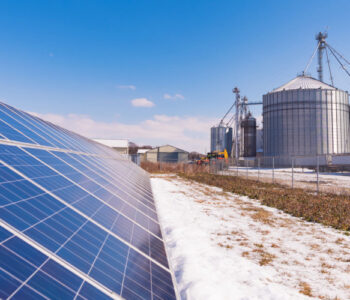 Ricerca
Ricerca
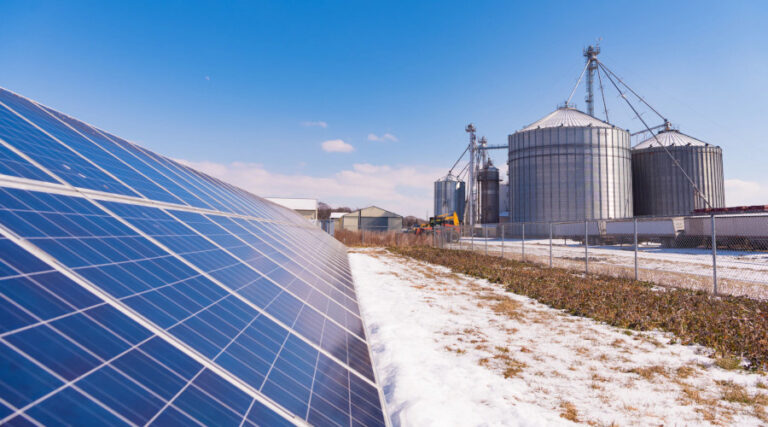
As more growers seek to take advantage of the environmental and financial benefits of regenerative farming, Syngenta Group is helping them combine computer science and data science to make this approach to agriculture more scalable.
![[:it]Incontri di promozione della mobilità internazionale[:en]International Mobility Meeting[:]](https://www.ccsage.polimi.it/wp-content/themes/shapely/assets/images/placeholder.jpg)
![[:it]Supporto e Orientamento agli studenti del Corso di Laurea Magistrale in Automation and Control Engineering[:en]Peer-to-peer Tutoring for Students of the Automation and Control Engineering MSc Programme [:]](https://www.ccsage.polimi.it/wp-content/themes/shapely/assets/images/placeholder.jpg)
[:it]Il calendario degli incontri di supporto e orientamento per gli studenti del primo anno del Corso di Laurea Magistrale in Automation and Control Engineering è disponibile qui.
[:en]The schedule for the peer-to-peer tutoring meetings for students of the Automation and Control Engineering MSc Programme is available here.[:]

[:it]Il Corso di Studio in Ingegneria dell’Automazione propone una serie di seminari “Automation and Control Industry Seminars”, tenuti da persone che lavorano in diversi settori industriali e indirizzati primariamente agli studenti iscritti al terzo anno della Laurea e ad entrambi gli anni della Laurea Magistrale.
Martedì 28 ottobre 2021 dalle 9 alle 10 si terrà il quarto seminario della serie, tenuto dal Dr. Son Tong di Siemens Digital Industries Software.
Il seminario sarà tenuto in lingua inglese.[:en]The Automation and Control Engineering Programme offers a series of “Automation and Control Industry Seminars”, held by people working in different industries and addressed primarily to students enrolled in the third year of the Bachelor Degree and both years of the Master Degree.
On Tuesday, October 28th 2021 at 9 there will be the fourth seminar of the series, held by Dr. Son Tong from Siemens Digital Industries Software.
The seminar will be held in English.[:]
![[:it]Incontro informativo sulla Laurea Magistrale in Automation and Control Engineering[:en]Informative Meeting Automation and Control Engineering MSc Programme[:]](https://www.ccsage.polimi.it/wp-content/themes/shapely/assets/images/placeholder.jpg)
[:it]Slide e video della presentazione dell’incontro informativo sulla Laurea Magistrale in Automation and Control Engineering.
[:en]Slides and video of the informative Meeting on the Automation and Control Engineering MSc Programme.[:]
![[:it]Welcome Meeting Laurea 2021[:]](https://www.ccsage.polimi.it/wp-content/themes/shapely/assets/images/placeholder.jpg)
[:it]Slide e video della presentazione del Welcome Meeting 2021/22 della Laurea in Ingegneria dell’Automazione.
[:]

[:it]Il Corso di Studio in Ingegneria dell’Automazione propone una serie di seminari “Automation and Control Industry Seminars”, tenuti da persone che lavorano in diversi settori industriali e indirizzati primariamente agli studenti iscritti al terzo anno della Laurea e ad entrambi gli anni della Laurea Magistrale.
Martedì 28 settembre 2021 dalle 14 alle 15 si terrà il terzo seminario della serie, tenuto dall’Ing. Flavio Marani che lavora presso Tiesse Robots S.p.a.
Il seminario sarà tenuto in lingua italiana.[:en]The Automation and Control Engineering Programme offers a series of “Automation and Control Industry Seminars”, held by people working in different industries and addressed primarily to students enrolled in the third year of the Bachelor Degree and both years of the Master Degree.
On Tuesday, September 28 2021 at 14 there will be the third seminar of the series, held by Eng. Flavio Marani from Tiesse Robots.
The seminar will be held in Italian.[:]
![[:it]Evento informativo per studenti di Ingegneria dell’Automazione (I LIV) e Automation and Control Engineering (Magistrale) relativo alla presentazione/modifica dei piani di studio e all’offerta didattica[:en]Informative event for Automation and Control Engineering students (both Bachelor and Master) regarding the presentation/modification of the study plans[:]](https://www.ccsage.polimi.it/wp-content/themes/shapely/assets/images/placeholder.jpg)
![[:it]PoliMI Ambassador in Green Technologies & Smart Infrastructures (Ingegneria dell’Automazione)[:en]PoliMI Ambassador in Green Technologies & Smart Infrastructures (Automation and Control Engineering)[:]](https://www.ccsage.polimi.it/wp-content/themes/shapely/assets/images/placeholder.jpg)
[:it]Il 2 settembre 2021 si è tenuta la presentazione dei programmi di alta formazione di Ambassador in Green Technologies e Ambassador in Smart Infrastructures per gli studenti del corso di Ingegneria dell’Automazione.
Qui puoi scaricare le slide.[:en]On September 2, 2021 the high-level training courses aimed at creating new professional figures, the Polimi Ambassador in Green Technologies and Smart Infrastructures, have been presented to students of Automation and Control Engineering.
Here you can download the slides.[:]

[:it]Il 7 luglio 2021 si è tenuta la presentazione dei programmi di alta formazione di Ambassador in Green Technologies e Ambassador in Smart Infrastructures.
Puoi riseguire la presentazione qui, o scaricare le slide.[:en]On July 7, 2021 the high-level training courses aimed at creating new professional figures, the Polimi Ambassador in Green Technologies and Smart Infrastructures, have been launched.
You can follow the presentation here, or download the slides.[:]


![[:it]Welcome Meeting Laurea Magistrale 2021[:en]Welcome Meeting Master of Science 2021[:]](https://www.ccsage.polimi.it/wp-content/themes/shapely/assets/images/placeholder.jpg)
[:it]
Slide della presentazione del Welcome Meeting 2020/21 della Laurea Magistrale in Ingegneria dell’Automazione.
[:en]
Slides of the Welcome Meeting 2020/21 of the Master of Science in Automation and Control Engineering.
[:]


![[:it]La Digitalizzazione nell’Industria Manifatturiera (26 ottobre 2020)[:]](https://www.ccsage.polimi.it/wp-content/themes/shapely/assets/images/placeholder.jpg)
[:it]
La Digitalizzazione nell’Industria Manifatturiera
Roberto Zuffada – Digital Enterprise Siemens Italia
L’evento si terrà Lunedì 26 ottobre alle ore 17:30 sulla piattaforma webex politecnicomilano.webex.com/meet/maria.prandini.
L’evento è rivolto agli studenti del terzo anno della laurea triennale e a quelli della laurea magistrale.
Maggiori informazioni sono contenute nella locandina dell’evento.
Le slide della presentazione sono scaricabili da questo link, ed è disponibile la registrazione video dell’evento.
[:]
![[:it]Welcome Meeting Laurea Magistrale 2020[:][:en]Welcome Meeting Master of Science 2020[:]](https://www.ccsage.polimi.it/wp-content/themes/shapely/assets/images/placeholder.jpg)
[:it]
Slide e video della presentazione del Welcome Meeting 2020/21 della Laurea Magistrale in Ingegneria dell’Automazione.
[:]
[:en]
Slides and video of the Welcome Meeting 2020/21 of the Master of Science in Automation and Control Engineering.
[:]
![[:it]Support and Orientation Peer-to-peer Tutoring[:][:en]Support and Orientation Peer-to-peer Tutoring[:]](https://www.ccsage.polimi.it/wp-content/themes/shapely/assets/images/placeholder.jpg)
[:it]
Information about the Support and Orientation Peer-to-peer Tutoring for Students of the Automation and Control Engineering MSc Programme can be found here.
[:]
[:en]
Information about the Support and Orientation Peer-to-peer Tutoring for Students of the Automation and Control Engineering MSc Programme can be found here.
[:]
![[:it]Welcome Meeting Laurea Magistrale 2020[:][:en]Welcome Meeting Master of Science 2020[:]](https://www.ccsage.polimi.it/wp-content/themes/shapely/assets/images/placeholder.jpg)
[:it]
Slide della presentazione del Welcome Meeting 2020/21 della Laurea Magistrale in Ingegneria dell’Automazione.
[:]
[:en]
Slides of the Welcome Meeting 2020/21 of the Master of Science in Automation and Control Engineering.
[:]

Slide della presentazione per gli Studenti del Secondo Anno del Corso di Laurea in Ingegneria dell’Automazione del 29 maggio 2020.
![[:it]Welcome Meeting Laurea Magistrale 2020[:][:en]Welcome Meeting Master of Science 2020[:]](https://www.ccsage.polimi.it/wp-content/themes/shapely/assets/images/placeholder.jpg)
[:it]
Slide della presentazione del Welcome Meeting 2020/21 della Laurea Magistrale in Ingegneria dell’Automazione.
[:]
[:en]
Slides of the Welcome Meeting 2020/21 of the Master of Science in Automation and Control Engineering.
[:]

Il 3 ottobre 2019, a partire dalle 17.00, si terrà presso il Dipartimento di Elettronica, Informazione e Bioingegneria del Politecnico di Milano la Cerimonia di Intitolazione della Sala Seminari DEIB al Prof. Nicola Schiavoni.
Il prof. Stefano Tubaro, Direttore del DEIB, aprirà la cerimonia. Seguirà il saluto del prof. Ferruccio Resta, Rettore del Politecnico di Milano.
La manifestazione proseguirà con interventi di testimonianza dell’opera e della figura dell’illustre scienziato e docente, professore emerito del Politecnico di Milano.
Nicola Schiavoni è stato un valente ricercatore nell’ambito della Teoria dei Sistemi e del Controllo e delle sue applicazioni e si è distinto per l’impegno, condotto con passione e competenza, al servizio del Politecnico e della comunità scientifica dell’Automatica.
La partecipazione è gratuita, ma è necessario iscriversi entro il 25/09/2019 al link: www.tinyurl.com/cerimonia-schiavoni.
![[:it]Premi di Laurea “Nicola Schiavoni” e “Claudio Maffezzoni”[:][:en]Degree Awards “Nicola Schiavoni” and “Claudio Maffezzoni”[:]](https://www.ccsage.polimi.it/wp-content/themes/shapely/assets/images/placeholder.jpg)
[:it]
Il CCS di Ingegneria dell’Automazione ha attivato da quest’anno i premi di Laurea in memoria di Claudio Maffezzoni e Nicola Schiavoni.
I premi sono destinati agli studenti che abbiano conseguito il titolo di Laurea Magistrale in Automation and Control Engineering nel periodo da 01/05/2018 a 30/04/2019.
La scadenza è prevista per il giorno 03/07/2019.
[:]
[:en]
Starting from this year two degree awards has been launched:
The recipients of the awards are the graduate students who got their Master of Science degree in Automation and Control Engineering (LM-25) at Politecnico di Milano, in the period 01/05/2018 – 30/04/2019.
The deadline for the application is 03/07/2019.
[:]
![[:it]Presentazione della Laurea Magistrale[:][:en]Introduction to the Master of Science[:]](https://www.ccsage.polimi.it/wp-content/themes/shapely/assets/images/placeholder.jpg)
[:it]
Slide della presentazione della Laurea Magistrale in Ingegneria dell’Automazione.
[:]
[:en]
Slides of the introduction to the Master of Science in Automation and Control Engineering (in Italian).
[:]





